
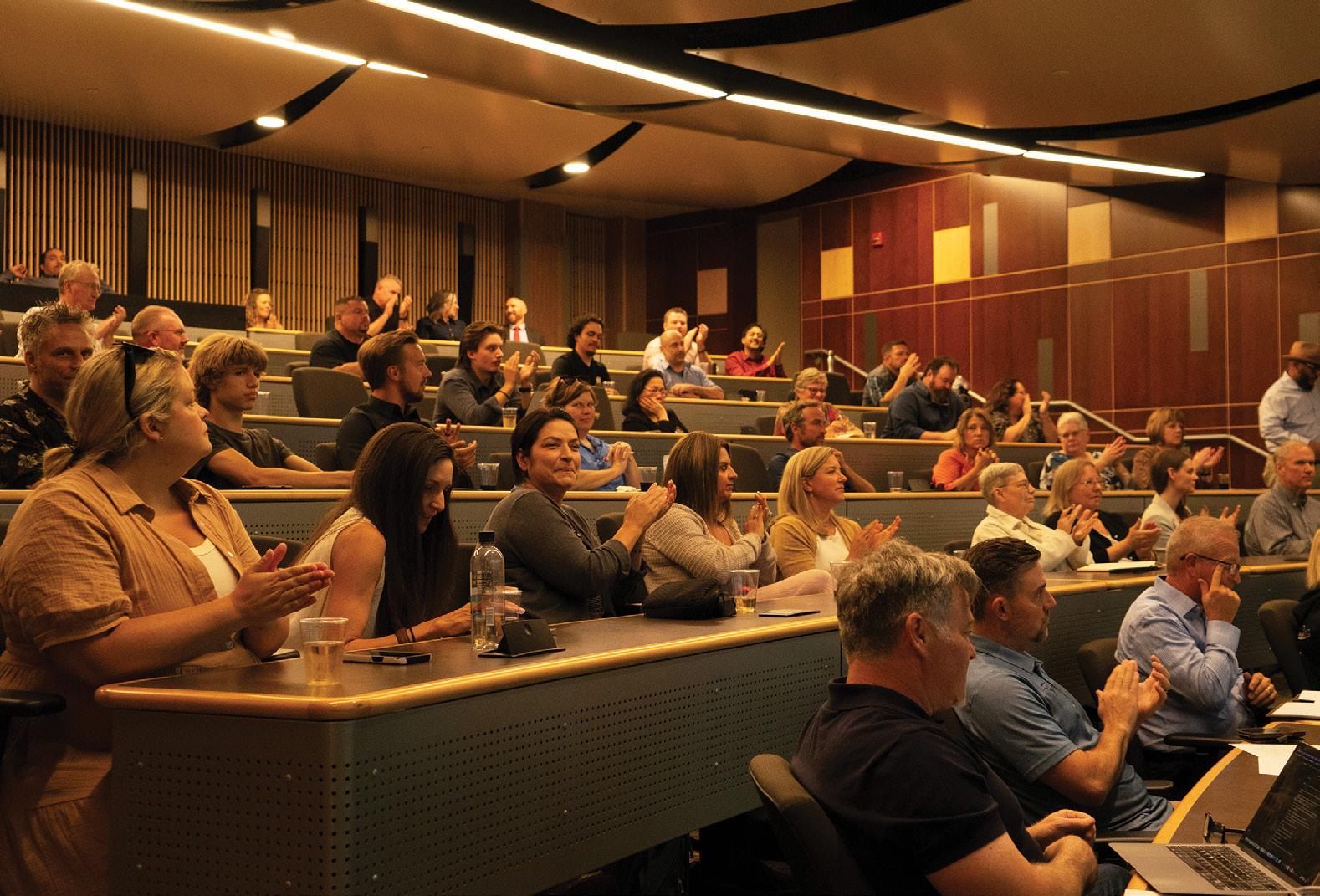
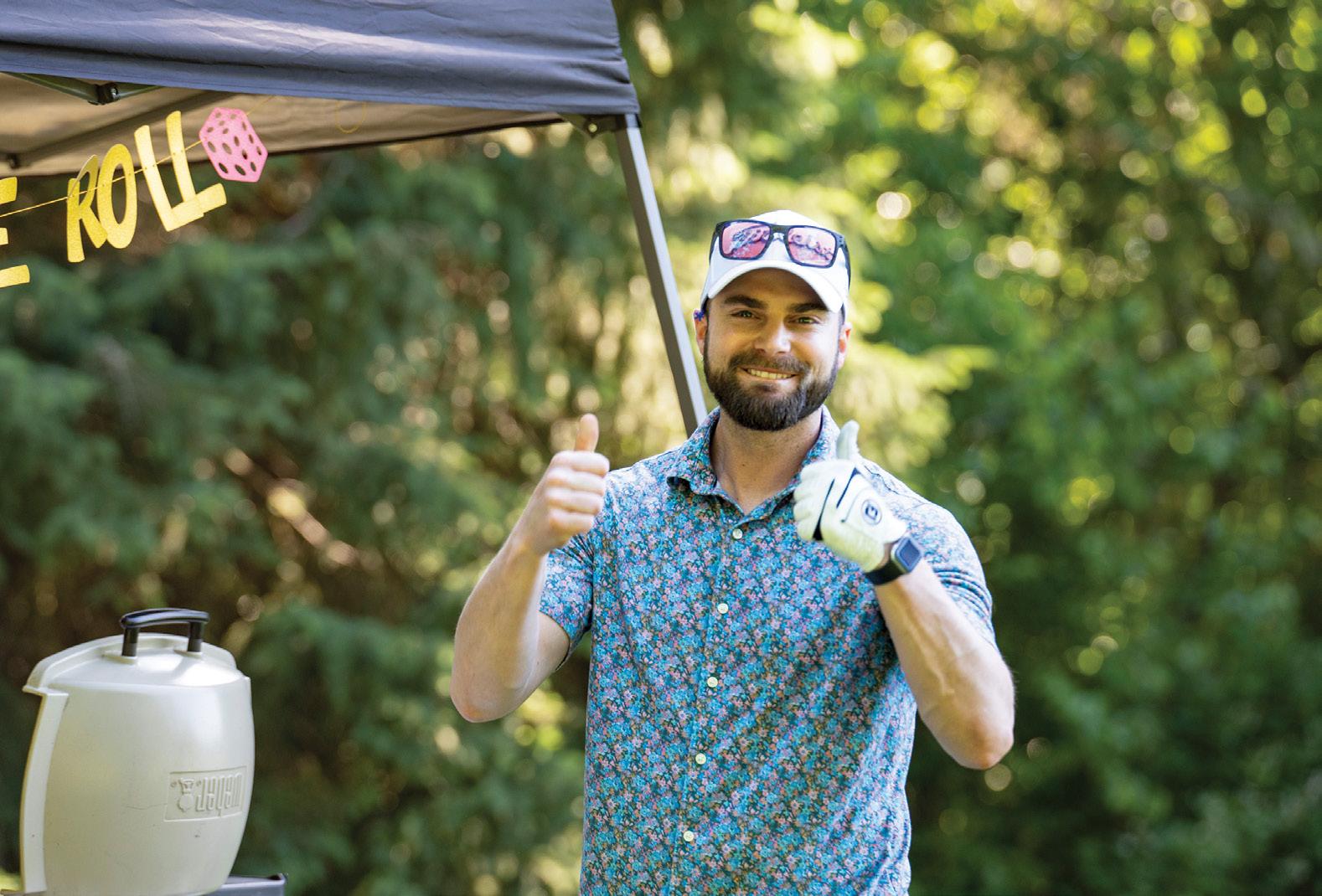

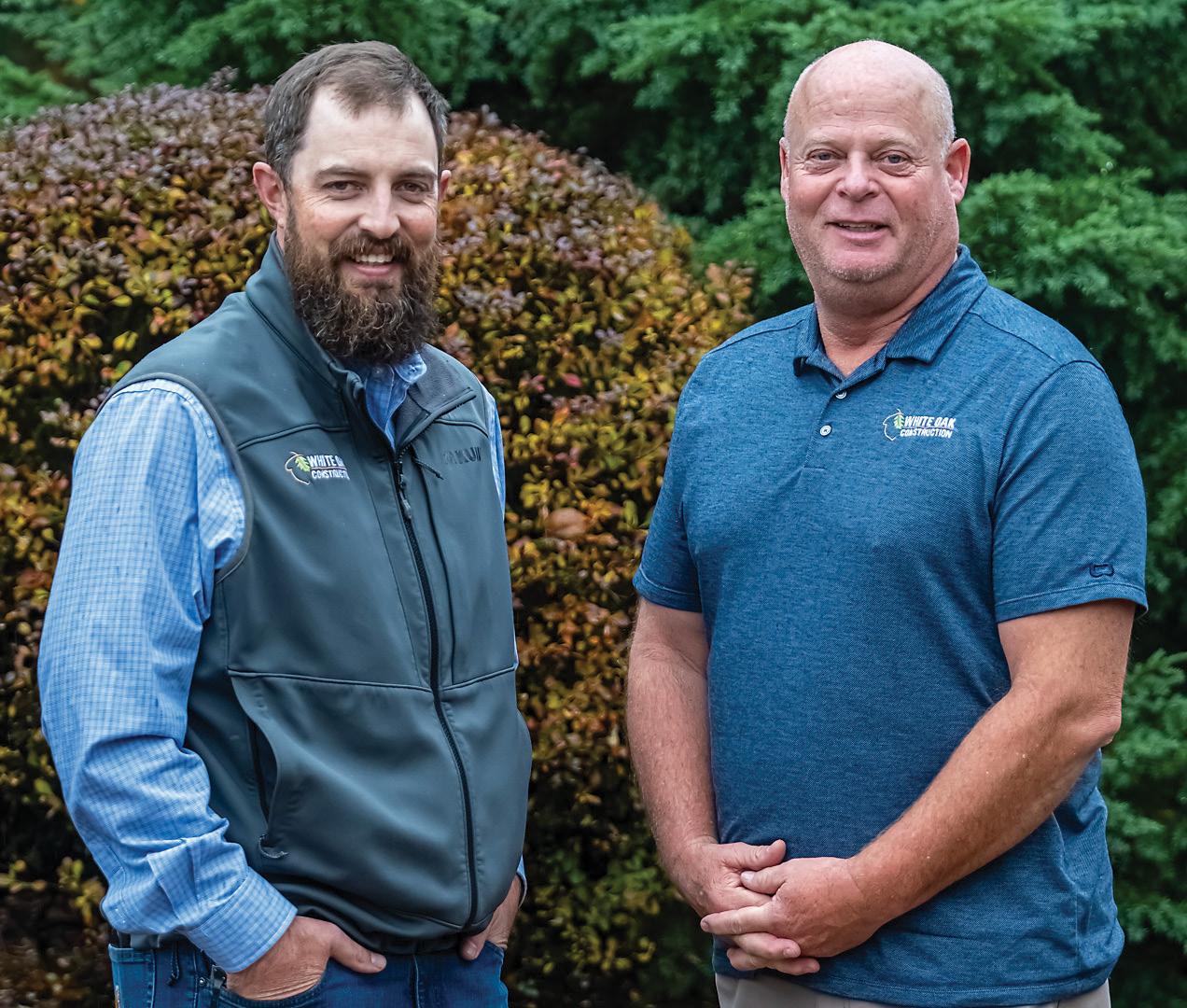








Strategic Economic Development Corporation
626 High Street NE, Suite 200
Salem, OR 97301
503-588-6225
www.sedcor.com
Erik Andersson
President
503-837-1800 • eandersson@sedcor.com
Jenni Kistler
Director of Operations
503-588-6225 • jkistler@sedcor.com
Naureen Khan Communications and Marketing Manager
503-837-1802 • naureen@sedcor.com
Abisha Stone
Economic Development Manager –Yamhill County 503-837-2131 • astone@sedcor.com
Alex Paraskevas
Economic Development Manager –Polk County
Rural Innovation Catalyst 503-837-1803 • alexp@sedcor.com
Kip Morris
Economic Development Manager -–Marion County 503-837-1804 • kip@sedcor.com

401 Oak St., Silverton, OR 97381
503-845-9499 • www.mtangelpub.com
Design: Steve Beckner All material © 2024 its respective owners.
Looking over the activities and projects of the past twelve months, 2024 feels like it was the year of the underdog. While national and state headlines warned of recession, and many businesses were forced to postpone or even cancel expansion plans due to uncertainty in the market, the MidWillamette Valley had our fair share of business expansions and investment. While I am certainly aware of local businesses that are facing major challenges as we move into 2025, which provides a good reminder as to SEDCOR’s role in helping retain our local traded sector employers, we are fortunate to be able to celebrate 2024 as a year of businesses bucking trends and investing and growing here.

While the Mid-Willamette Valley is home to Oregon’s capital city and as such is a center for government, our economy is surprisingly diverse. One major driver of that economic diversity comes from agriculture and the many industries that have developed as part of its supply chain including food and beverage processing, machinery and equipment manufacturing, hospitality and logistics. But our geographic location, education resources and the quality of life afforded by our natural beauty have attracted high tech, dental equipment, aviation, software and a variety of other traded sector industries to the region. When I first started at SEDCOR, a longtime colleague made the comment that he always associated the Mid-Valley with state government as he reacted in surprise as I covered the various projects SEDCOR was managing in a variety of industries. From that moment, I vowed to promote the economic diversity of the region.
Over the past year, we have celebrated expansion projects in advanced manufacturing, warehouse and distribution, aviation, wood products, food and beverage and software around the Mid-Valley Region. We’ve attracted investment from technology companies around the region while also highlighting the innovations in our traditional industries of wood products and agriculture. We tried to leverage all of the attention paid to the new Portland International Airport terminal by highlighting the contributions of Freres Engineered Wood and Zena Forest Products to Oregon’s largest public works project to date.
Our support of what we grow in the Willamette Valley (and what we make with what we grow) has also opened some doors for SEDCOR. I was pleased to participate in the Oregon Business Council’s work to support the state’s food and beverage sector with representatives of some of Oregon’s most familiar food and beverage brands. That work has resulted in a legislative concept that addresses opportunities to improve the competitiveness of Oregon’s food and beverage producers, while creating a nurturing environment for growing the next generation of companies. I was pleased to see that SEDCOR’s input, based on what we learn from our routine conversations with Mid-Valley businesses and entrepreneurs, made it into the proposal: Oregon producers and processors need resources to develop domestic markets; manufacturers need to be more productive through automation and upskilling of incumbent workers to take on new processes and equipment; and small food and beverage manufacturers need co-packing and co-manufacturing space to increase production capacity to take on larger accounts. I look forward to seeing where this momentum leads in 2025.
Finally, it would not be a year-end wrap-up without sending my gratitude to the community and business partners that support SEDCOR’s work. And a big thank you to a passionate, dedicated staff of six that allow SEDCOR to punch well above its weight as a regional economic development organization. We’ve got the best team out there!
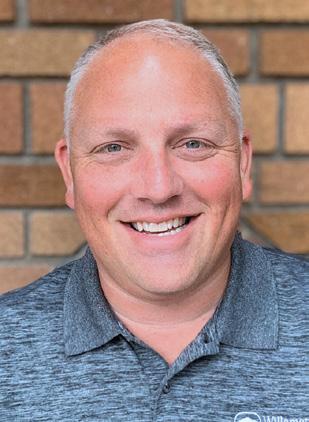
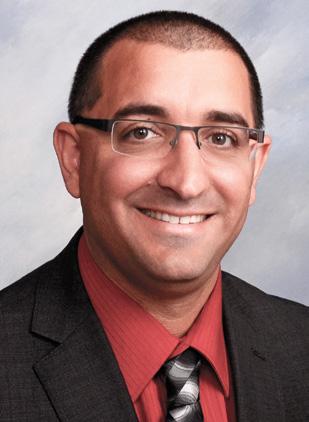
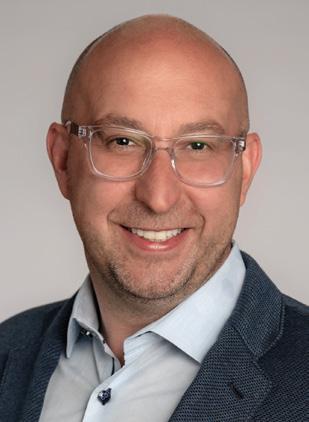
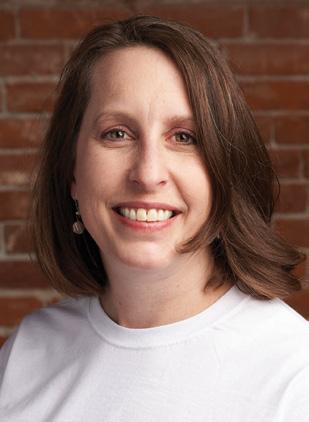
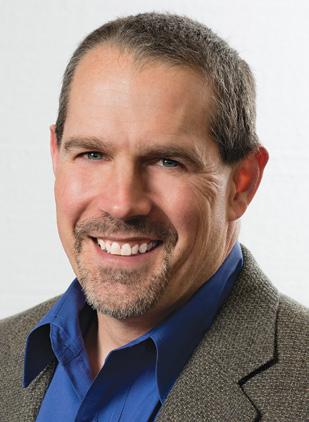
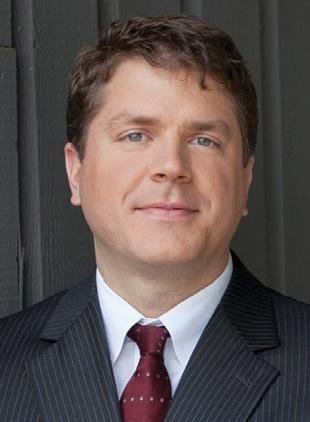
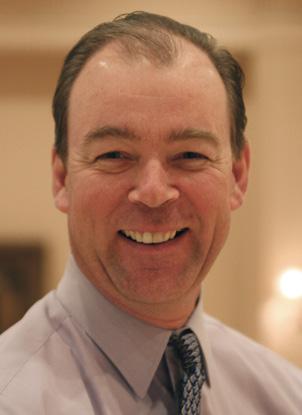
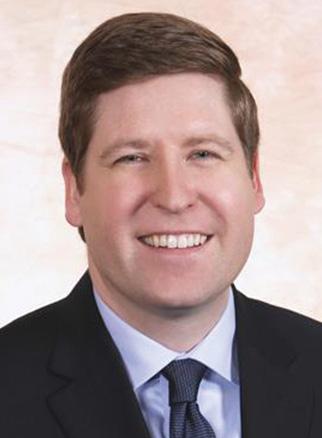
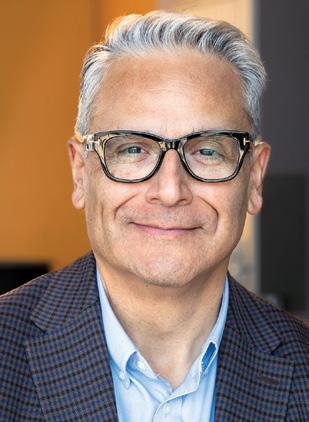
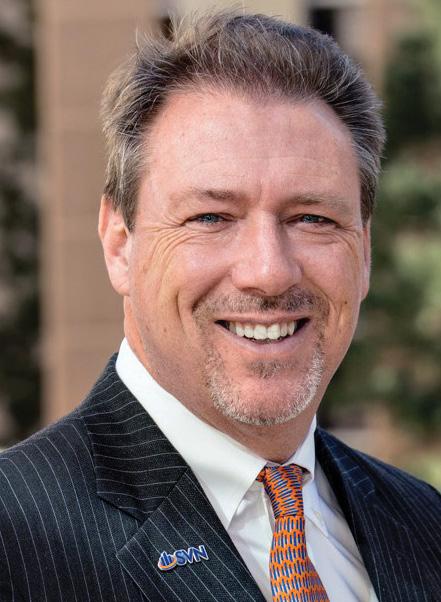
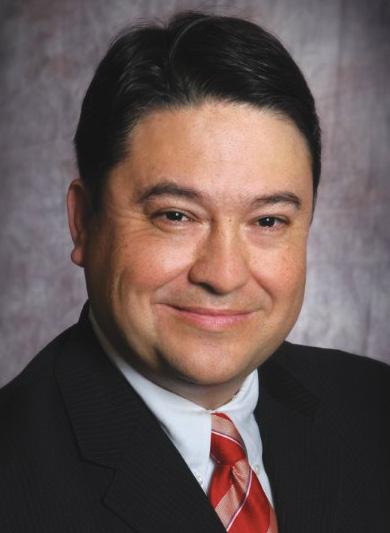
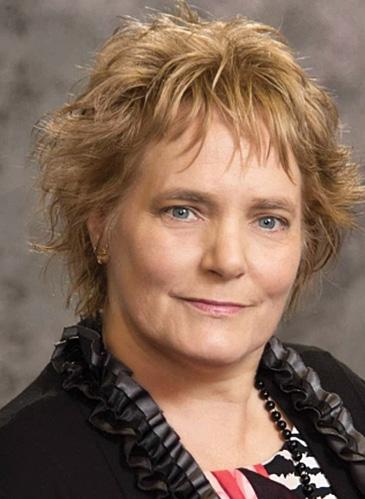
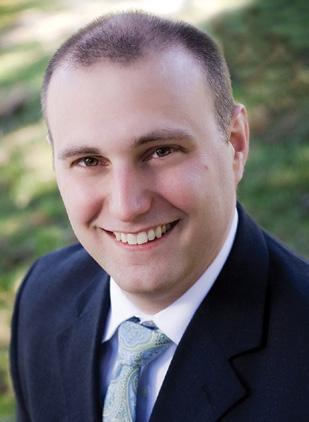
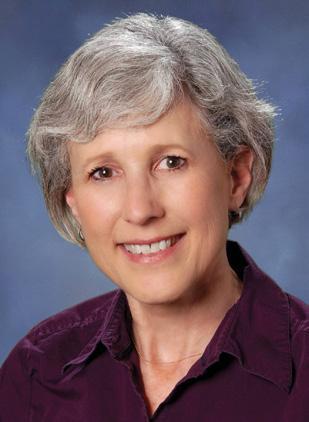
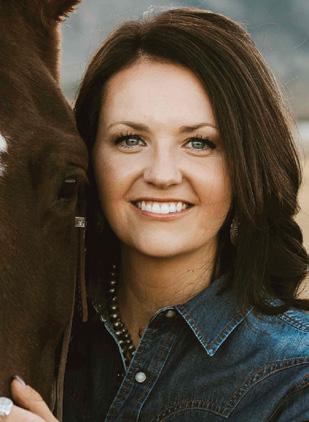
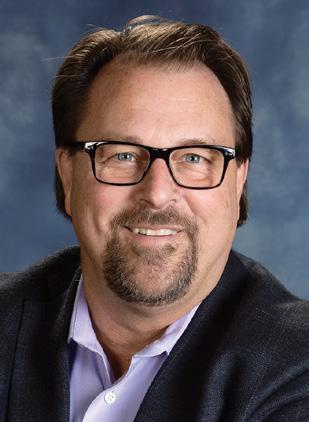
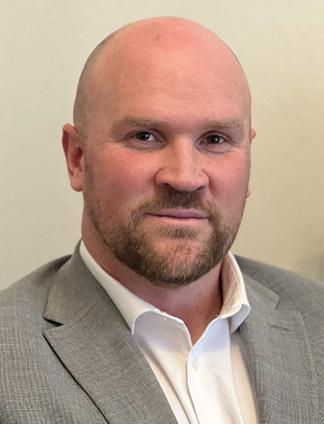
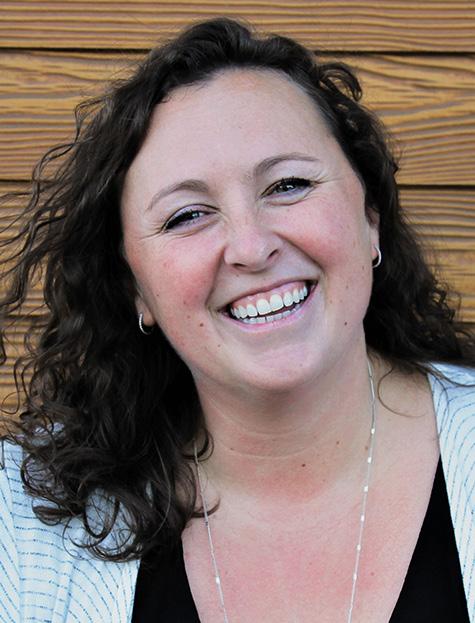
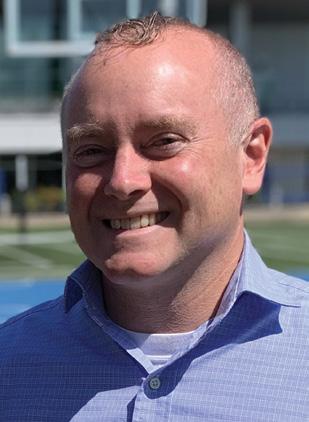
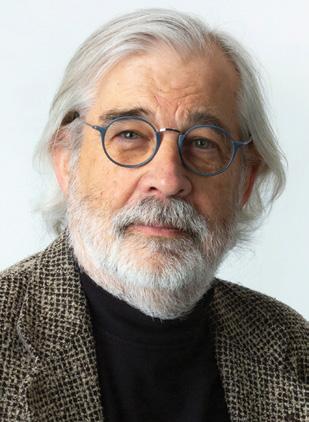
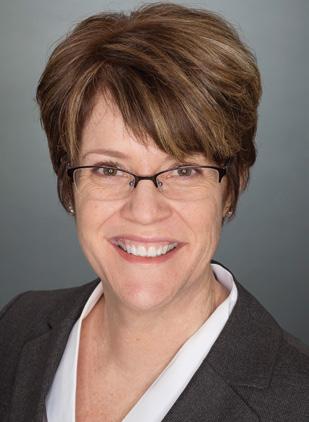
Dr. Jessica Howard President/CEO Chemeketa Community College
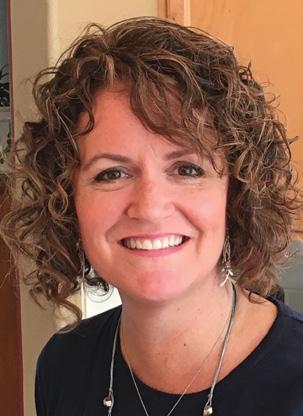
Kim Parker-Llerenas Executive Director Willamette Workforce Partnership

Hoy Mayor City of Salem

James Parr Chief Financial Officer Salem Health Hospitals and Clinics
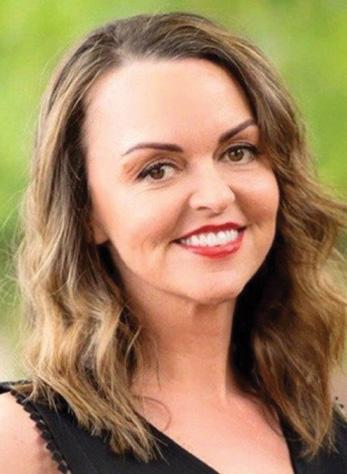
Director, Government & Regulatory Affairs Comcast
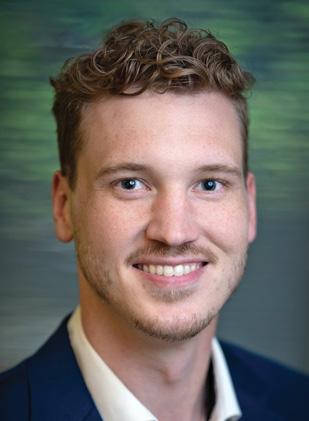
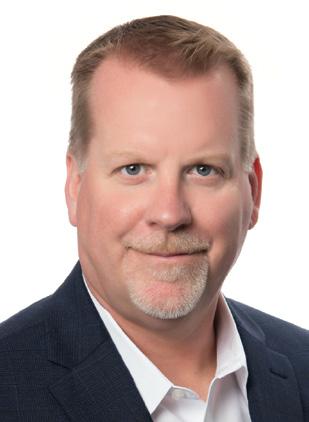
Curt Hyland VP of Operations Oregon Fruit Products
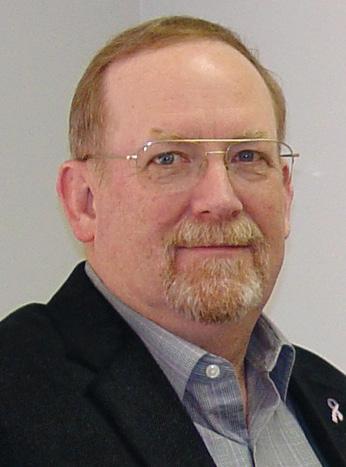
Craig Pope Commissioner Polk County
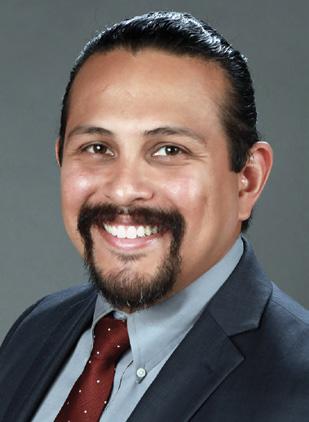
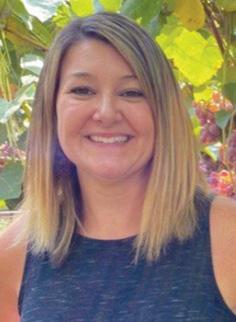
Program Coordinator Oregon Aglink
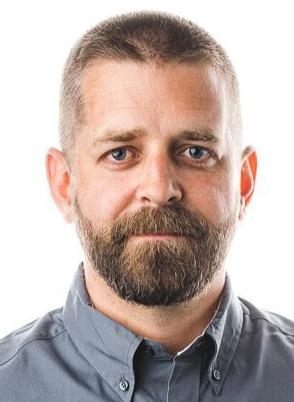
President/Owner Kaufman Companies
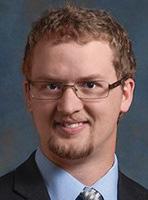
Ryan Rasmussen Vice President of Administration Modern Building Systems
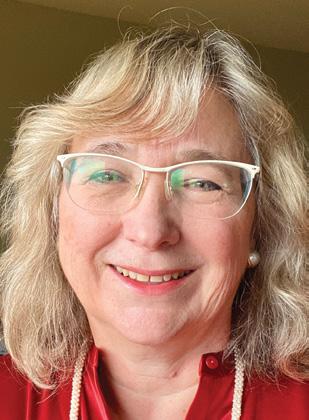
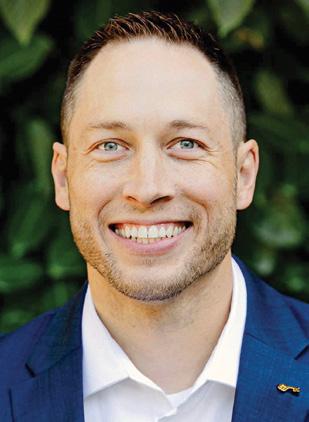
AVP/Business Banking Relationship Manager Key Bank

Raum VP. Commercial Banking Officer Umpqua Bank
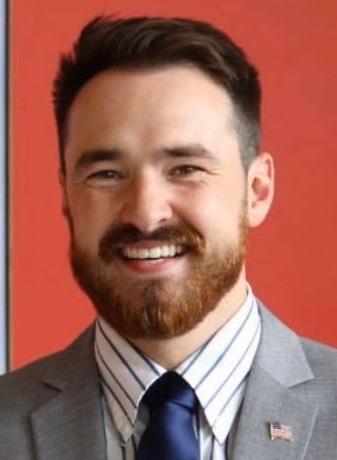
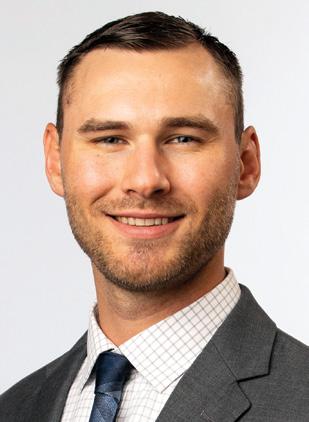
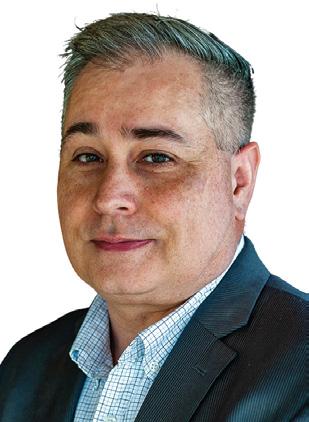
Board President Latino Business Alliance
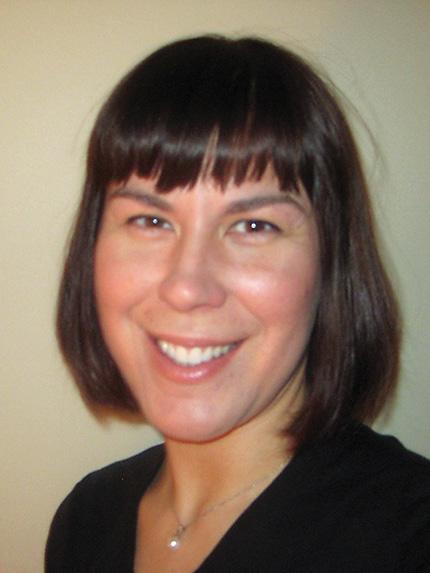
The SEDCOR staff, our Executive Council and the Board of Directors worked with Kinesis, a creative and strategy agency, to develop our five-year strategic plan. In the coming years, SEDCOR will focus on six specific areas. These areas all build on each other and provide us with a roadmap for our values. Everything we accomplish across these areas is grounded in relationships. SEDCOR has a unique role connecting businesses and community leaders in our region. Here are a few ways that we made progress on our strategic plan in 2024:
We aim to help traded-sector businesses stay and grow in the Willamette Valley, leverage available economic incentives, and form new partnerships. Future annual property tax revenue is estimated at $3.26 million. These projects not only bring jobs and investment to the region but also supply chain opportunities for other local manufacturers.
• GK Machine has invested $25 million in a new, cuttingedge facility located just outside of Donald. This new facility is designed to enhance the company’s manufacturing capabilities, allowing for increased production and improved efficiency. The expansion will support GK Machine’s continued growth, particularly in the agricultural equipment sector, by enabling them to better serve their customers with advanced machinery and technology.
• Pacific Lumber & Truss has constructed a new, stateof-the-art facility in Donald. This expansion supports the company’s growth and enhances its capacity to provide high-quality lumber and truss products to meet the increasing demand in the region. The new facility is expected to streamline operations, improve efficiency, and create additional job opportunities within the local community.

In 2024, SEDCOR played a key role in driving economic growth through business expansion and recruitment efforts, resulting in:
• Over $178 million in new investments
• 229 new jobs created
• An estimated $3.26 million in future annual property tax revenue
• Open Dental Software has expanded its campus with the addition of a new building, which includes a standout feature—an entire floor dedicated to daycare for its workforce. This thoughtful expansion reflects the company’s commitment to supporting its employees by providing a convenient and flexible childcare solution, helping to enhance work-life balance and retention. By offering this valuable resource on-site, Open Dental Software is not only fostering a familyfriendly environment but also reinforcing its dedication to employee well-being and long-term success.
• Pacific NW Marble + Granite has a new 60,000 sq/ft building in Hubbard which will create 15 new jobs.
• Metal Innovations, a key player in the aviation and aerospace industry, is expanding from Aurora to the Salem-Willamette Valley Airport. This move enhances the company’s operational capacity and allows it to better serve the aviation sector. The new facility offers an expanded space for manufacturing and development and includes an FAA Certified Maintenance shop to support commercial air service. Additionally, Metal Innovations has entered into an agreement with Avelo, Salem’s new commuter service provider, to serve as the required FAAcertified fixed base operator for repairs and services.
• Gensco, a wholesale distributor and manufacturer of HVAC equipment and supplies, announced the opening of a new 479,000-square-foot manufacturing and warehouse facility. This facility will serve the entire Pacific Northwest region and is expected to create 100 jobs initially, growing to 200, with 40% of those positions in union metal fabrication.
• SEDCOR is supporting Agility Robotics’ expansion into the Mid-Willamette Valley, specifically through the development of their RoboFab facility in Salem. The 70,000-square-foot manufacturing space, located within PacTrust’s Mill Creek complex, will have the capacity to produce over 10,000 robots annually once operational.
•
• Northwest Hazelnut is acquiring the Hazelnut Growers of Oregon operation from Wilco, reinstating many of the employees who were previously laid off. This acquisition ensures that the facility will continue to process this year’s crop of hazelnuts, providing critical support to local farmers and preserving jobs within the community.
• Don Pancho is expanding into 300,000 square feet of newly remodeled space at the former NORPAC facility in Salem. This significant growth marks a major milestone for the company, positioning it to increase its production capacity and further strengthen its presence in the region.
• Valley Fab is undergoing a significant expansion of its operations in Brooks, positioning itself for increased production and growth.
SEDCOR has been assisting Agility Robotics with the setup process and working closely with PacTrust, the landlord, to help the company establish its operations.
• Don Froylan Creamery continues to expand its operations, solidifying its position as a leader in the dairy industry. As the creamery grows, it has garnered widespread recognition for the exceptional quality of its cheeses, earning numerous prestigious awards. This success reflects Don Froylan’s commitment to craftsmanship and innovation in cheese-making, combining traditional techniques with modern practices to produce unique, award-winning products.
year. SEDCOR is seeking additional funding to extend the program through June 2025, with new cohorts planned for Independence, Newberg, and Salem.

We are committed to supporting the entrepreneurial community in the Mid-Willamette Valley. Our goal is to drive the adoption of new technologies in traditional industries, highlight the stories of businesses innovating to adapt to changing conditions, and celebrate the progress of equity and inclusion within our vibrant entrepreneurial ecosystem.
• The Latino Microenterprise Development Program, a partnership involving the Latino Business Alliance, Advanced Economic Solutions, Mid-Willamette Valley Council of Governments, Chemeketa Small Business Development Center, and Unidos of Yamhill County, successfully completed two cohorts in Salem and McMinnville with 84 graduates. The program, funded by Business Oregon’s Economic Equity Investment Program, aims to support Latino entrepreneurs. A kickoff event for a new cohort occurred on September 13, with a second cohort scheduled for McMinnville in the new
• SEDCOR has secured funding from Business Oregon to expand the Launch Mid-Valley initiative into a Regional Innovation Hub, with the goal of fostering an entrepreneurial ecosystem in the Mid-Willamette Valley. The program partners with Chemeketa Community College, McMinnville Economic Development Partnership, Chahalem Valley Business Accelerator, and George Fox University. Mike White has been contracted as the Venture Catalyst, and Malee Ojua will serve as the Innovation Navigator. The Hub will support local entrepreneurs through networking events, coffee clubs, pub talks, and ongoing business counseling. A recent highlight was the successful Pitch Willamette event, which featured seven entrepreneurs pitching to local investors. The initiative will continue with further events like Pitch Willamette, coffee clubs, workshops and other networking activities.
• SEDCOR hosted two important events to connect local food and beverage entrepreneurs with industry professionals. In collaboration with the Oregon Entrepreneurs Network, the Oregon Angel Food Marketplace on September 27 provided entrepreneurs with the opportunity to showcase their products and pitch directly to retailers. On November 9, SEDCOR held the second annual Locally Grown Supply Chain event, where food processors such as Kerr Concentrates/Ingredion, Oregon Fruit Processors, and Bob’s Red Mill engaged with local farmers to explore potential contracting opportunities. Both events were aimed at strengthening the region’s agricultural and food processing networks.
• SEDCOR continued to advance our Regional Innovation Cluster, in partnership with AgLaunch and supported by funding from the US Small Business Administration. Notably, SEDCOR hosted an AgTech roundtable for SBA Administrator Isabel Guzman, where agriculture businesses discussed challenges and opportunities. Additionally, four Willamette Valley farms are hosting trials for seven AgTech startups.
Our goal is to cultivate a strong regional workforce by attracting and retaining talent with the in-demand skills businesses and communities need to thrive. For over 20 years, SEDCOR has been a vital connector between industries, employers, and educators, ensuring workforce development aligns with evolving market demands. Now more than ever, we remain committed to bridging these connections and equipping our region for the future.
• SEDCOR partnered with the Willamette Workforce Partnership and the City of Woodburn to host two Warehouse & Distribution Business Roundtables in
Continued on page 9
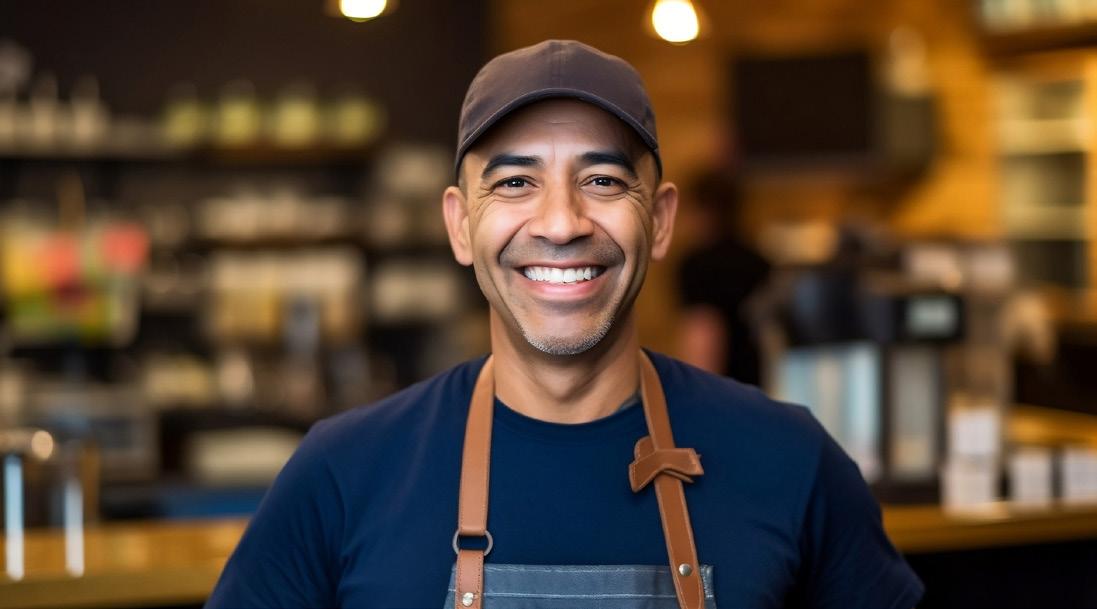







June, bringing together key employers to discuss workforce challenges and training needs. The discussions focused on updating Chemeketa Community College’s warehouse and logistics certificate program to align with industry advancements such as robotics and computer skills. Moving forward, SEDCOR will collaborate with employers, the Oregon Employment Department, and Chemeketa Community College to develop a workforce training program and seek grant funding to support the initiative.
• SEDCOR has been contracted by the Sheridan School District to develop and manage industry advisory committees and support the Barbara Roberts Career Technical Education Center (CTEC). This work has included engaging local manufacturers like Hampton Lumber, which committed a $1 million donation.
We want to support advancements in the infrastructure that is critical for our businesses and communities.
• The first Workforce Housing Investment Fund loan was awarded to HumanKind Homes to support research, product certification, and housing construction in Newberg. This milestone was made possible through our collaboration with the Newberg Workforce Housing Consortium and the support of Representative Anna Scharf. The fund’s initial investment will help advance HumanKind Homes’ innovative design-manufacturebuild system, addressing critical workforce housing needs in the region.
• SEDCOR is working with the Mid-Willamette Valley Council of Governments to expand workforce housing initiatives across Marion and Polk Counties. This collaboration builds on successful efforts in Newberg,
In five years, we want the Mid-Willamette Valley to be known as...
A great place to start or grow a business
An equitable and inclusive business community
A region with unique strengths in agriculture, food production, manufacturing, and technology
engaging employers and community leaders to identify opportunities for workforce housing development. By fostering partnerships and strategic outreach, SEDCOR aims to support sustainable housing solutions that meet the needs of local businesses and workers.
• SEDCOR is partnering with the City of Sheridan on an upcoming project to assess and enhance industrial land readiness for development. This collaboration will help position Sheridan for future economic growth by ensuring key sites are prepared to attract and support business investment.

We want SEDCOR to be recognized among businesses and community as a regional expert and invaluable catalyst in the field of economic development. Our biggest potential lies in the connections we make between people, companies, and communities. Engaging our stakeholders is critical to that process.

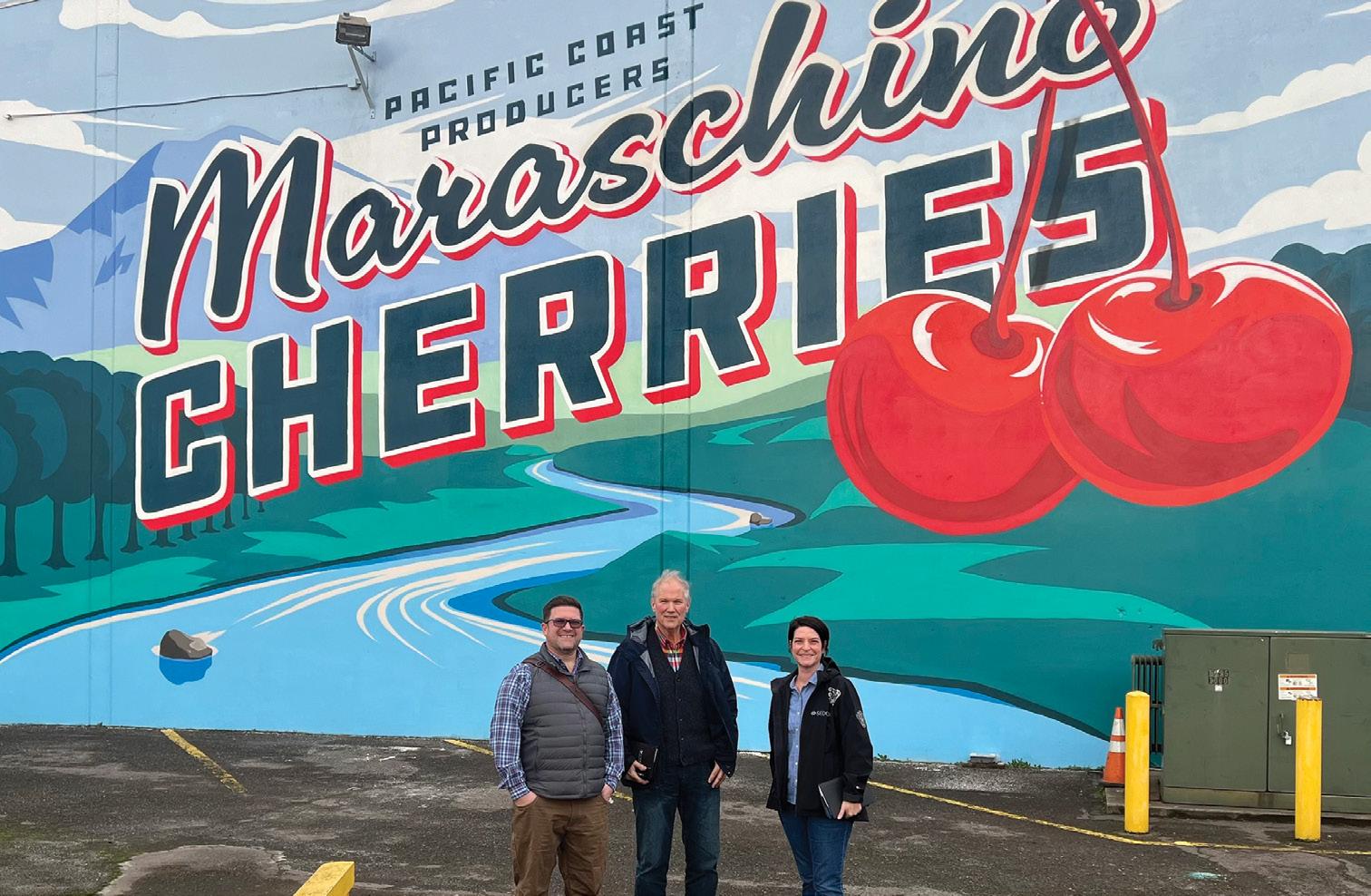
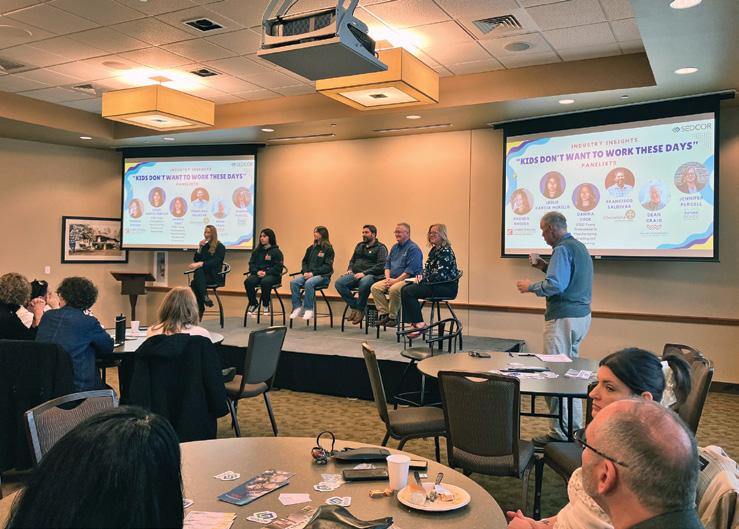

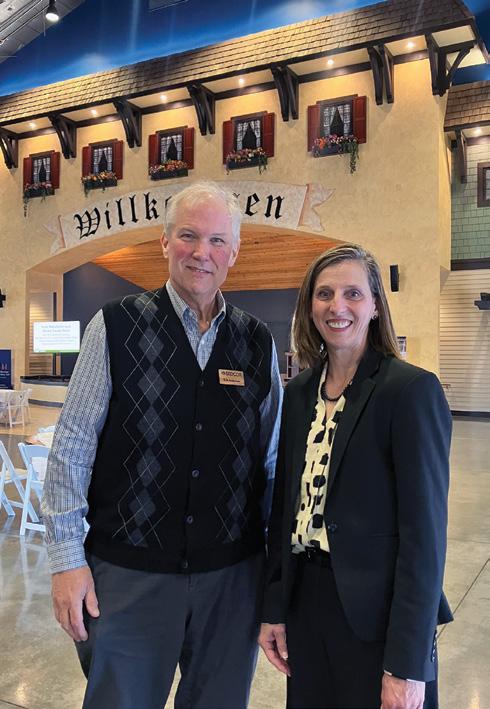
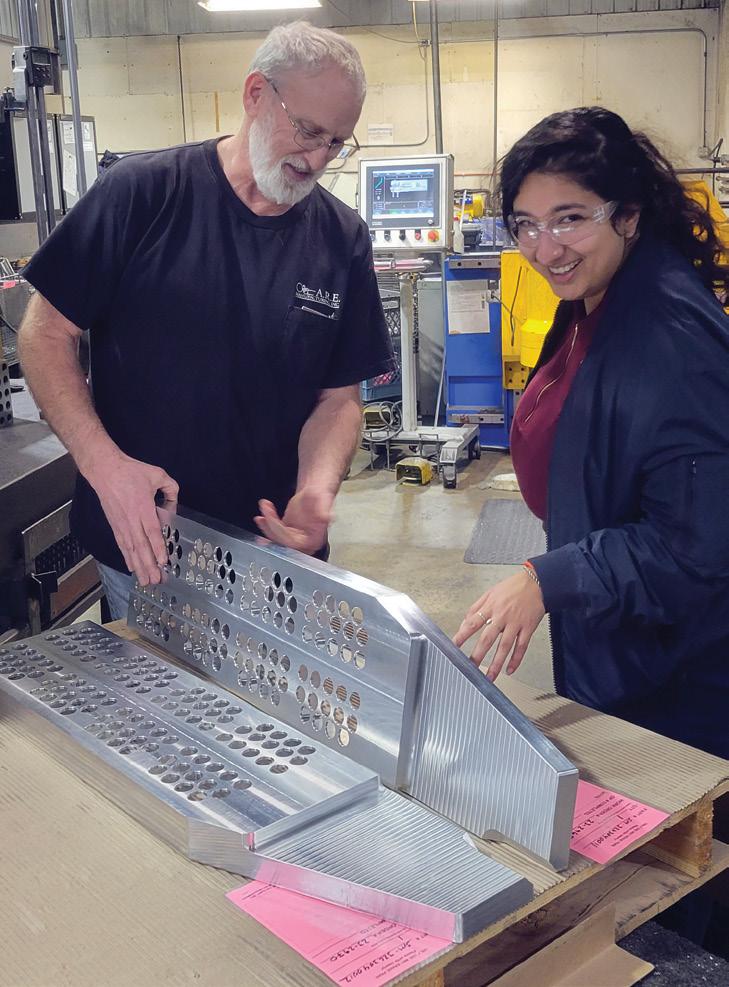
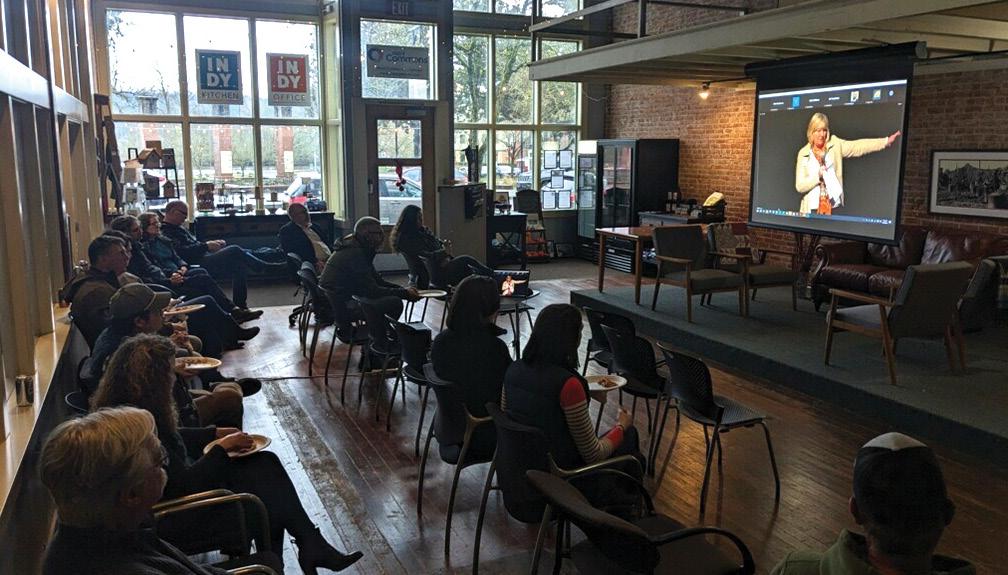
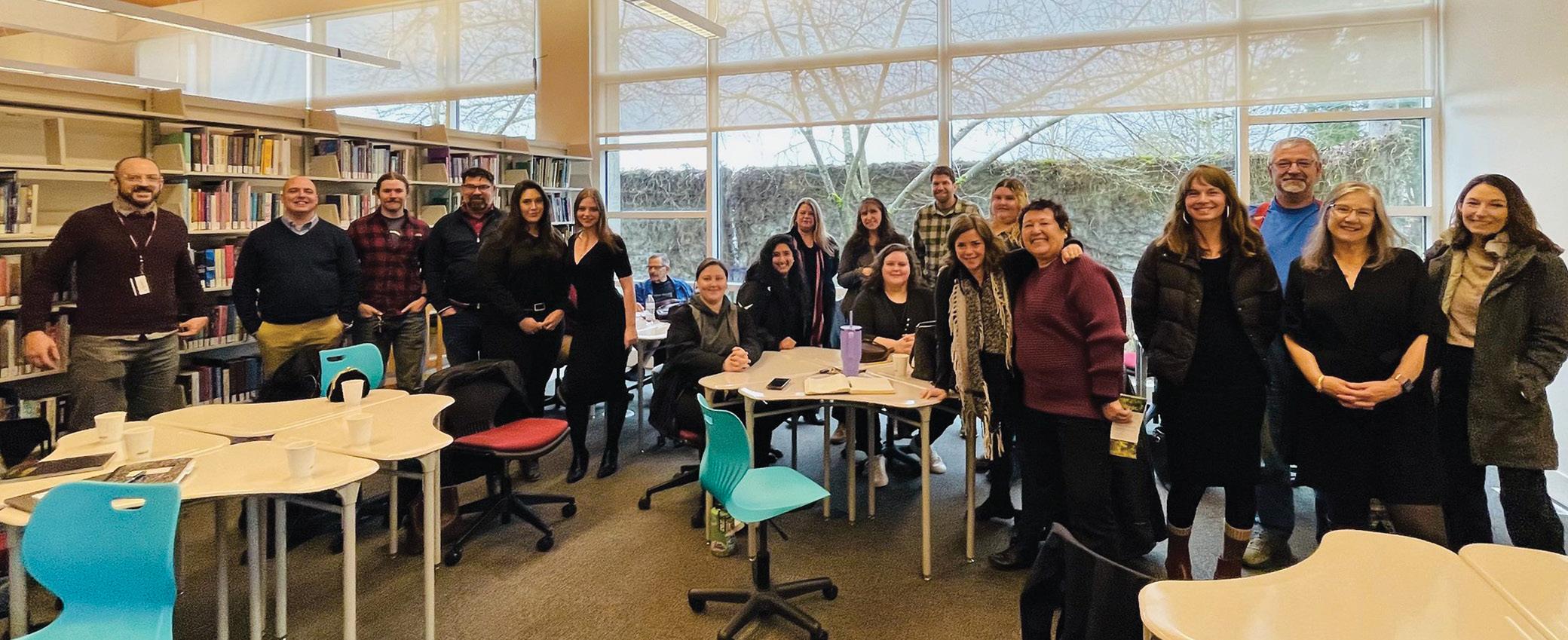
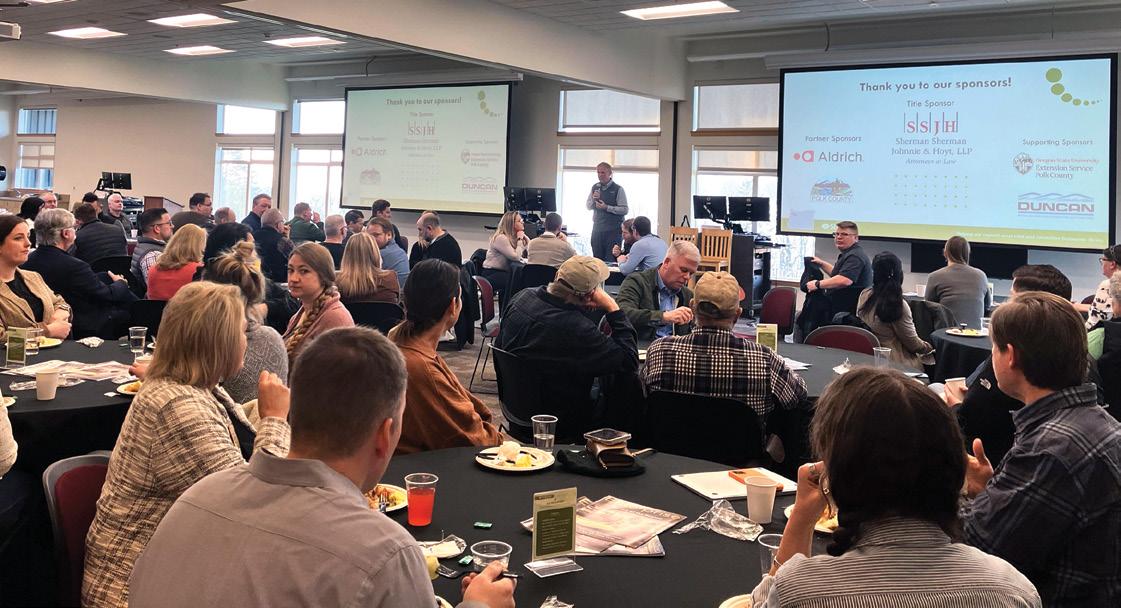
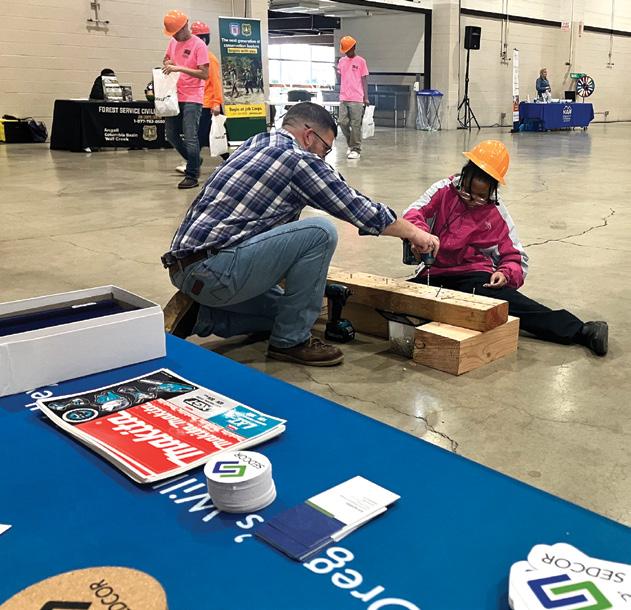
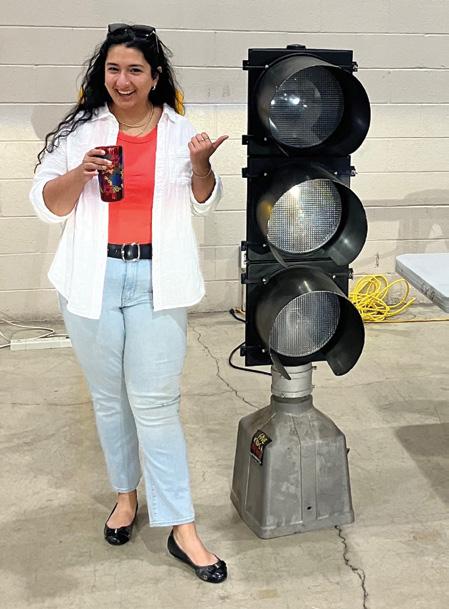
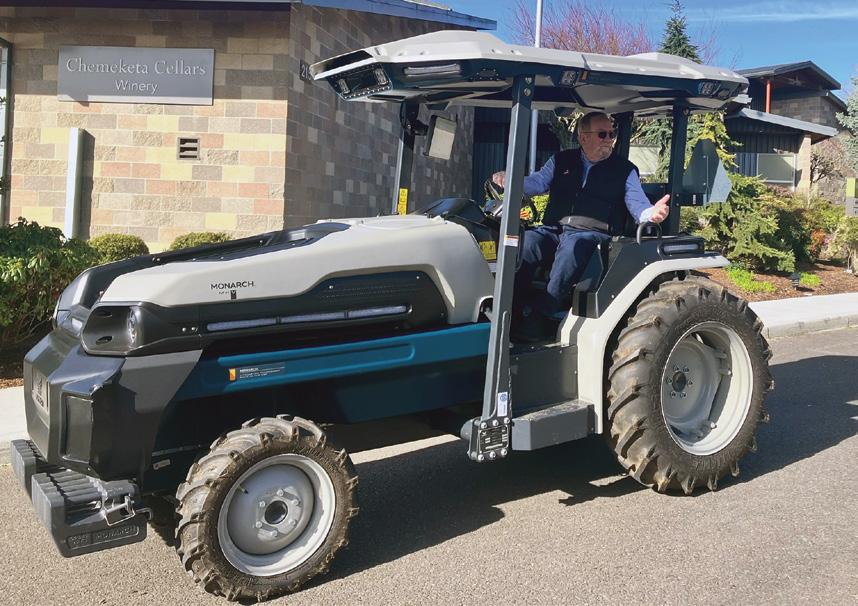
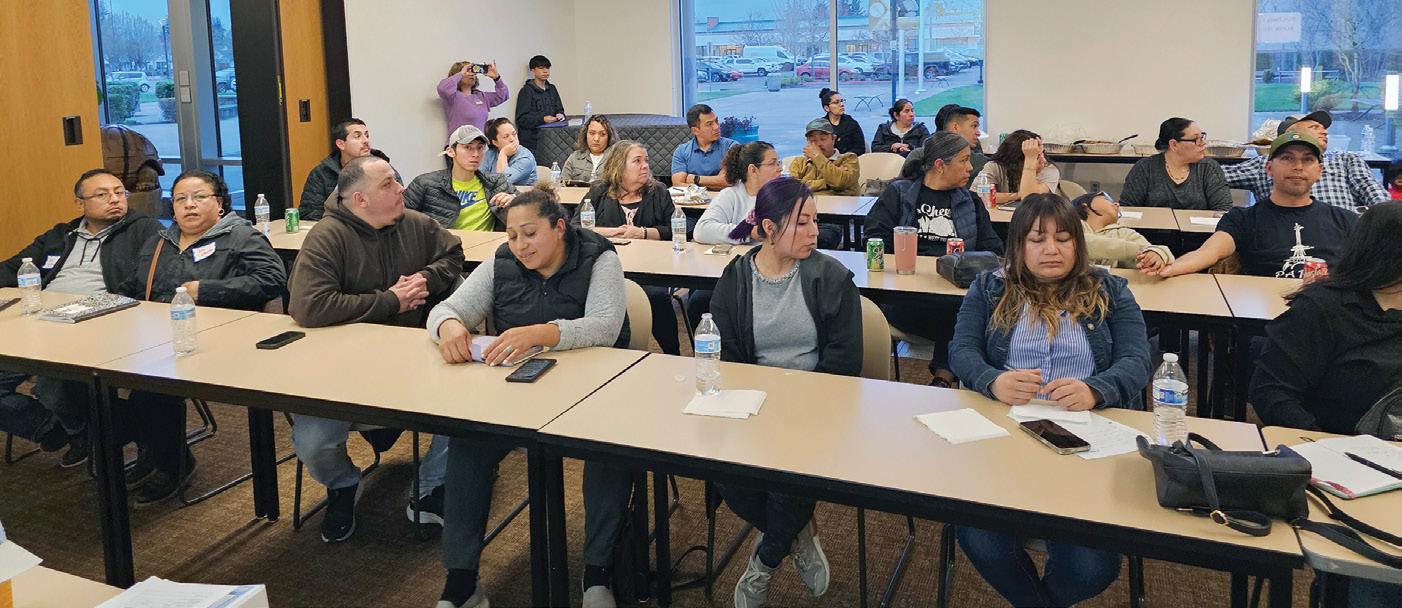
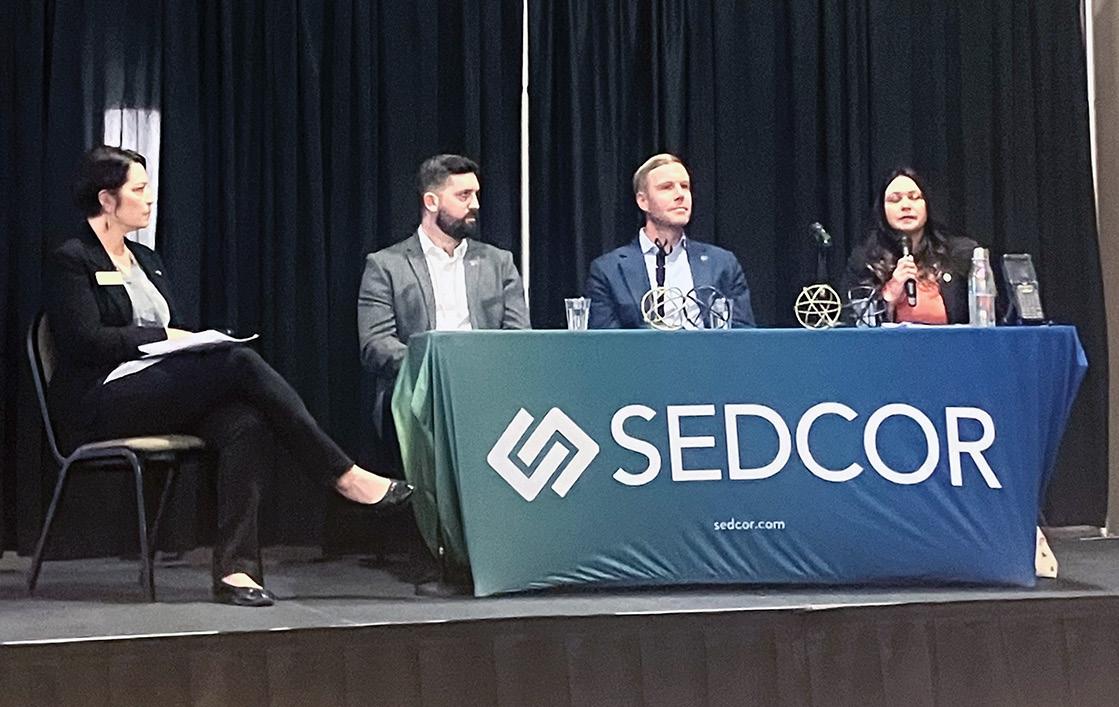
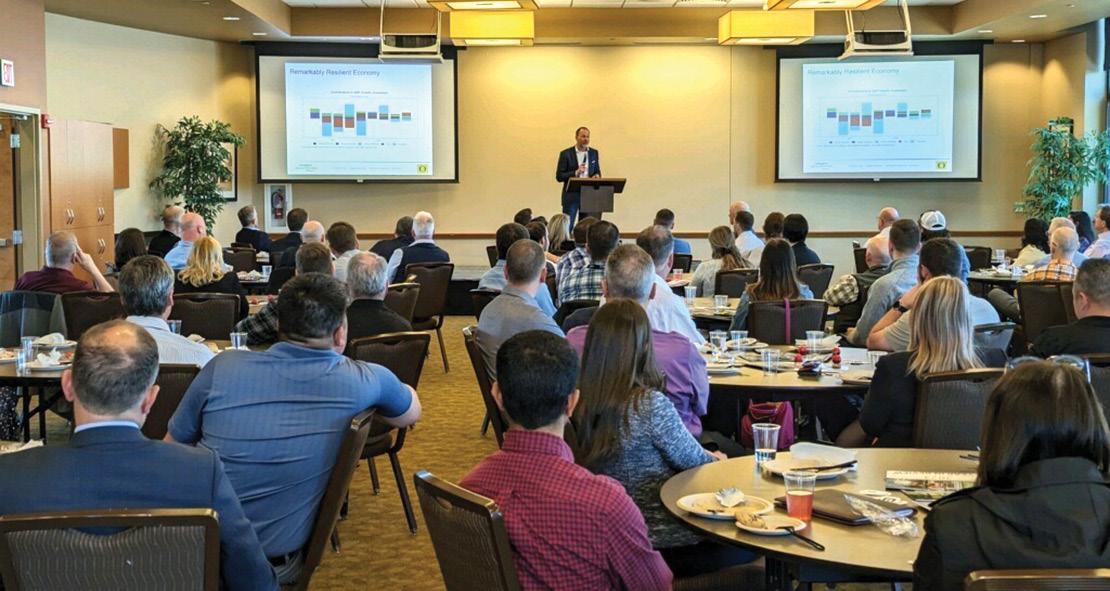
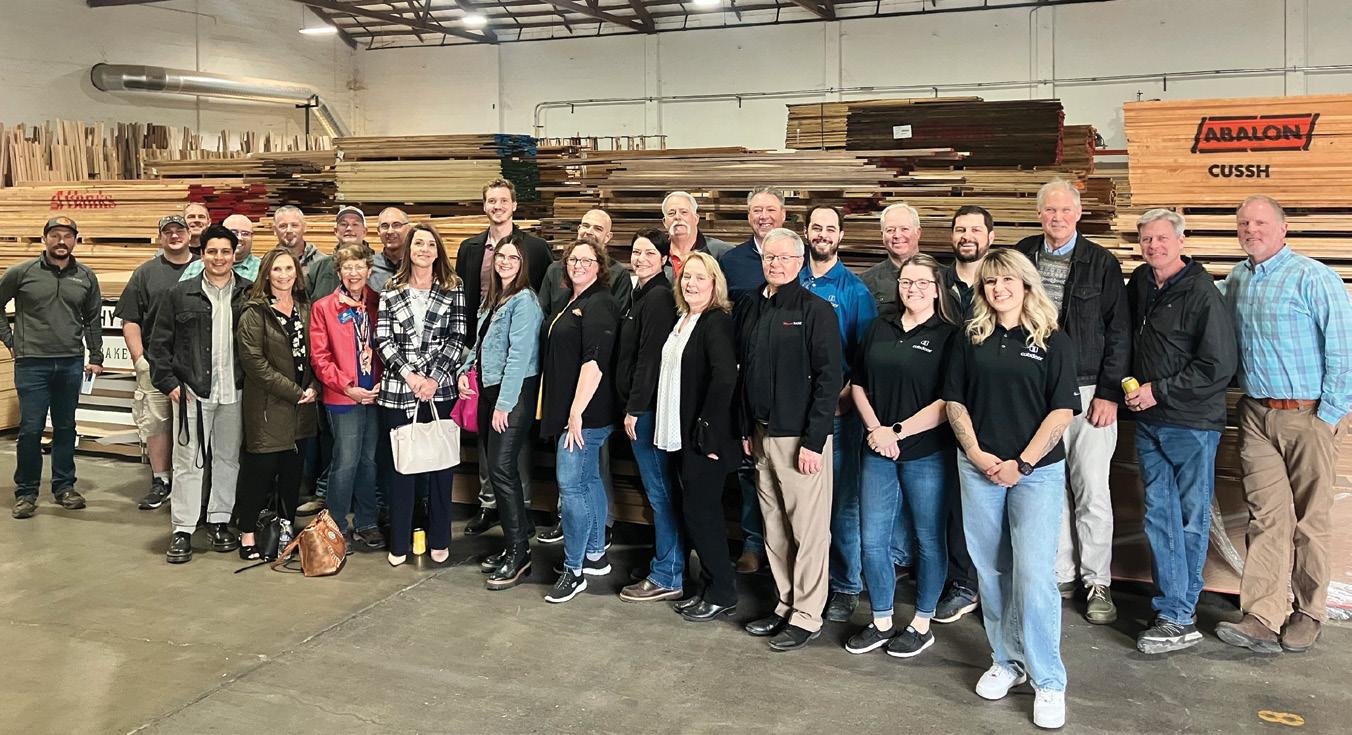
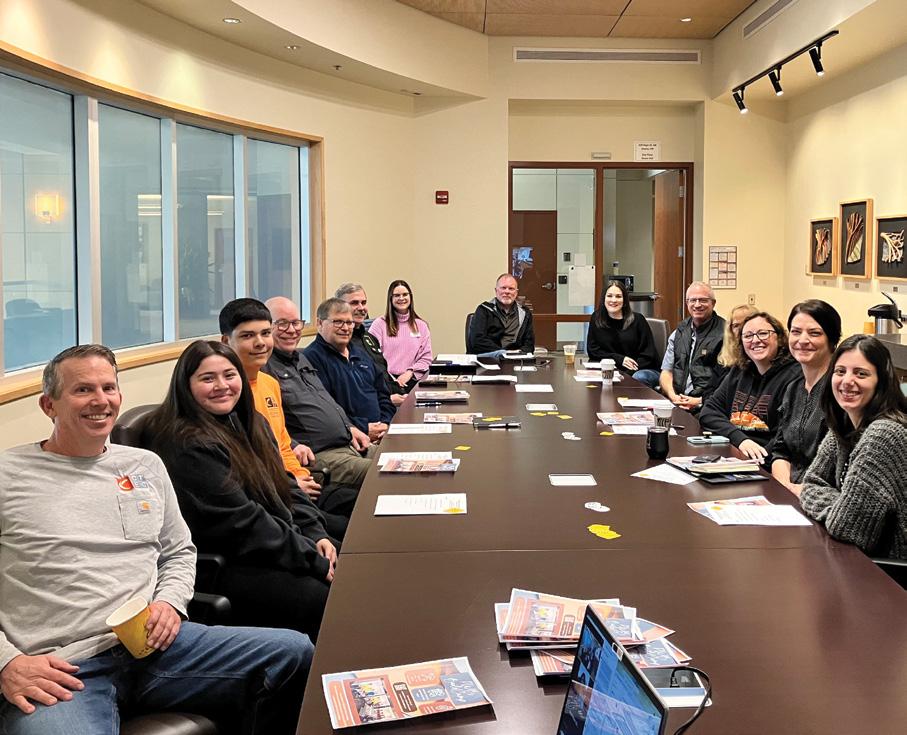


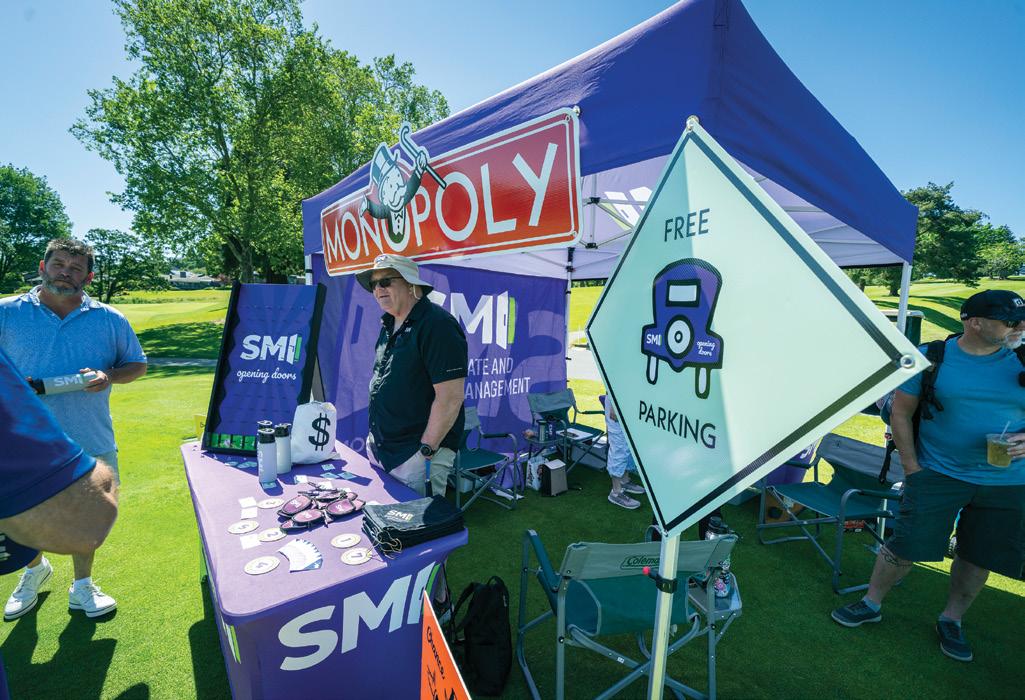
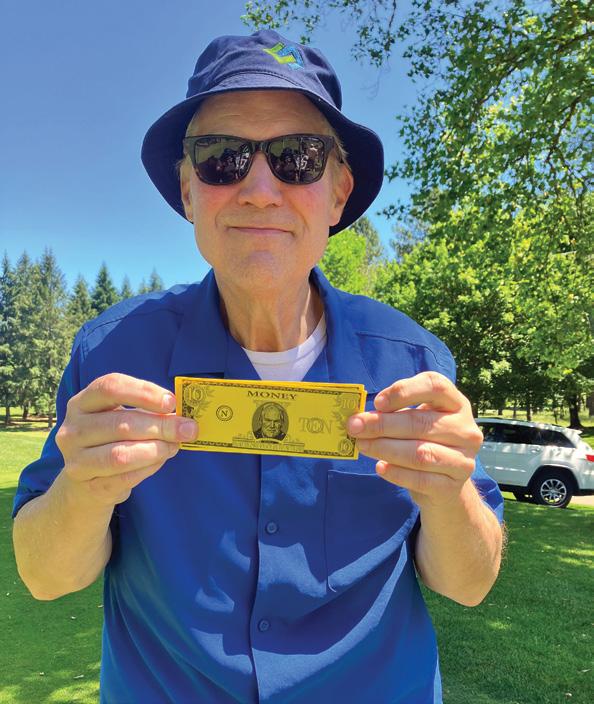

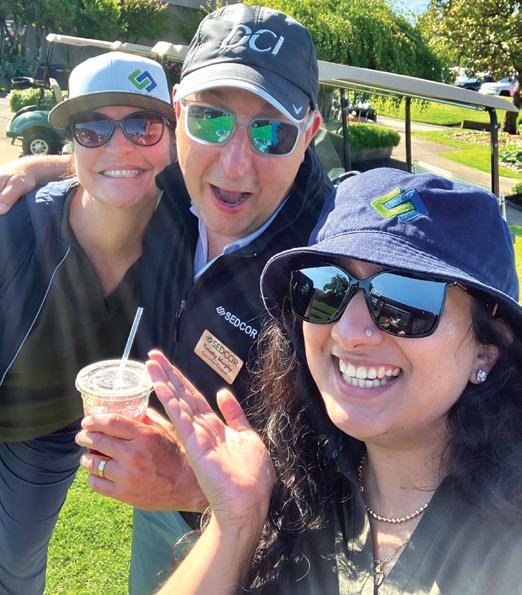
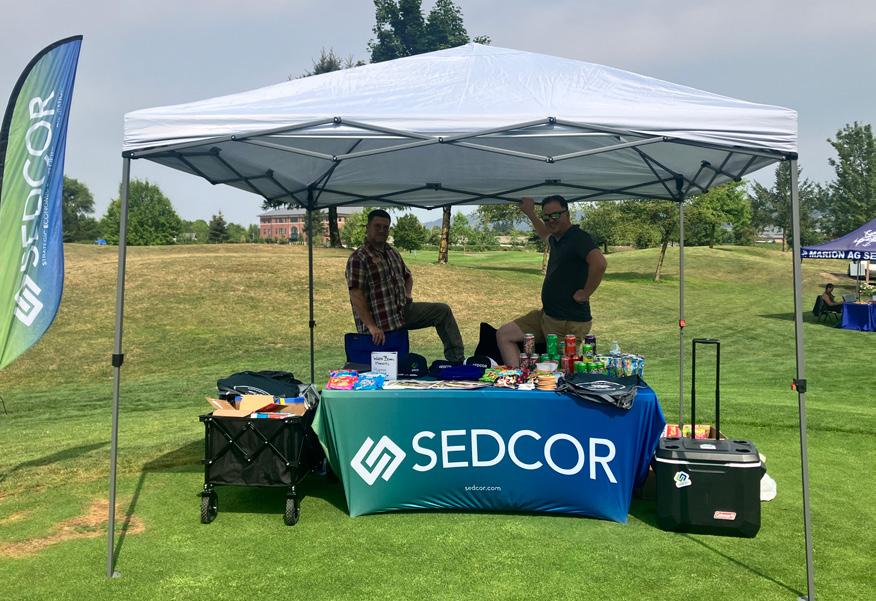
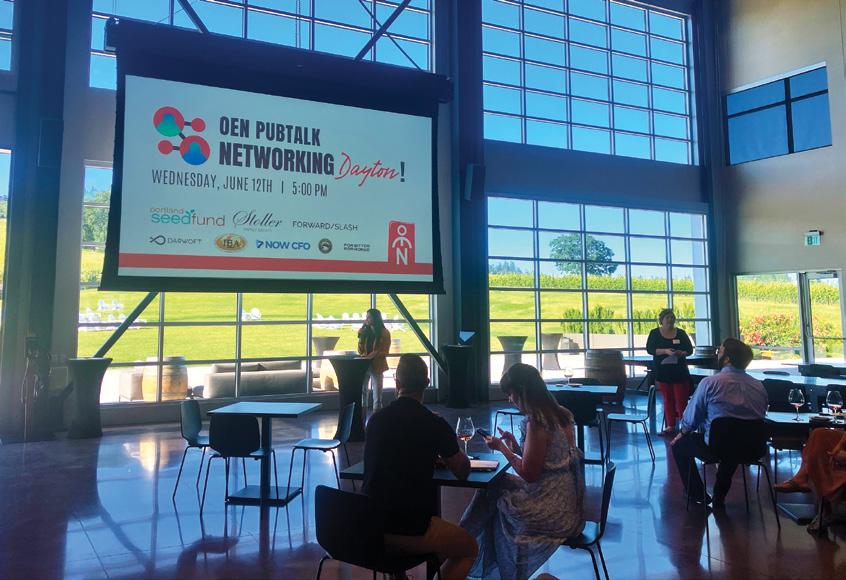
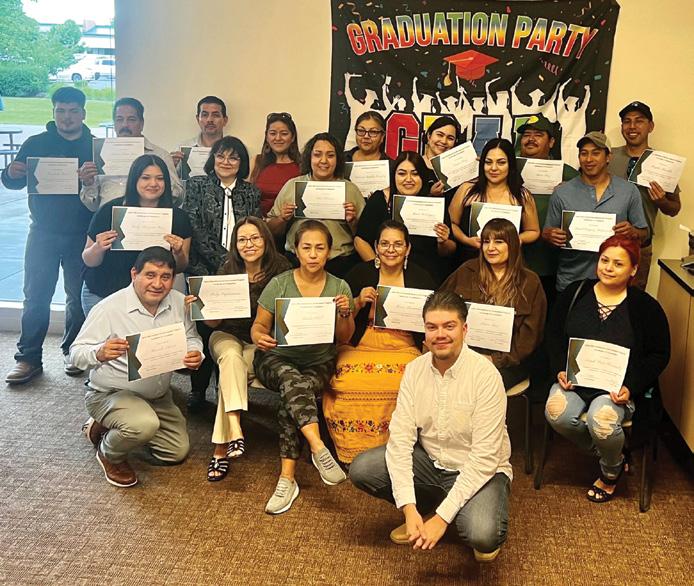
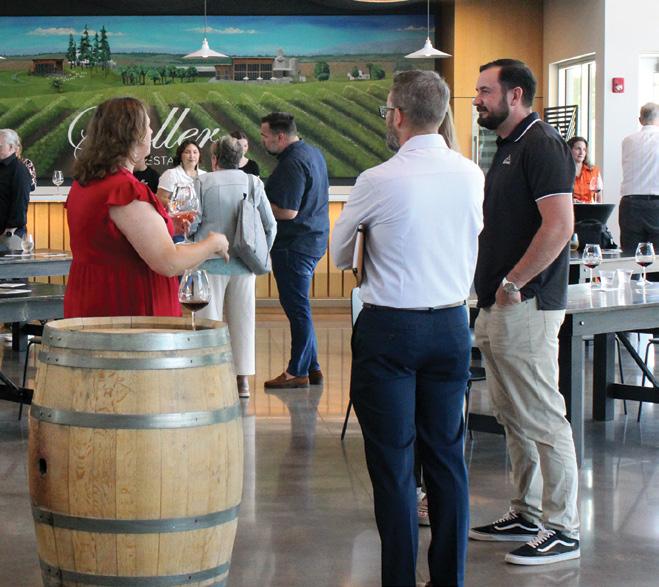
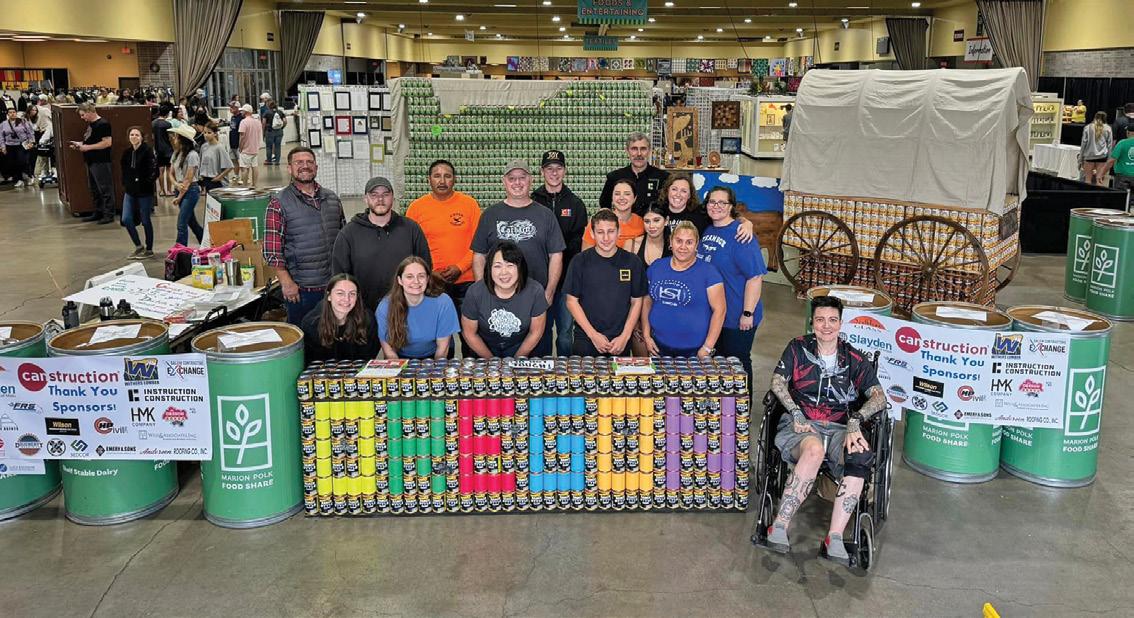
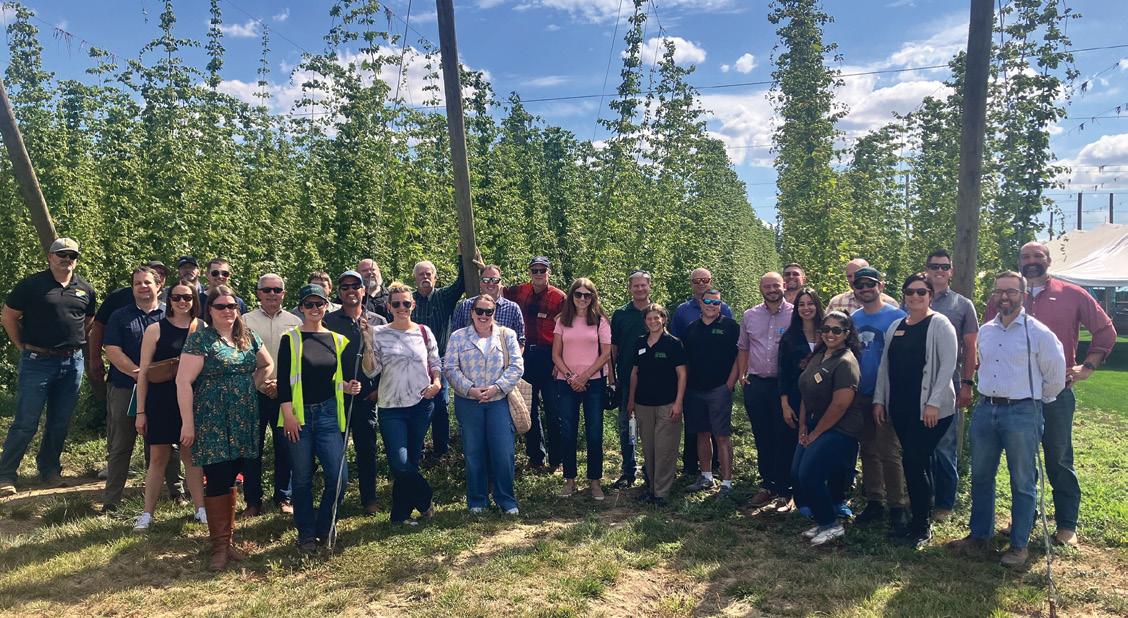
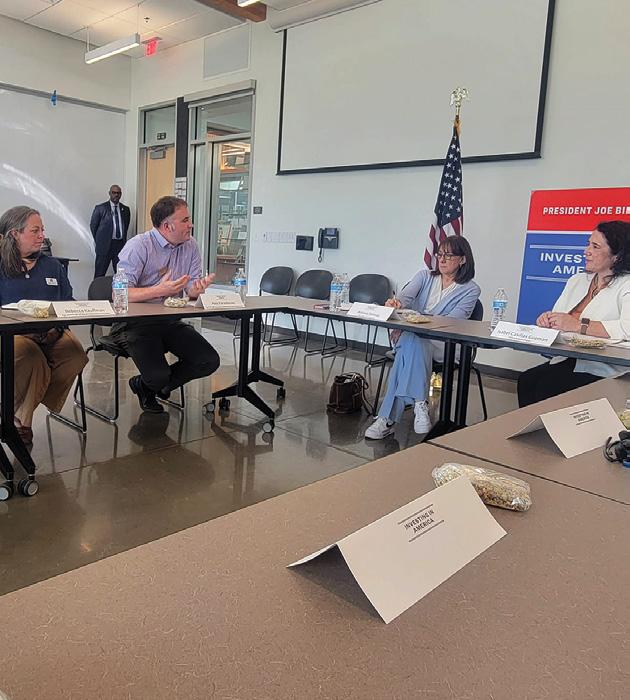
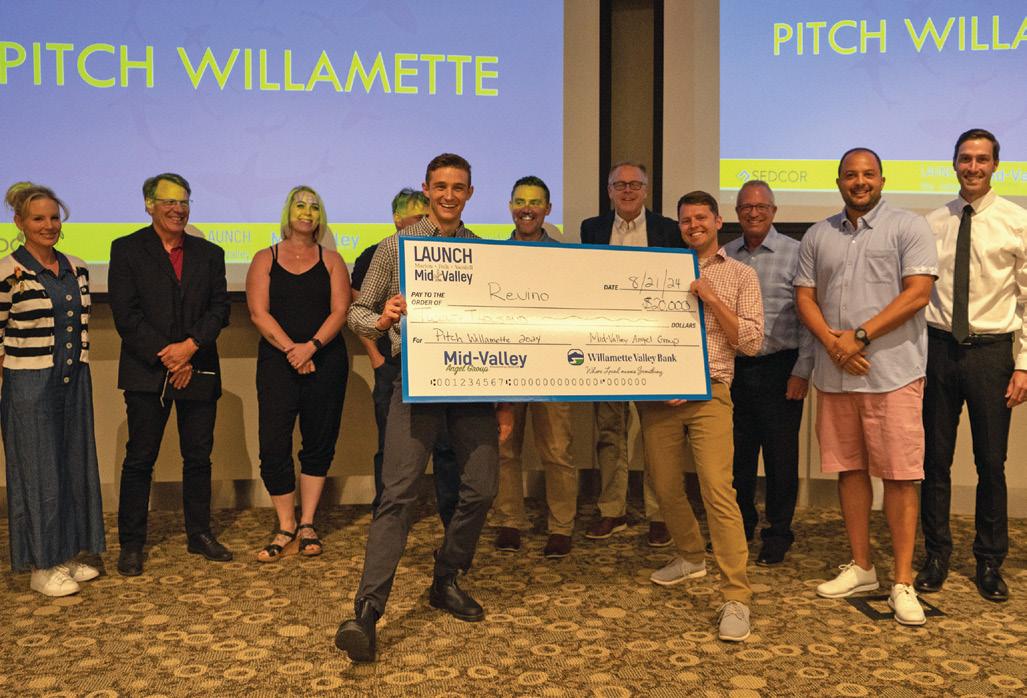
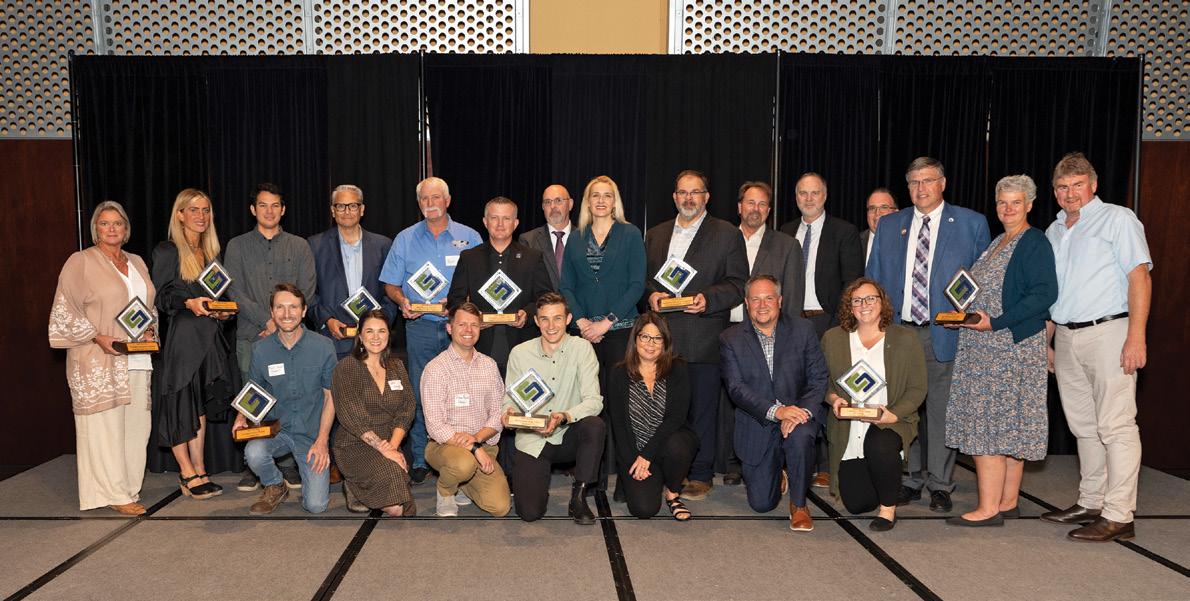
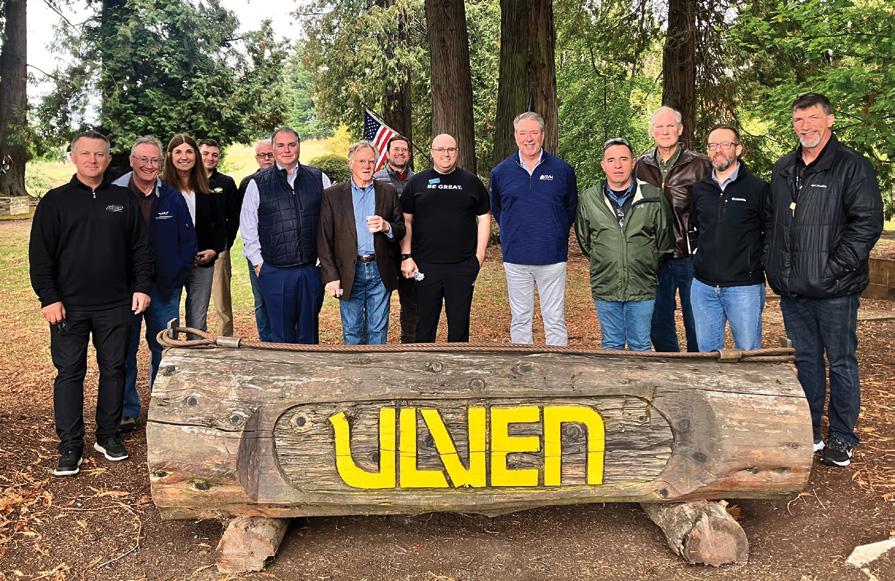
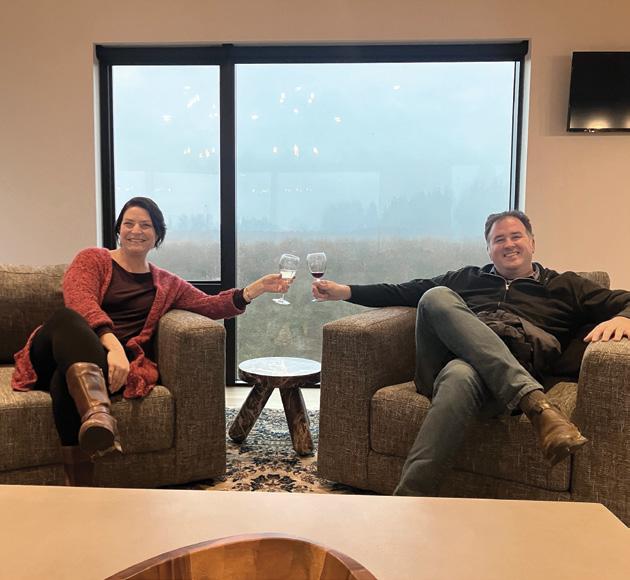

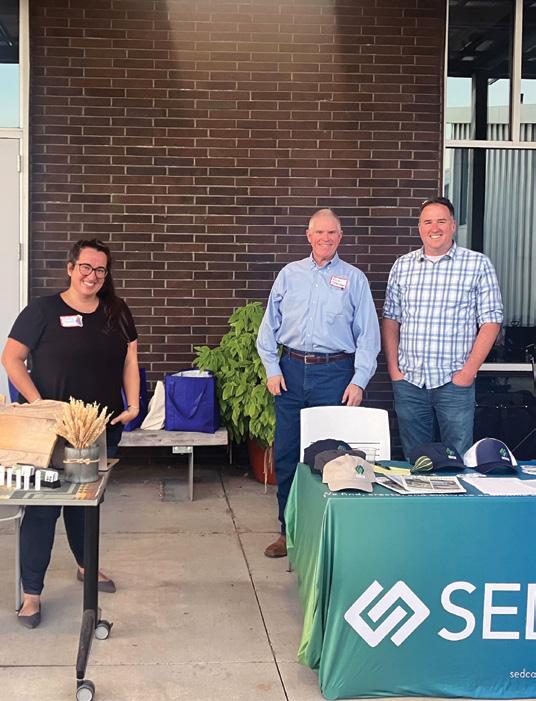
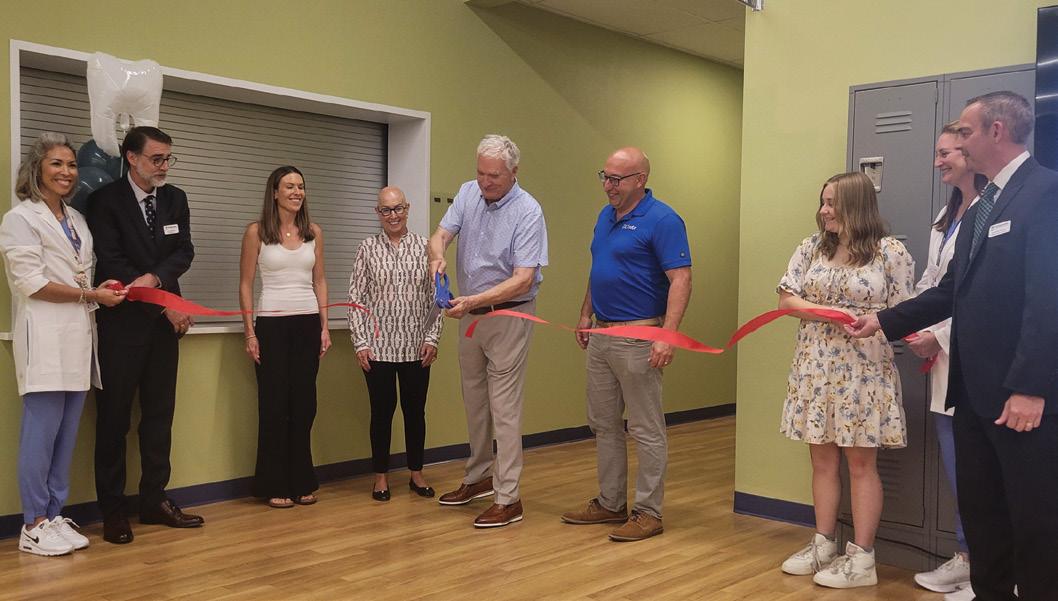
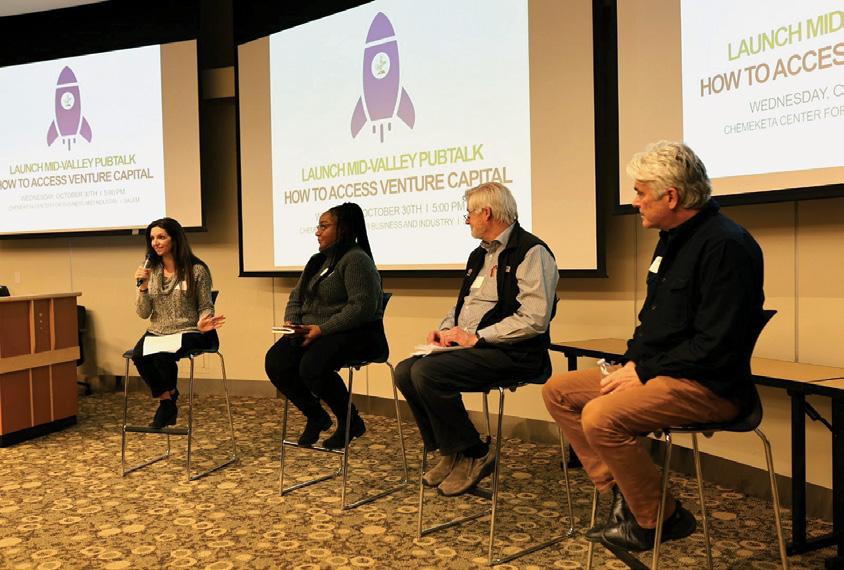
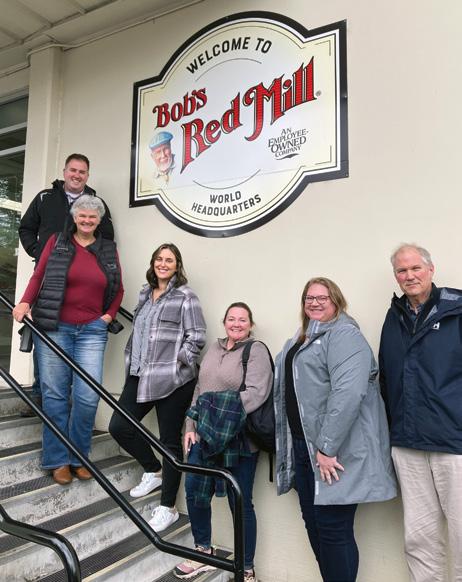
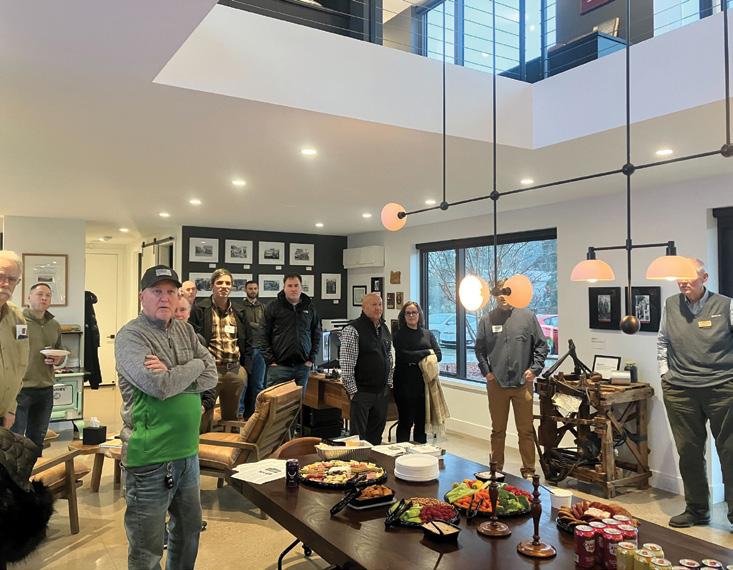
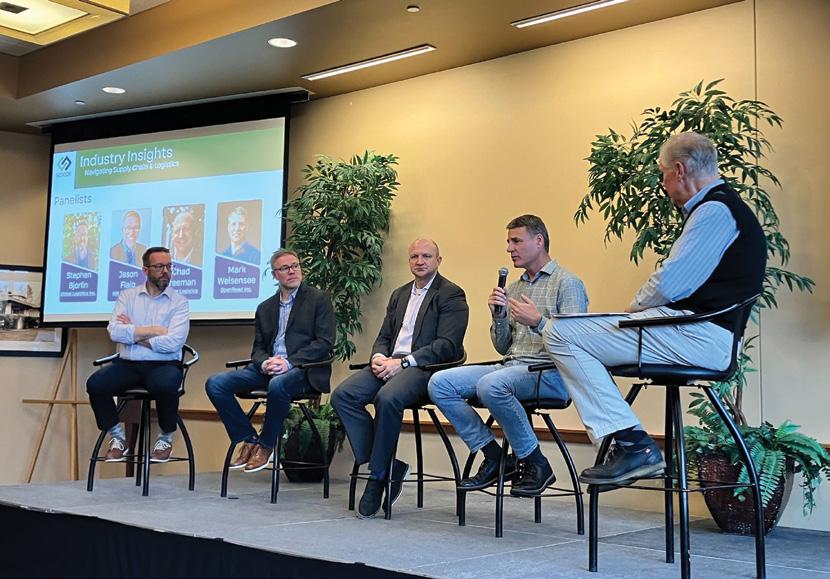
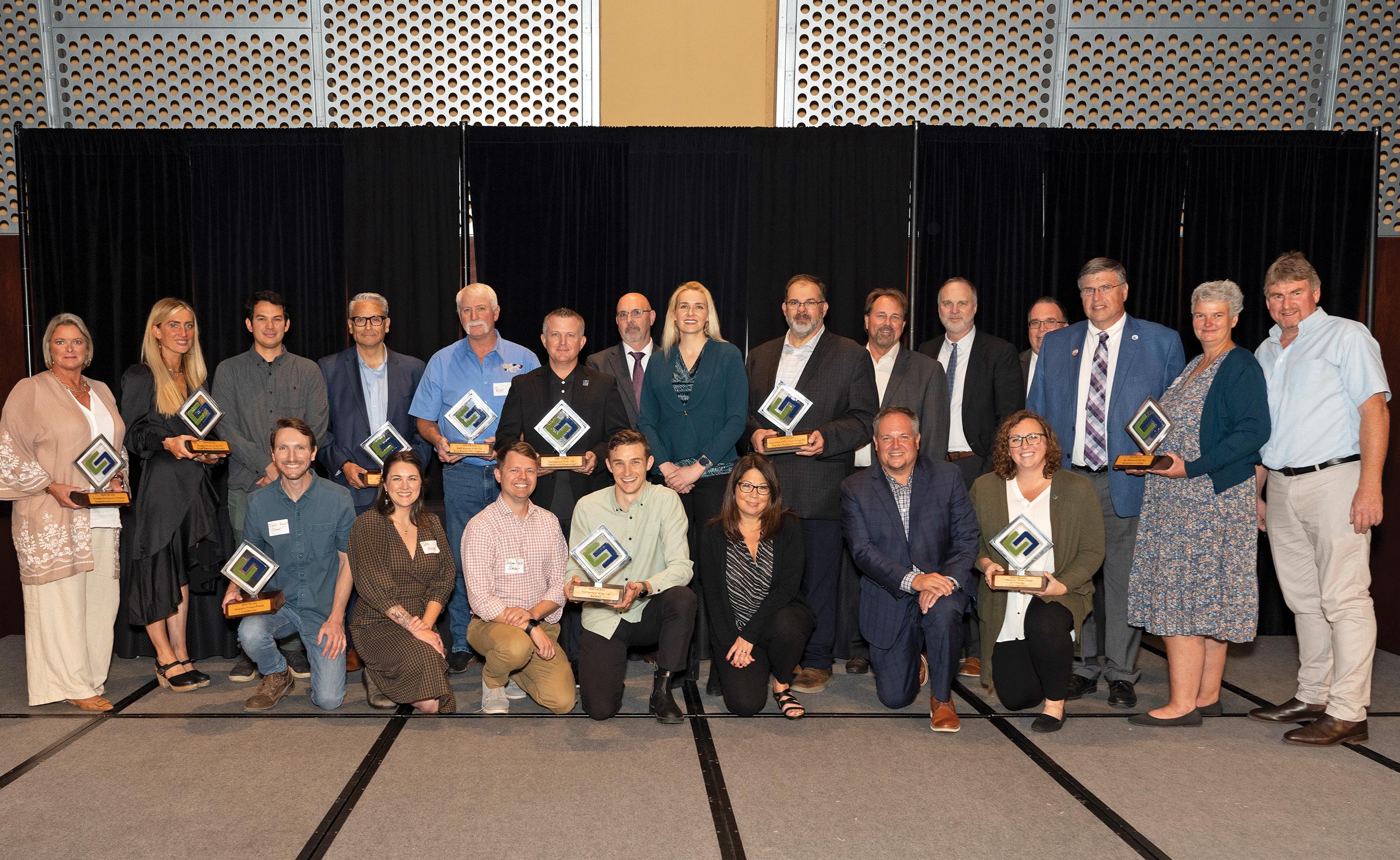
Our annual awards gives us a chance to shine a light on those who went above and beyond to serve their customers, their employees, and their communities over the past year.
A Legacy of Leadership and Innovation in Agriculture
Ruddenklau Farms, under the stewardship of co-owners Helle and Bruce Ruddenklau, is a beacon of excellence in Oregon’s agricultural sector. Known for their forward-thinking approach, the Ruddenklauses have not only excelled in traditional farming practices but have also embraced cutting-edge innovations that drive the industry forward. Their collaboration with Yamasa USA on hard red wheat production catalyzed the creation of SEDCOR’s “Locally Grown Supply Chain” initiative, which bridges the gap between farmers and food processors for a more cohesive regional food economy.
Ruddenklau Farms actively participates in the AgLaunch Farmer Network and hosts field trials that test and refine emerging agricultural technologies. Their support of the AgLaunch365 business accelerator reflects their commitment to empowering startups and fostering innovation. Serving on the farmer selection committee for ag-tech initiatives, the Ruddenklauses are shaping the future of farming by ensuring that new solutions align with real-world agricultural needs. Their willingness to share expertise and engage with the community has solidified their status as leaders who inspire progress while honoring tradition.

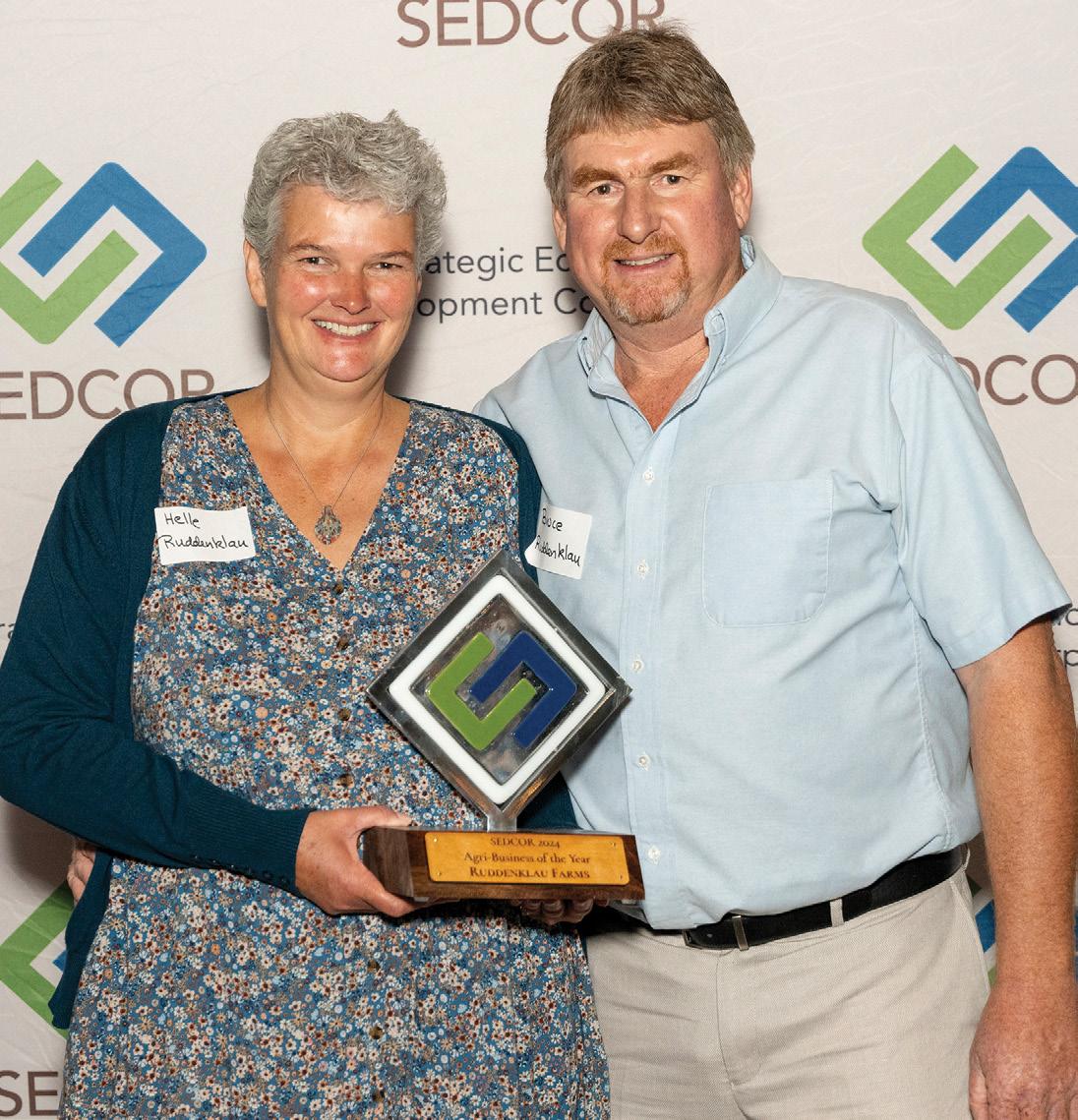

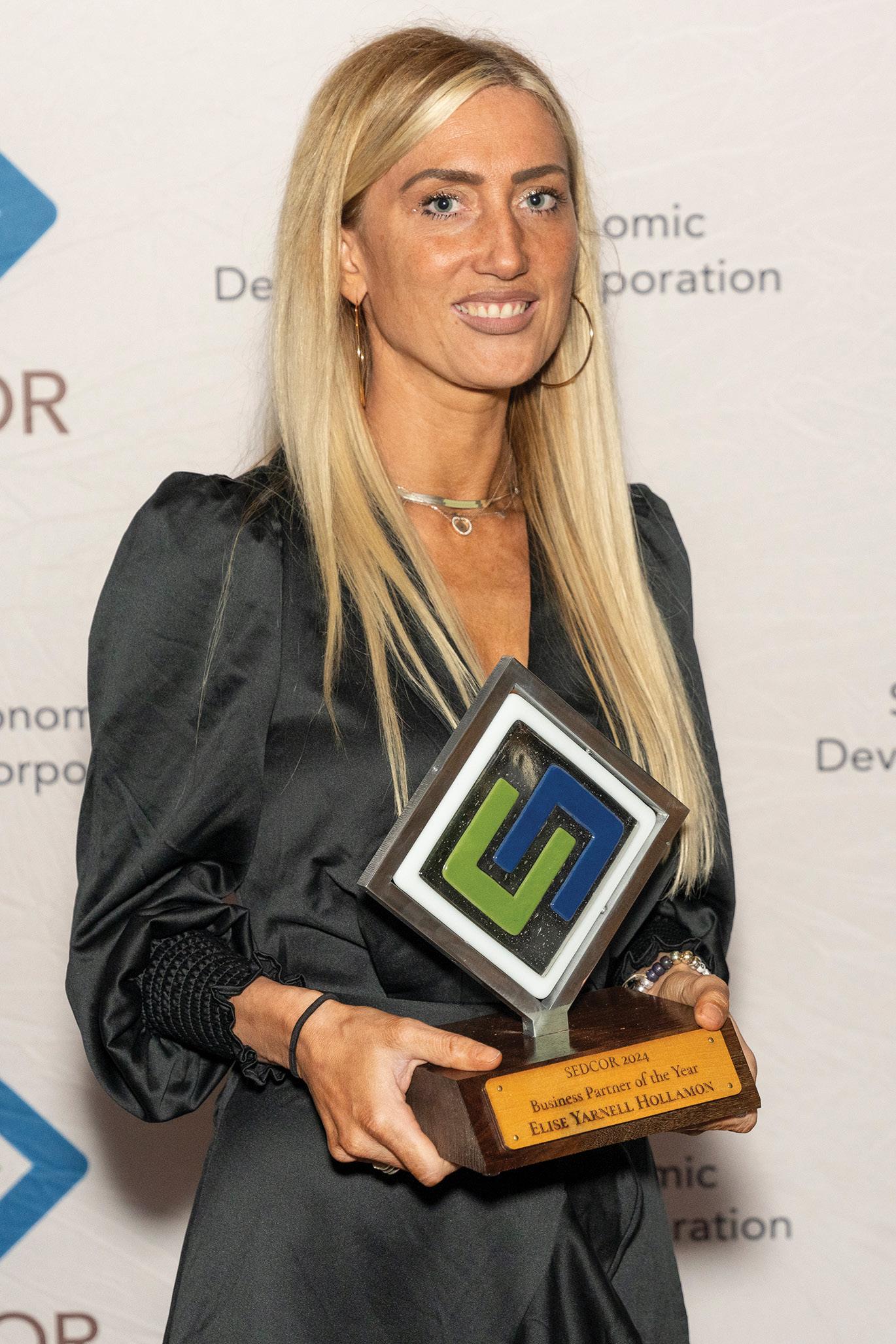
Catalyzing
Elise Yarnell Hollamon’s leadership as CEO of Rallied Force demonstrates the profound impact of strategic partnerships and community-centered initiatives. Her involvement in Project Oasis underscores her ability to bring diverse stakeholders together to address regional challenges like workforce development. Through her role in the Newberg Workforce Housing Consortium, Elise has been instrumental in creating solutions for affordable housing, ensuring that essential workers have access to sustainable living conditions. Elise’s dedication extends to her work with the Barbara Roberts CTE Center, where her efforts help provide young people with opportunities to build essential skills for high-demand industries. Her multifaceted contributions reveal a deep understanding of how interconnected challenges require coordinated, innovative responses. Elise’s leadership has not only advanced SEDCOR’s initiatives but has also left an indelible mark on the community by fostering growth, equity, and shared prosperity.
As the founder of Advanced Economic Solutions Inc., Marin Arreola has become a transformative force in the MidWillamette Valley. His vision for the Latino Microenterprise Development Program has empowered entrepreneurs from underserved communities, helping them build confidence, develop business acumen, and pursue their dreams. Marin’s ability to connect on a personal level with participants has fostered trust and collaboration, ensuring that the program delivers both practical results and emotional support. Beyond this initiative, Marin’s appointment to the Oregon Business Development Commission has positioned him as a regional voice advocating for inclusive economic policies. By representing SEDCOR and the broader business community at the state level, he has opened new doors for investment and innovation in the region. Marin’s leadership is a testament to the power of combining expertise with empathy, creating opportunities that strengthen the economic fabric of the community.
Continued next page
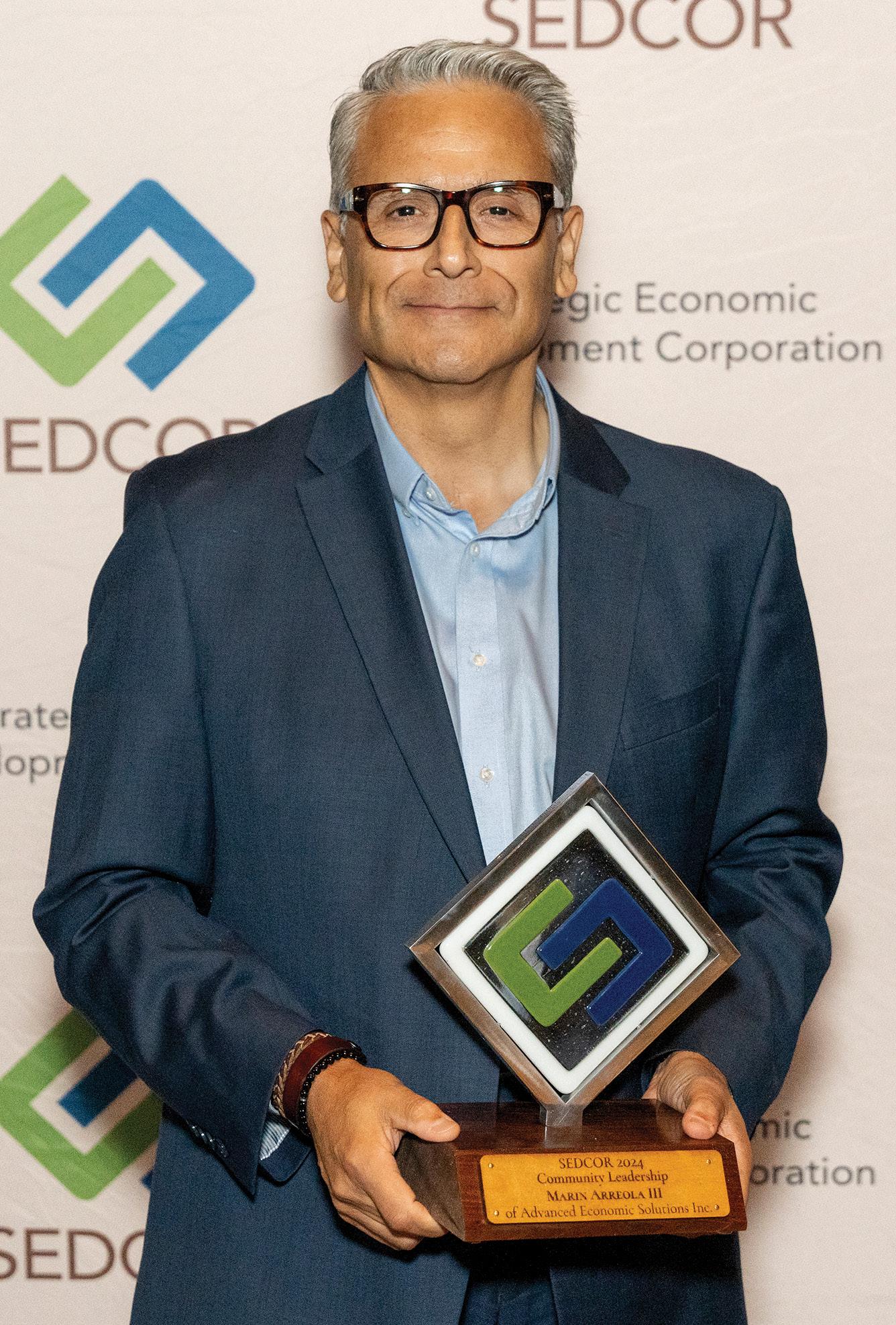
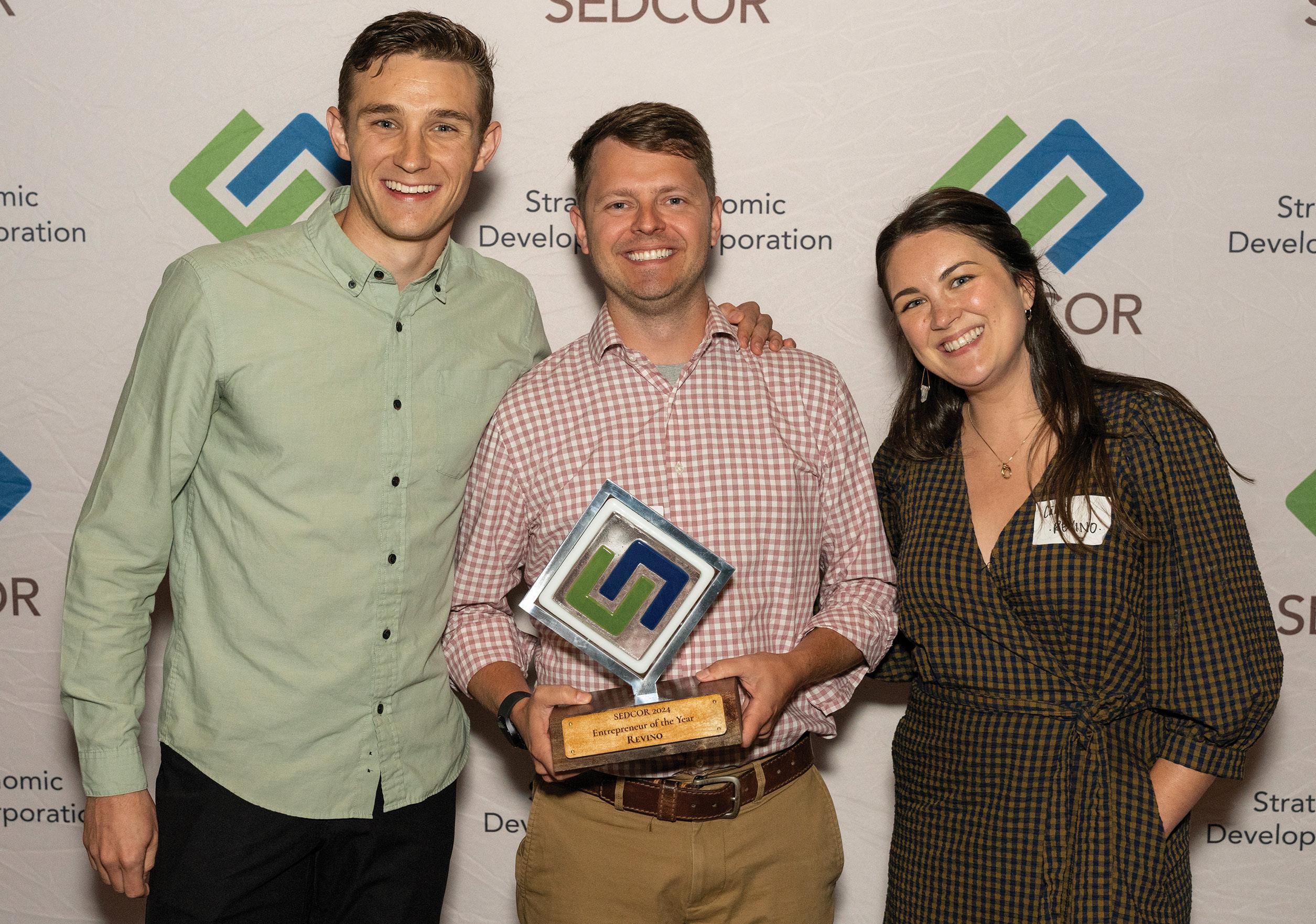
Sustainable Innovation with a Vision for the Future Revino, founded by Keenan O’Hern and Adam Rack, is revolutionizing the wine industry with its innovative approach to sustainability. The company’s reusable wine bottles, designed to withstand up to 50 cycles, offer a tangible solution to the environmental challenges posed by single-use packaging. These bottles not only reduce waste and carbon emissions but also encourage consumers to adopt sustainable practices by making recycling simple and rewarding.


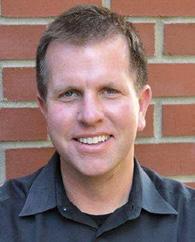

Revino’s commitment to sustainability is matched by its entrepreneurial drive. After years of research and collaboration with wineries and beverage producers, the company launched its refillable bottles of Oregon wine, which quickly gained traction in the market. Their success at SEDCOR’s Pitch Willamette event, where they secured $20,000 in funding, highlights the confidence investors have in their vision. With a goal to divert 25 million pounds of waste and cut 50 million pounds of carbon emissions by 2030, Revino is setting a bold new standard for eco-friendly innovation.

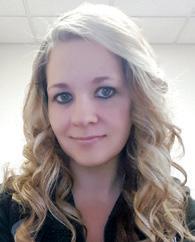







Juli Foscoli of South Town Glass exemplifies the spirit of service that drives community development. When SEDCOR’s Construction Alliance faced a leadership transition, Juli stepped in to reinvigorate the group with her energy and vision. Her focus on promoting careers in the trades has been instrumental in addressing regional workforce challenges, ensuring that future generations see the trades as a viable and rewarding career path.
Juli’s involvement with the National Association of Women in Construction (NAWIC) and the Salem Career Technical Education Center highlights her commitment to empowering underrepresented groups in the industry. Her hands-on approach, whether mentoring young professionals or advocating for better training programs, reflects a deep belief in the power of education and opportunity. By aligning her business expertise with her passion for community building, Juli has created lasting impacts that will benefit the region for years to come.
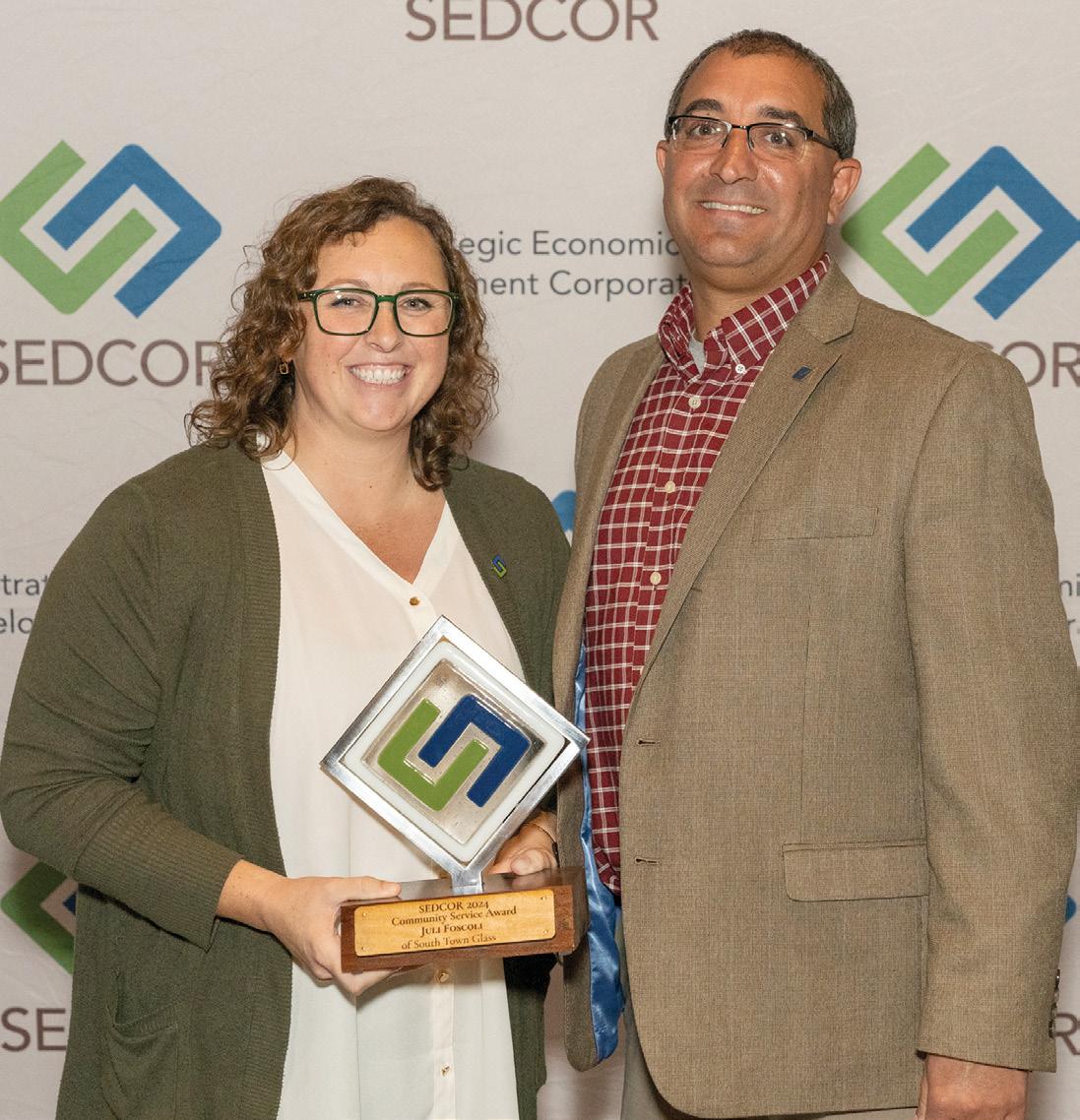
Leading the Way in Automated Agricultural Solutions Canopii has redefined agricultural practices with its fully automated robotic nursery, a groundbreaking system that transforms how leafy greens and herbs are cultivated. The nursery eliminates human contact at every stage, from seeding to harvest, creating a more efficient and hygienic process. This innovation not only improves productivity but also reduces labor costs and the environmental impact of farming. Backed by SBIR grants and investments from leading organizations like ONAMI and Elevate Capital, Canopii has successfully developed a full-scale prototype at GK Machine. Their work exemplifies the potential of technology to solve critical challenges in agriculture, paving the way for a more
sustainable and productive future. Canopii’s advancements underline the importance of investing in innovation to ensure long-term economic and environmental resilience.
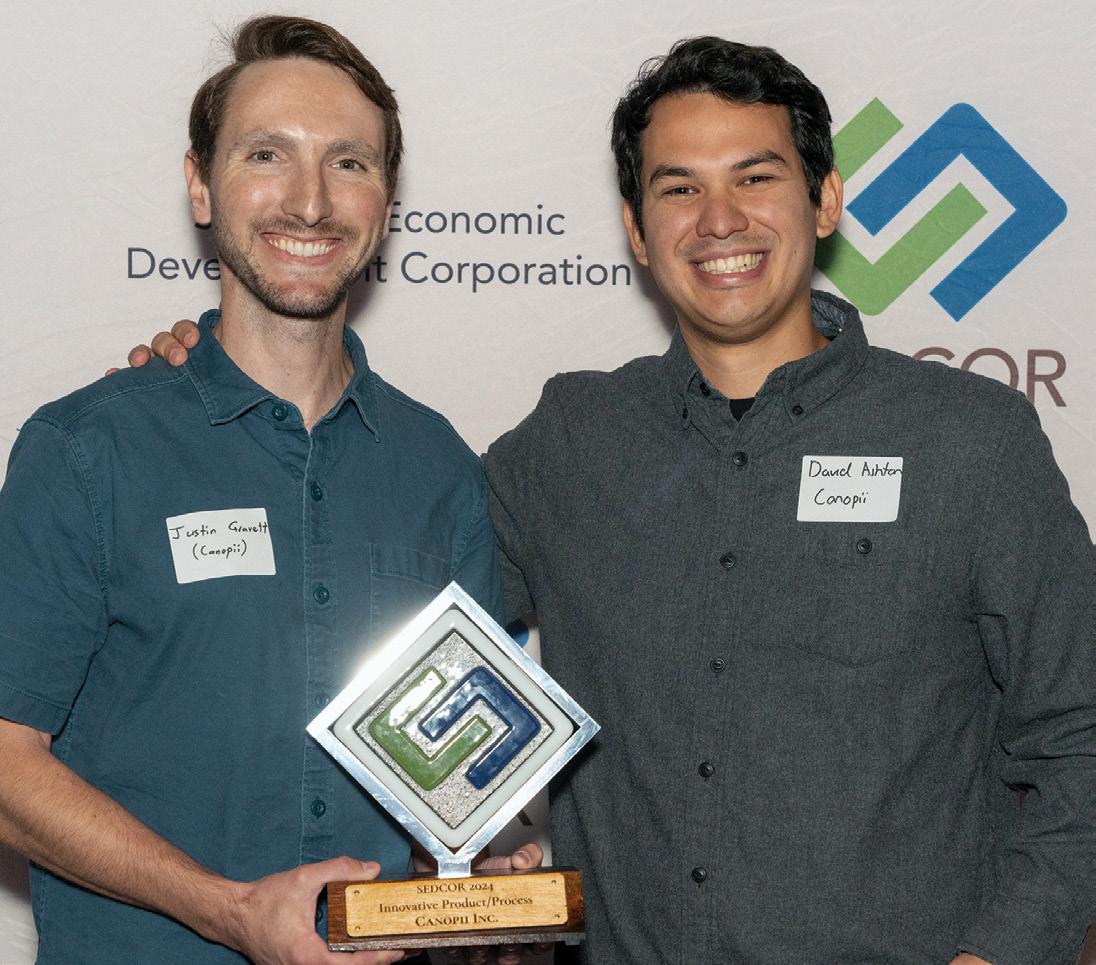
Blue Raeven Pie Company, owned by Ronald and Jamie Lewis, has become a cherished institution in the Mid-Willamette Valley. With roots that span four generations, the company has built a reputation for producing high-quality pies crafted from locally sourced fruit. Their products evoke a sense of nostalgia, offering a taste of simpler times while supporting local agriculture.
Recently, Blue Raeven expanded to a new location in McMinnville, reflecting their commitment to growth and community engagement. Their success is rooted in a dedication to traditional values combined with a willingness to innovate. From pocket pies to full-sized classics, Continued on page 19




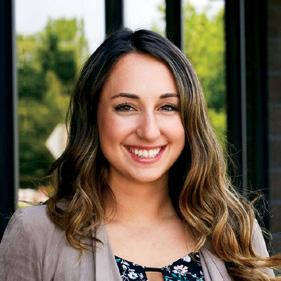
• No monthly service or transaction fee
• Tiered rates based on the overall account balance
• Insured up to $5.25 million*
• Advanced Business Checking** is required to open this account
• No monthly service or transaction fee
• Tiered rates based on the overall account balance
• Our highest business rates offered
• Advanced Business Checking** is required to open this account
Maps membership is required. Rates may change after the account is opened. Fees may reduce earnings on this account. ** An Advanced Business Checking Account is required to open this account, minimum opening balance of $100.
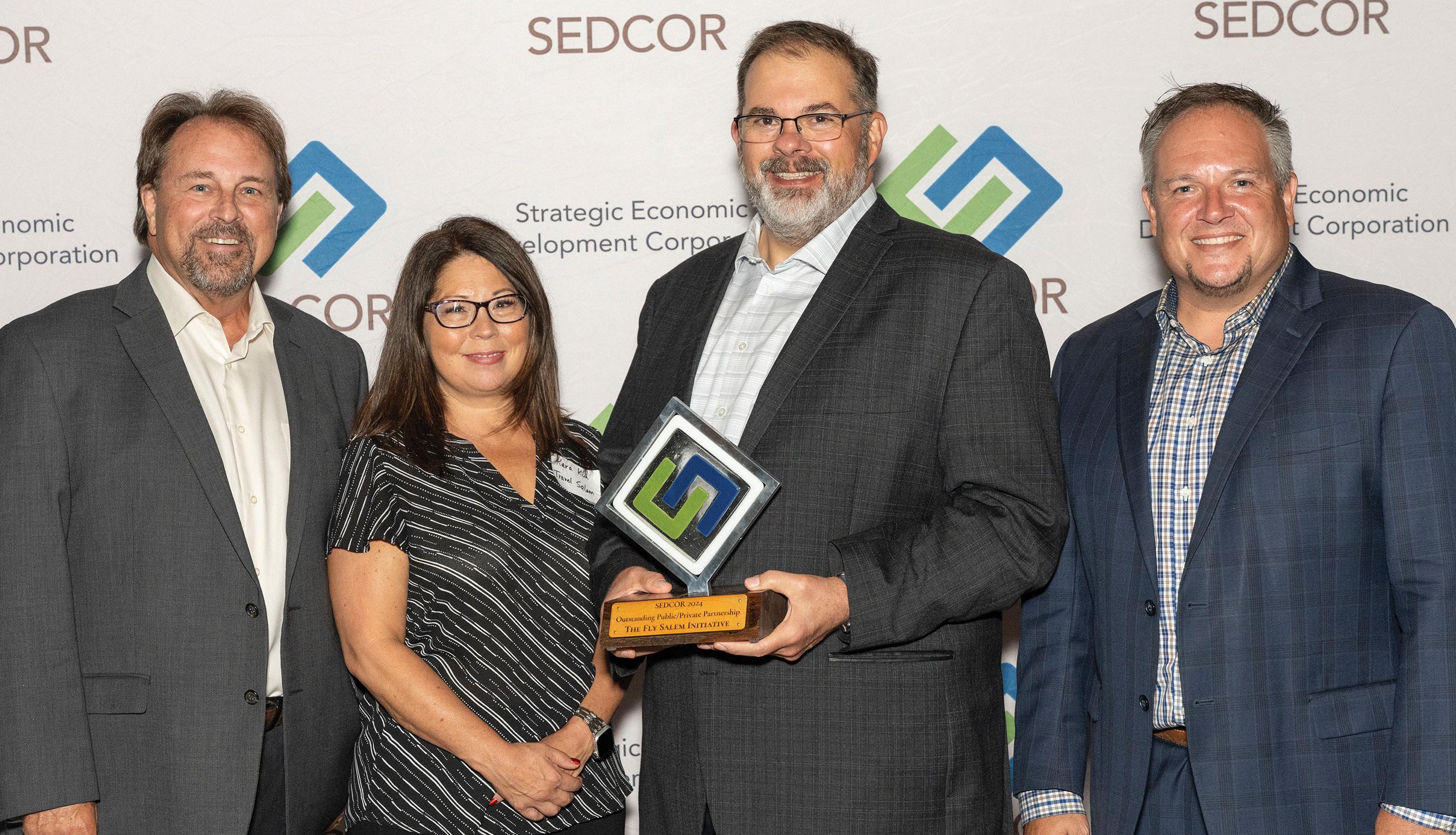
Blue Raeven continues to delight customers while contributing to the regional economy.
The Fly Salem Initiative embodies the power of communitydriven collaboration. Established to bring passenger airline service back to Salem-Willamette Valley Airport, this volunteer-led group has achieved remarkable success. Through partnerships with organizations like the Salem Area Chamber of Commerce, Travel Salem, and local government, the initiative reintroduced flights to major destinations like HollywoodBurbank and Las Vegas.
This achievement has boosted regional accessibility, creating new economic opportunities for residents and businesses. The initiative’s forward momentum, including plans to add more destinations, reflects the determination of its key partners— Brent DeHart, Salem Mayor Chris Hoy, Tom Hoffert, and Angie Villery. Together, they have demonstrated how public-private partnerships can overcome challenges and deliver tangible benefits to the community.
Since its founding in 1971, Ulven Companies has grown from a small operation into a global leader in engineered manufacturing solutions. Headquartered in Hubbard, Oregon, the company specializes in precision-engineered products used in industries ranging from aerospace to heavy machinery. Their

components, found in thousands of satellites orbiting Earth, highlight the company’s technological prowess and global reach.
Ulven’s commitment to innovation is evident in its adoption of state-of-the-art CNC machinery, supported by a partnership with SEDCOR. This investment has allowed the company to explore new market opportunities while maintaining its focus on quality and reliability. With a strong legacy of customer service, technical excellence, and community involvement, Ulven Companies exemplifies the best of Oregon’s manufacturing sector.
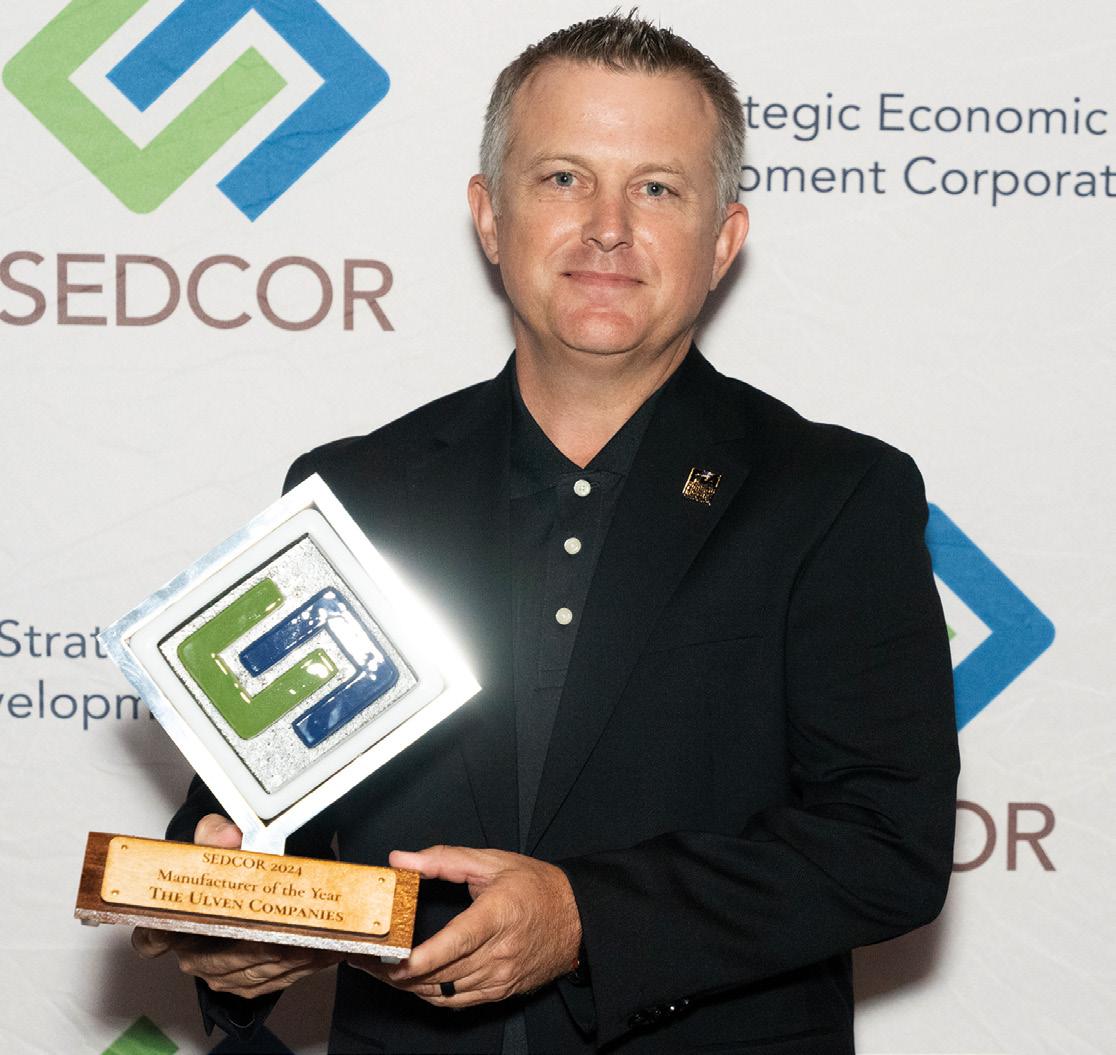
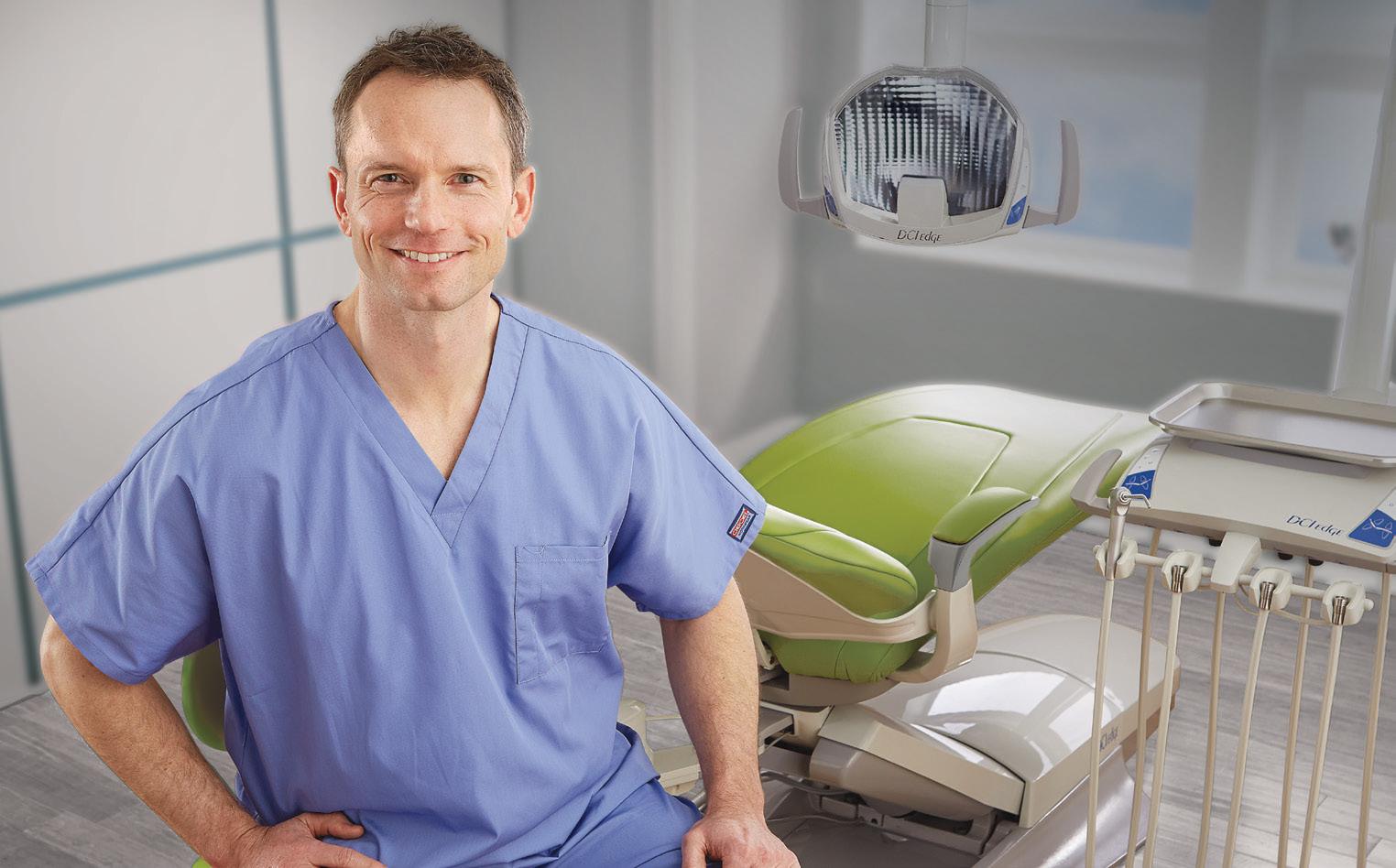
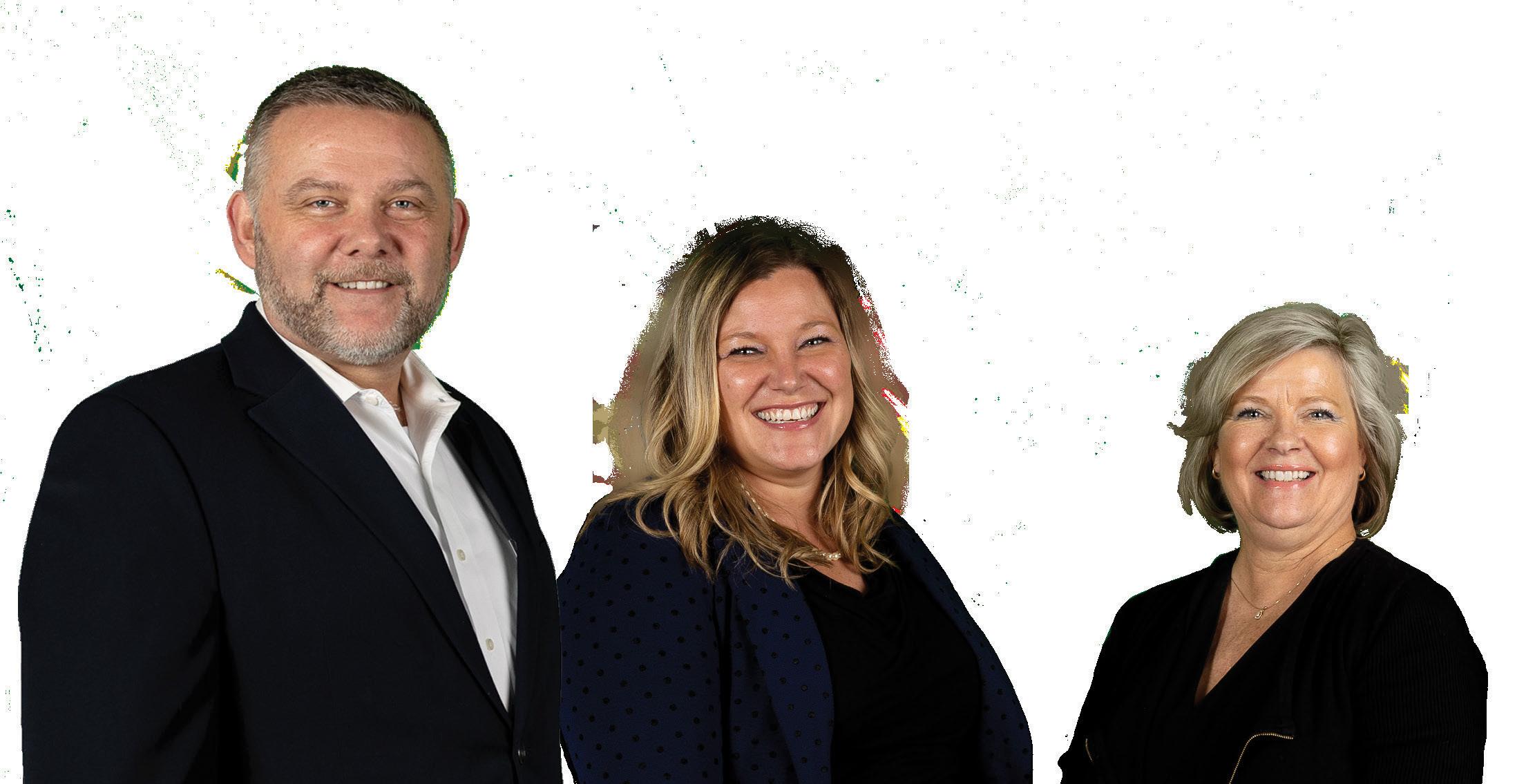

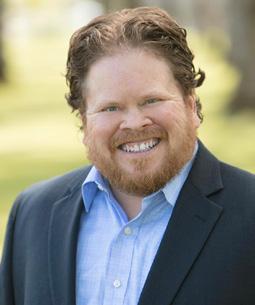

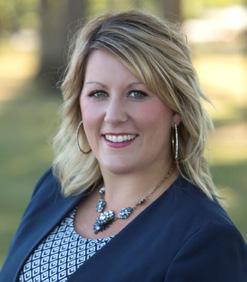


As we wrap up 2024, we connected with our economic development managers to gather their insights on the past year and their expectations for the year ahead.
Abisha Stone
Yamhill County Business Retention & Expansion Manager
Overall, how would you describe 2024?
I would describe 2024 as a year of measured growth. While many of our local businesses were waiting for interest rates to drop before making large investments, they were still investing in small-scale efficiency projects. For some these investments were in automation, while others spent time shoring up their workforce. With Yamhill County still tracking well below the state’s average for unemployment (at 3.6% on average), investments in workforce stabilization and production efficiencies were a solid play for 2024.
What were some of the biggest challenges?
The biggest challenges I saw our industrial partners wrestling with were lack of access to available/ developable industrial lands, the increasing costs of doing business in Oregon and global economic uncertainty.
Most exciting projects from this last year?
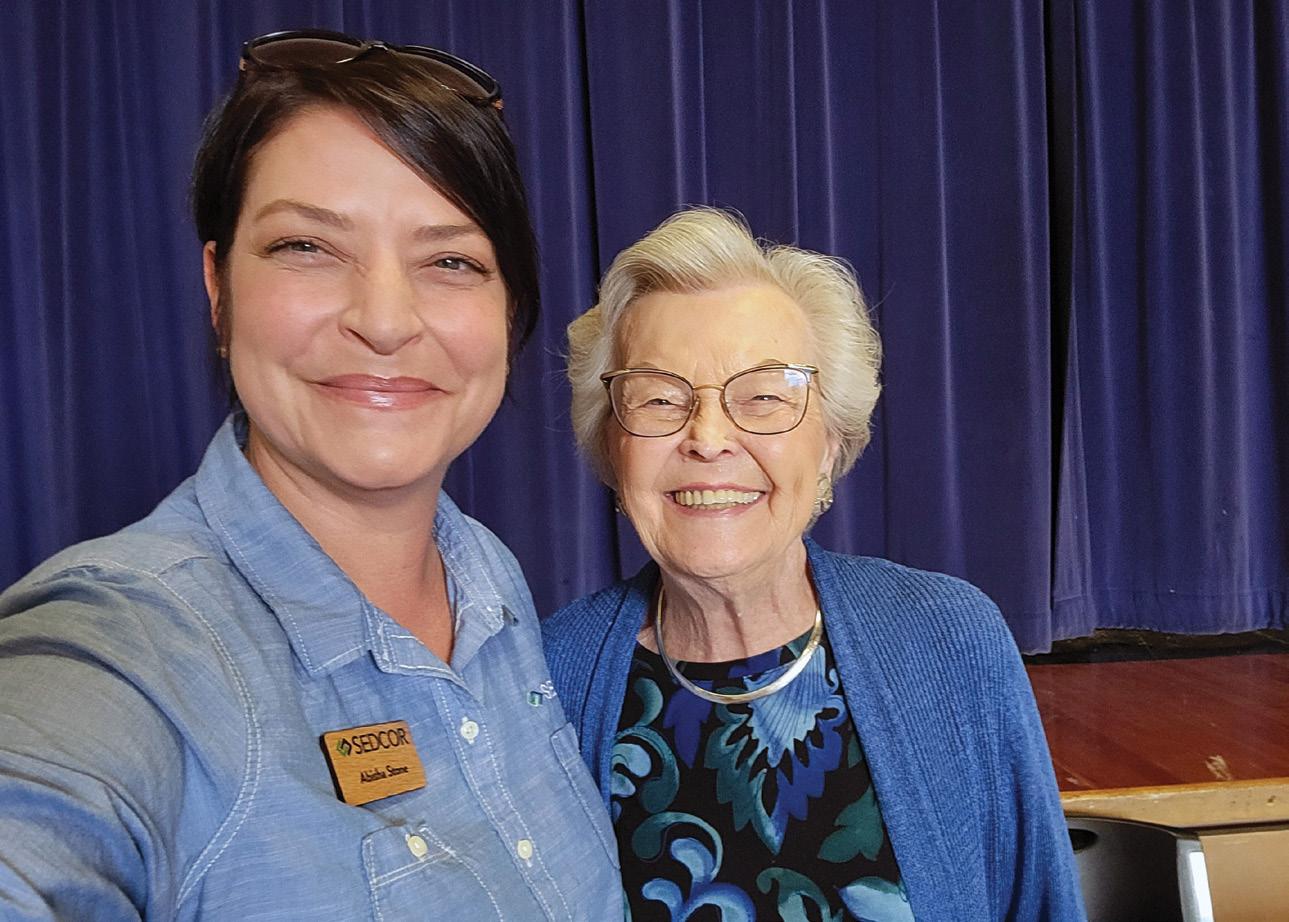

There are many exciting projects to highlight within our region but as I reflect on what I just shared about the hurdles our local businesses face; I would have to say my favorite project for 2024 is the work SEDCOR is doing for industrial lands readiness in the City of Sheridan. We don’t have the ability to change the global economic outlook and, though we do work diligently with local elected officials to improve the state’s business climate, that is a long game. Where we can have a more immediate impact is in identifying opportunities to ready industrial lands within our region and partner with those landowners and communities to develop a state of “readiness”. It’s a reminder to our businesses that we hear their concerns and are doing all we can to lower the barriers to doing business in our region.
What do you expect for 2025?
We have already seen significant policy change at the
Federal level under the new administration. We expect more. Though many are speculating, no one is certain how these new policies will impact them. Until there is more certainty, I foresee continued measured growth for businesses, and more time preparing a “business-friendly region” for the staff at SEDCOR.
Continued on page 23

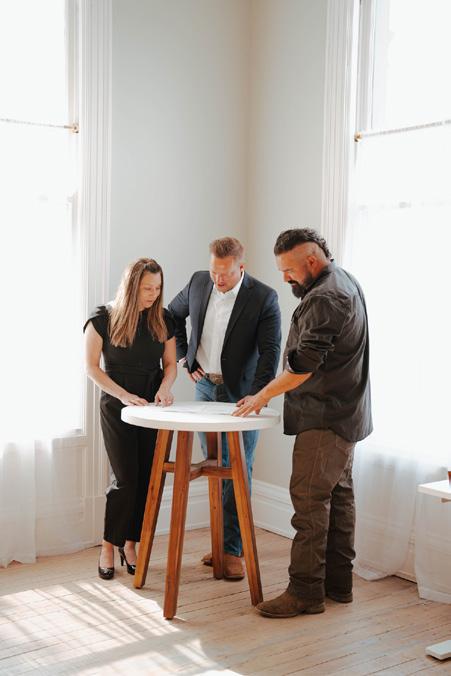




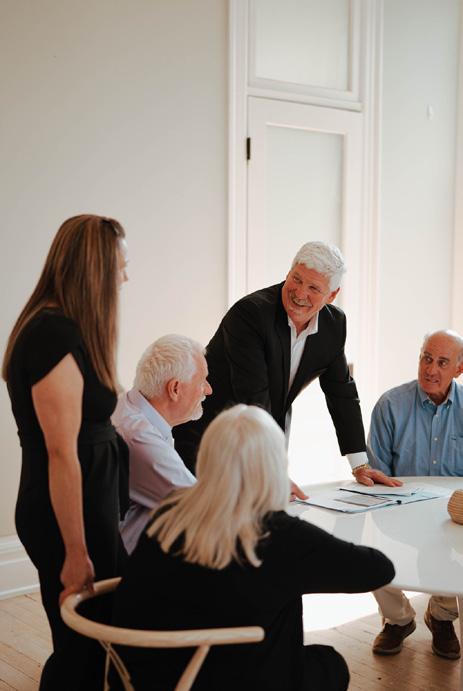
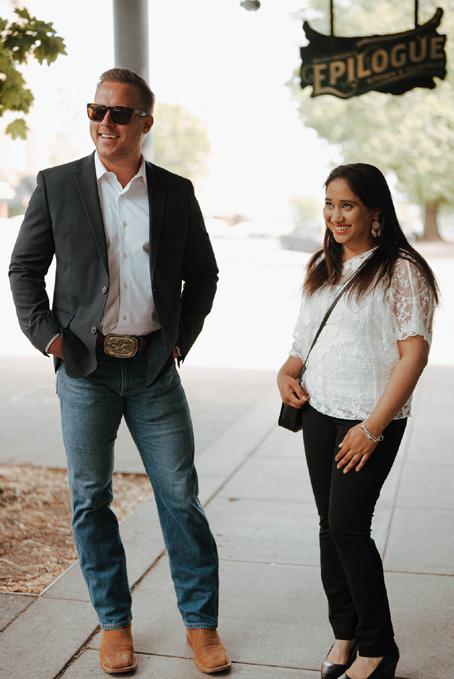

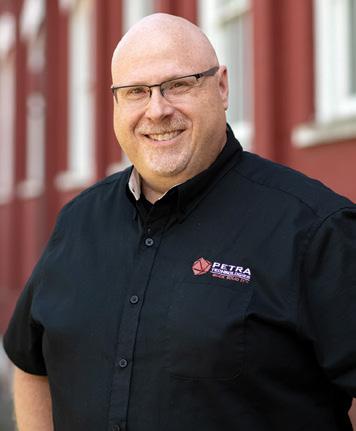
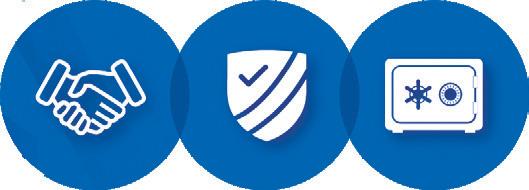


Alex Paraskevas
Polk County Business Retention & Expansion Manager
Overall, how would you describe 2024?
2024 was another great year for SEDCOR, with lots of exciting projects and partnerships. As always, we talked a lot about the same challenges as before: difficulty in finding labor, uncertainty in markets, and trying to connect dots within the supply chain. We also kicked off our Regional Innovation Hub programming and continued to work on the expansion of SBA-funded Regional Innovation Cluster activities, including seven field trials with startups the AgLaunch Farmer Network LLC portfolio.
What were some of the biggest challenges?
I think uncertainty is always the biggest challenge, and how to mitigate risk when there are so many unknowns. For a lot of businesses, market volatility continues to be a big factor. More than anything, uncertainty around regulatory environment remains top of mind for many folks especially in agriculture. The continuing theme post-pandemic has been the difficulty in finding labor and this year was no different.
Most exciting projects from this last year?
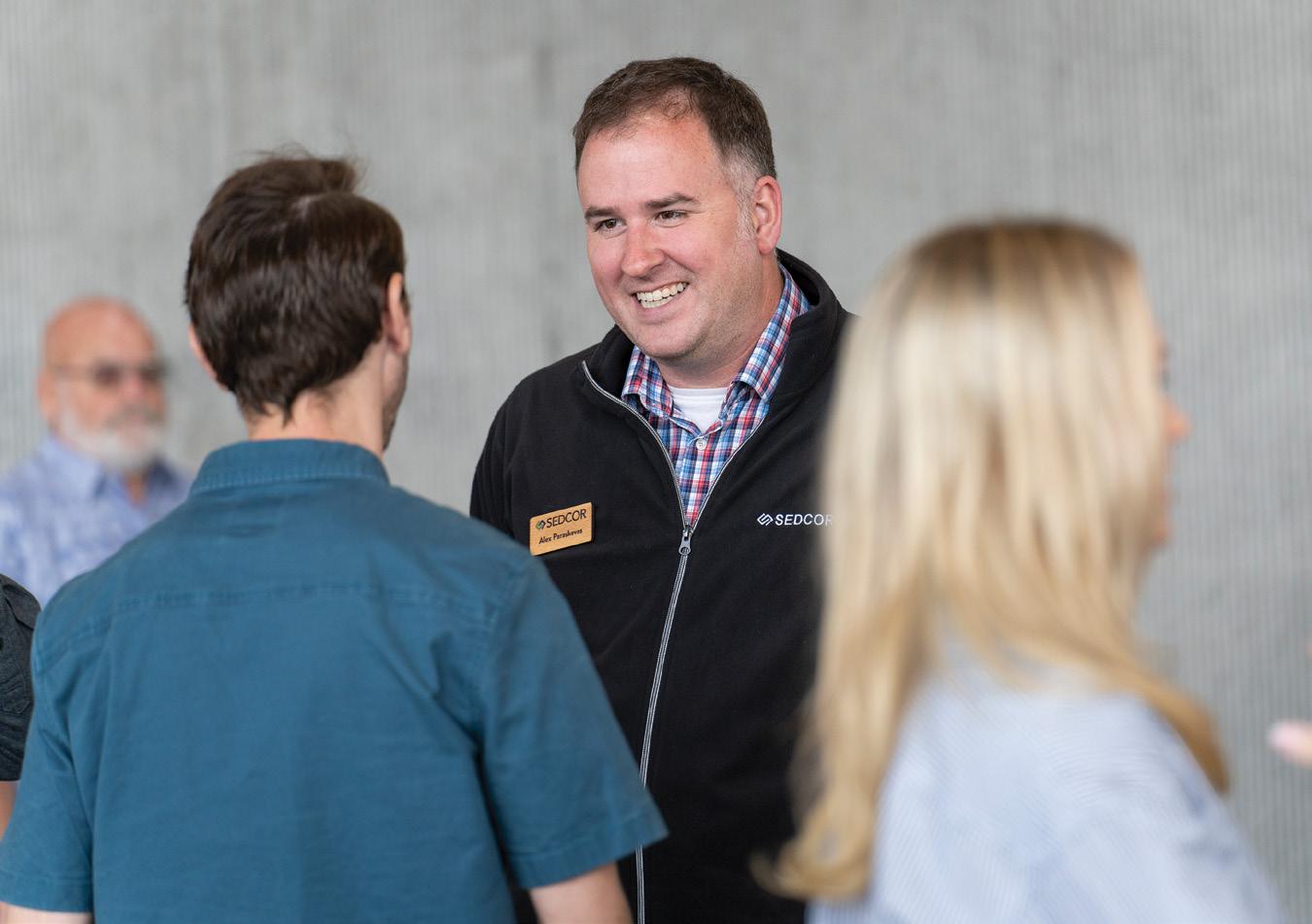
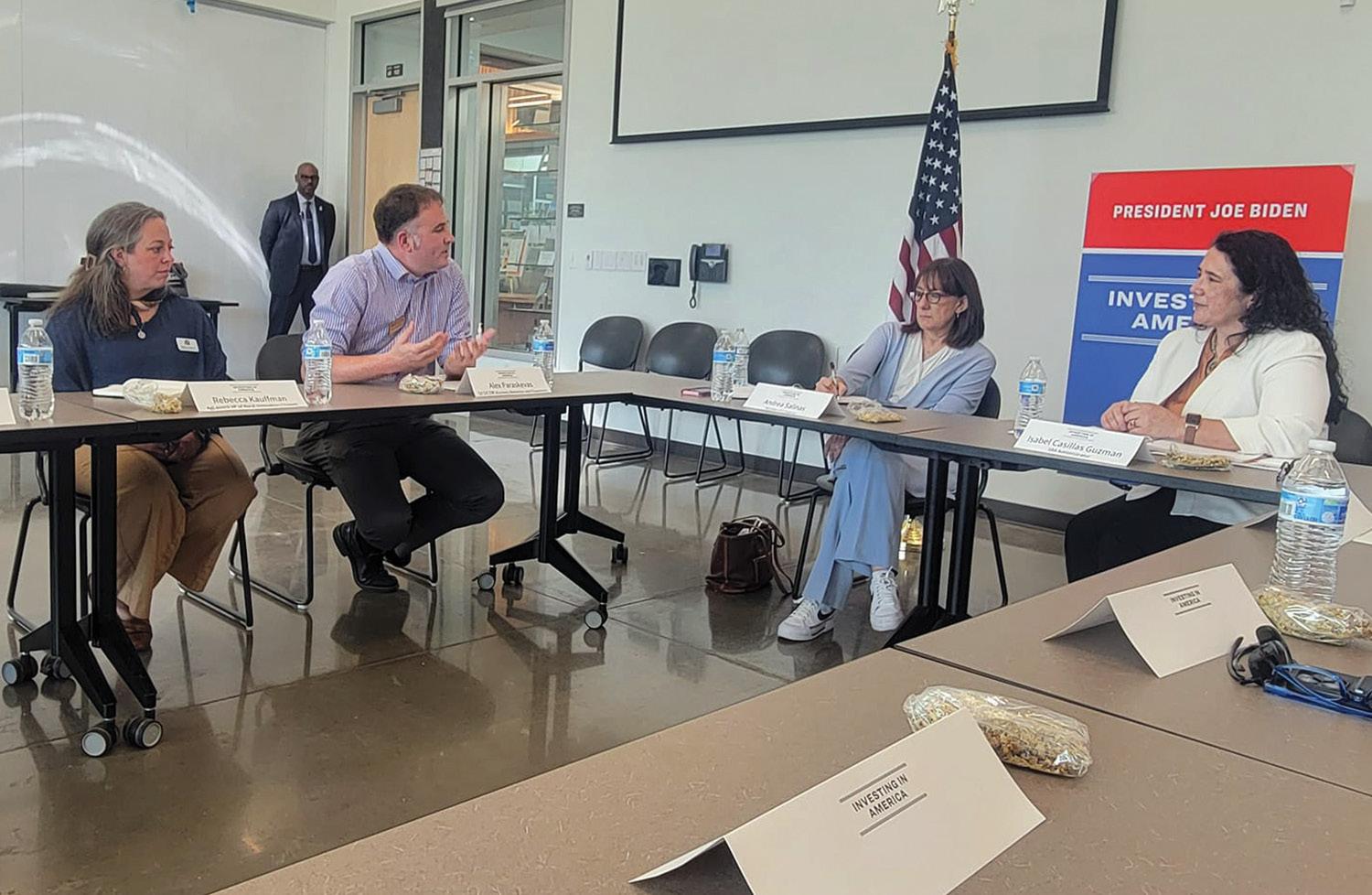
Of course I am biased, but really proud of the team at Canopii for getting their first full-scale prototype up and running. Similarly, the team at Chapul Farms continues to expand and their property acquisition this year put them on an amazing trajectory for next year as they build their first commercial-scale production facility for insect agriculture.
What do you expect for 2025?
I am hoping that 2025 brings some more clarity of how the state will support the farm-to-table supply chain that is so important in our region. The Food & Beverage committee identified challenges and opportunities to supporting the industry and I hope that we can develop tools that work. I am hoping in 2025 to further tie our Ag Innovation Hub work into more of Oregon State University’s work to promote further commercialization of research and to building programming that further supports startups in the agtech sector.
Morris
Marion County Business Retention and Expansion Manager
Overall, how would you describe 2024?
I would describe 2024 as the year of teamwork and collaboration. I enjoy the frequency with which I find myself working with our service providers and businesses and really enjoy the combined approach to economic development in our region. SEDCOR works with Business Oregon, Willamette Workforce Partnership, OED, and the team at Marion County (just to name a few) on a regular basis and that network of support helps us to be more effective and better version of SEDCOR.
What were some of the biggest challenges?
Career pathways to skilled trades careers continues to be a challenge. Supporting organizational workforce and development requires educational programming that provides clear pathways to engage with and enter the workforce. Warehouse and Logistics, Sewists, and Glaziers
Continued on page 25
are just a few of the non-traditional careers needing the support of new or reconstituted career pathways. As an Economic Development Organization, one of our biggest challenges is working through the duplicative efforts that can sometimes cloud the water a bit and make it hard to facilitate effective collaboration. Supporting a clearer vision for aligning economic development resources would be encouraging a rising tide that lifts all business across the cities, counties, and the state.
Most exciting projects from this last year?
NW Hazelnut Growers and Hazelnut Growers of Oregon.
I would like to highlight that the community of economic development is strong in Marion County and well supported by the State. Through the connection provided by Marion County Commissioner Danielle Bethell, SEDCOR was introduced and connected with to the situation that NW Hazelnut Growers (NWHG) was faced with by trying to carry forward the processing facility and operations at Hazelnut Growers of Oregon (HGO) during a critical time just weeks prior to harvest. There was a combined effort to transition ownership of that facility using strategic reserve funding in addition to enterprise zone tax exemptions to help carry forward the transition of that business. More importantly, both local farmers and the Oregon Hazelnut industry were able to carry forward with one of the top exported crops in our state.
Don Pancho
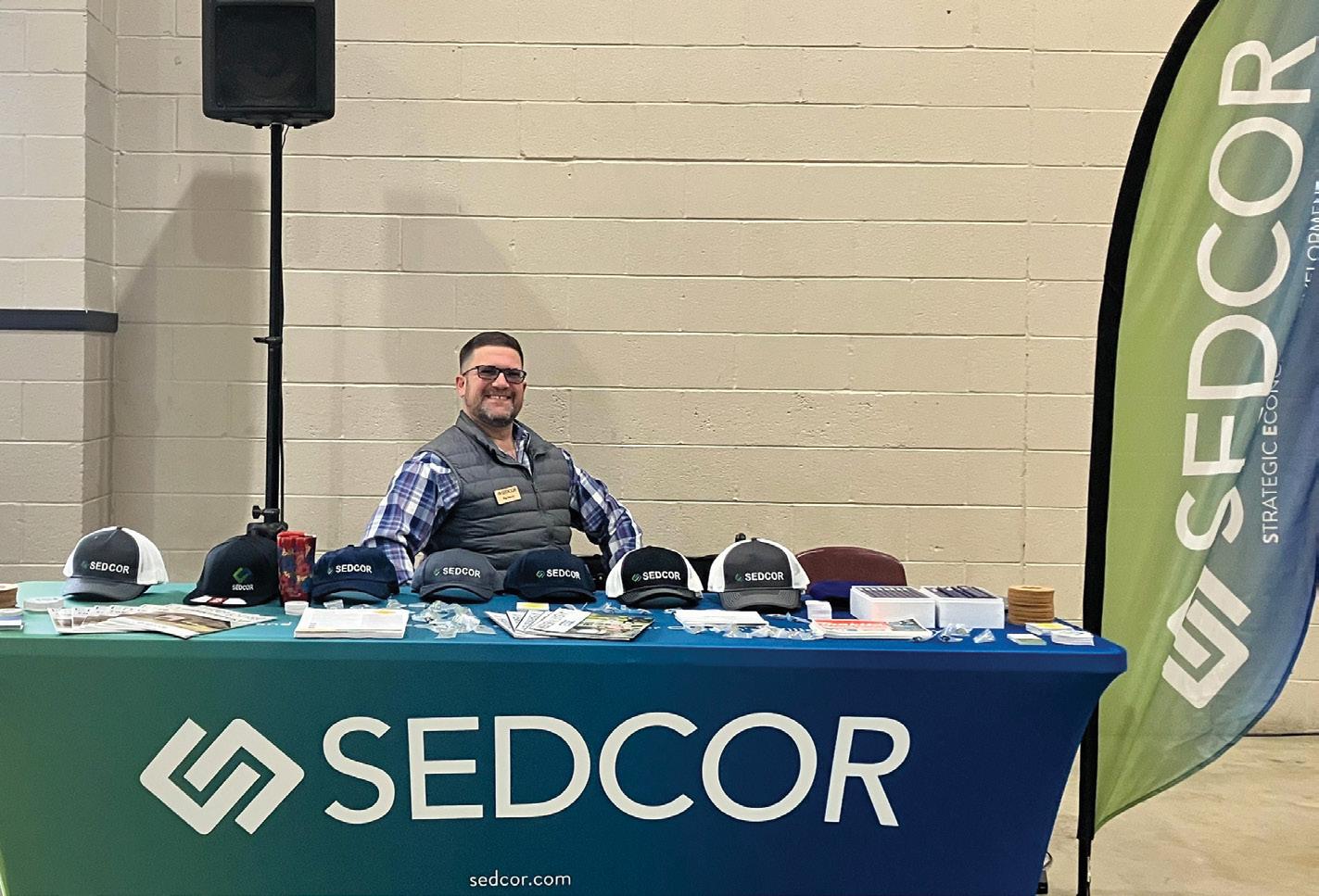
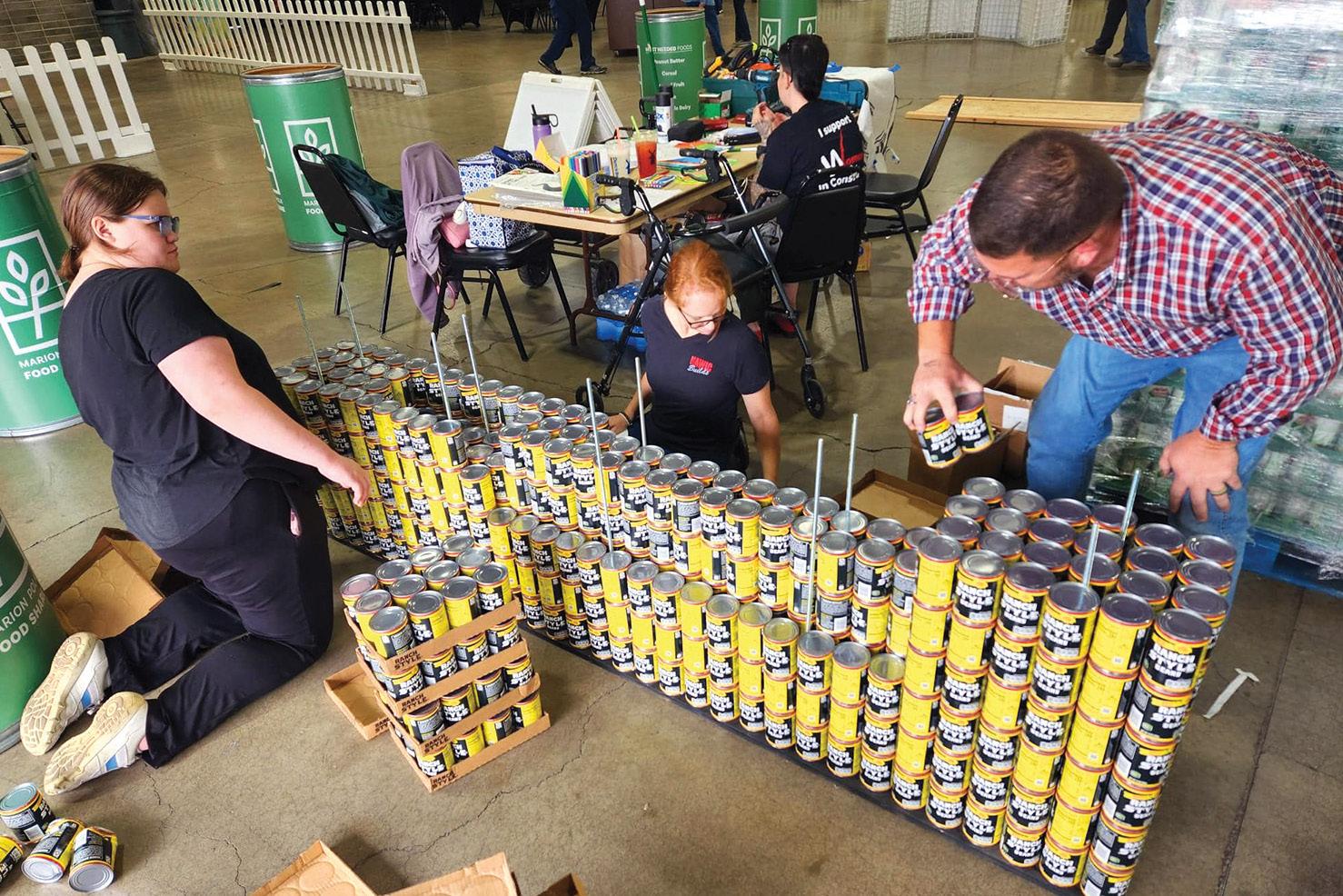
Don Pancho has grown from a three-person operation in a garage to a business that is moving into a 300,000 Sq/Ft facility that was formerly used as a large co-packing facility. With the loss of a large company (NORPAC), both facility and employees are in need of transition. I would argue that it is easier to help employees transition vs. repurposing a facility for new use. SEDCOR has helped Don Pancho grow, and with that growth there have been opportunities to back fill previously used facilities to promote growth. Don Pancho moving from their current 150,000 Sq/Ft facility provided an opportunity for the Marion Polk Food Share to expand and occupy a new space. SEDCOR is constantly connecting the dots and utilizing our network to help support growth and success in Marion County.
Expansion of our current traded sector businesses will carry forward growth and development locally. Working on support services and programs for business growth will continue to be a priority for SEDCOR with a focus economic development, infrastructure development, and community development. SEDCOR will continue to serve as a comprehensive resource, actively collaborating with the state, county, cities, and private partners to address county-wide challenges and enhance prosperity. Key focus areas will be strengthening the workforce, supporting infrastructure development, creating and boosting investment, while maintaining adaptability to economic changes.
• What is the
• Is my business ATTRACTIVE?
• Is my business READY? Charter
Client Testimonials:
“It was easy to trust Steve to always be on my side throughout the process. Steve enjoys his work and I’m sure anyone working with him will have a positive experience.” – Barry Bray, President, Barry Bray Construction Company
“Steve’s ethical, hands-on style made it easy to trust him and to appreciate his commitment to our company’s success.” – Kent Kaufman, President, Kaufman Companies
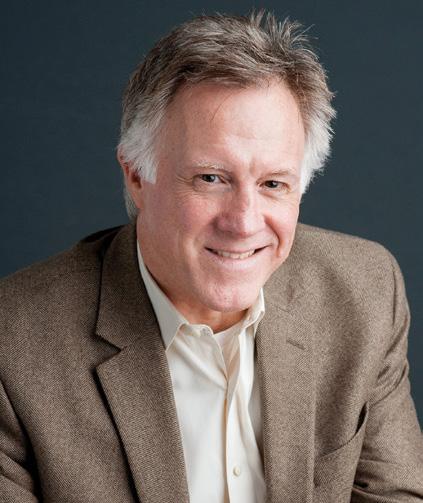

leads the way
• Implementing Workforce Development
• Filling the need for drivers
• Providing essential training
Learn more about Chemeketa’s truck driving program: go.chemeketa.edu/truckdriving
go.chemeketa.edu/truckdriving | EO/AA/ADA/Title IX institution – chemeketa.edu/about/legal









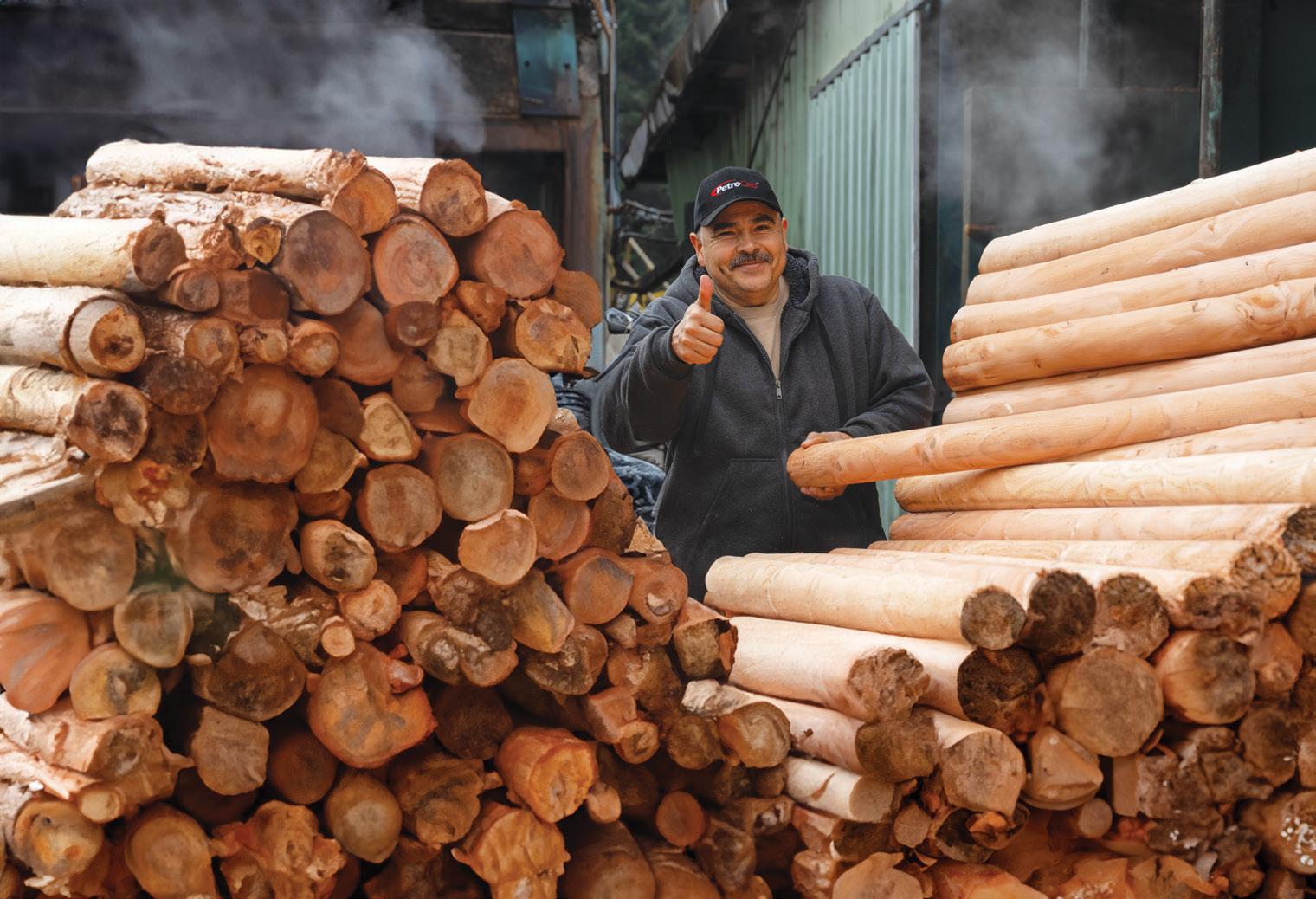
What obstacles do you think 2025 holds for businesses in the Mid-Valley?
There is great uncertainty right now—and businesses don’t like uncertainty. The Willamette Valley, like Oregon, is exportdependent—our products are sent all over the world. Right now, there are questions about tariff policies with short- and long-term implications for both our markets and our supply chains.
Of course, our agricultural community faces various uncertainties regularly, and Willamette Valley farms and businesses are known for their resilience.
Also, it seems we’re still hearing quite often that businesses are holding off on investments until interest rates come down. That issue reverberates through supply chains that impact our businesses, especially in wood products and construction.
How does SEDCOR plan to address challenges such as workforce shortages or infrastructure needs in 2025?
For the last few years, we have been promoting the need for resources to help businesses become more productive and efficient without needing additional workers. We often hear from businesses that they need help automating processes, purchasing more productive equipment, and upskilling their workforce. However, most of the incentives available are dependent upon job creation. We’d love to see more tools to help businesses invest in new equipment and, in turn, train their existing workers on that new equipment and new processes. The Oregon Business Council sponsored a food and beverage industry initiative that resulted in a proposal currently going through the legislative process to help make Oregon food and beverage companies more productive and successful.
Are there any new programs or partnerships SEDCOR plans to launch next year?
The biggest news is that we are launching a 501(c)(3) organization, the Strategic Economic Development Foundation, to allow us to diversify our funding streams
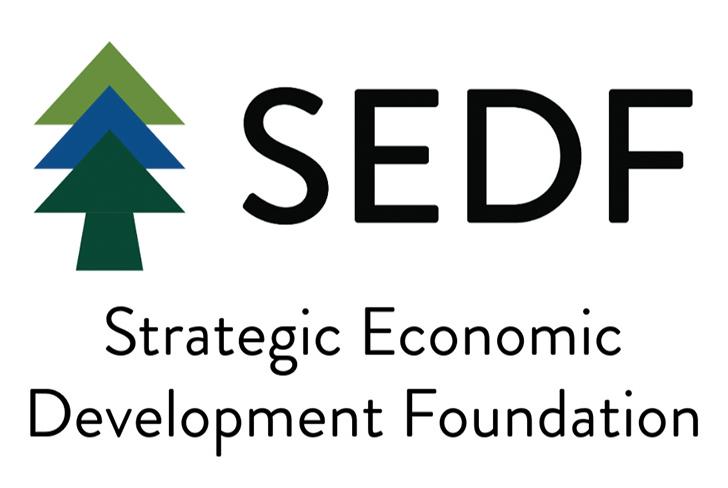
for key initiatives like entrepreneurial development and AgTech programming. As a 501(c)(6) organization, SEDCOR is often ineligible to directly apply for funding from private foundations and other charitable organizations. We’ve been fortunate to have support from the Ford Family Foundation, the Murdock Trust and the Oregon Community Foundation in the past. Having our own 501(c)(3) will allow us to apply directly for future funding from these organizations.
How will SEDCOR continue to support small businesses and entrepreneurs in 2025?
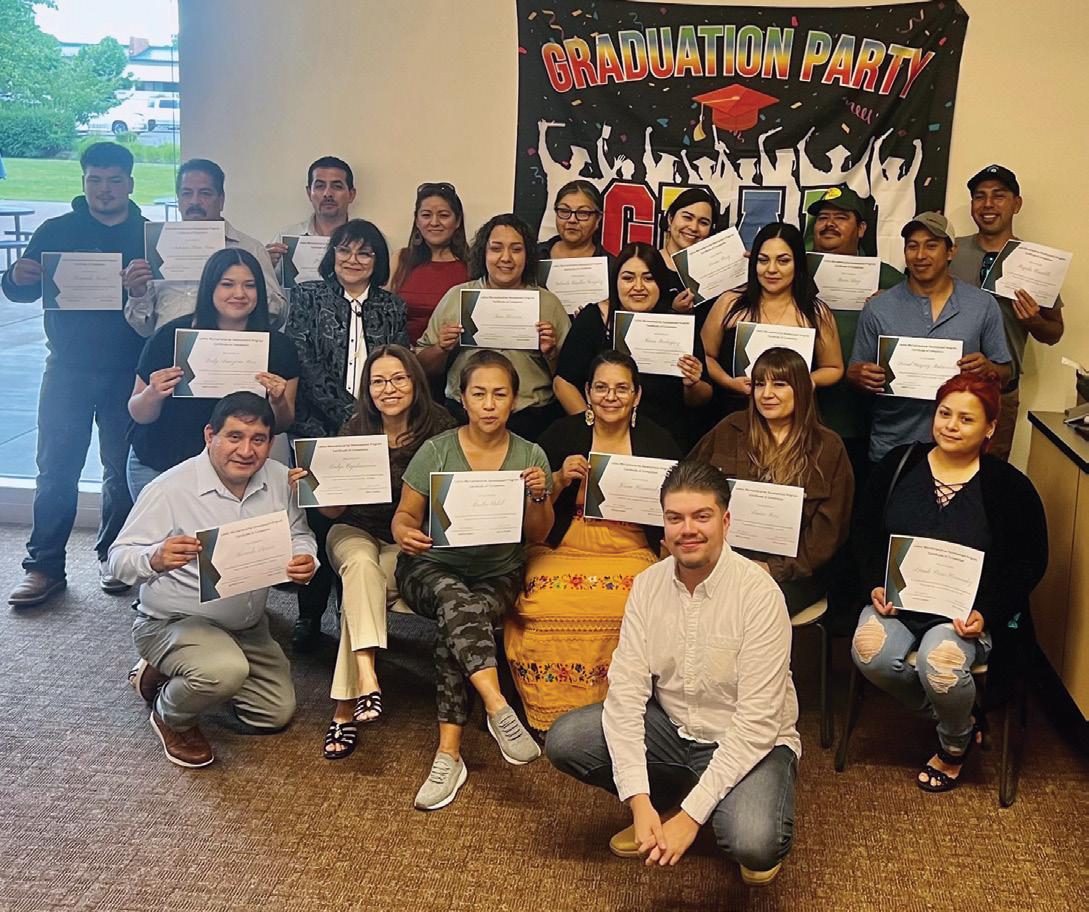
We are continuing to support both the Latino Microenterprise Development Program and the Launch MidValley Regional Innovation Hub initiative with funding from Business Oregon. Current funding allows those programs to continue through June of this year. We’ll have to see how the Business Oregon budget looks after the session to determine the next steps for that programming. We also look forward to continuing our partnership with the Oregon Entrepreneurs Network to offer a variety of events targeting entrepreneurs and investors, including our third Oregon Angel Food marketplace for food and beverage businesses seeking new markets and customers.
Continued on page 29
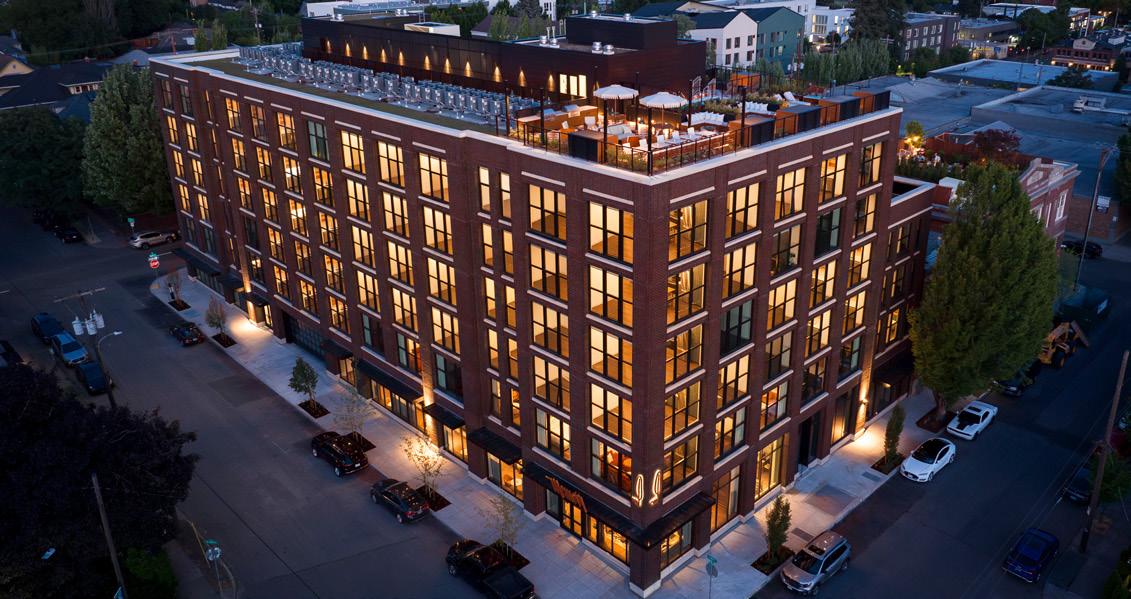
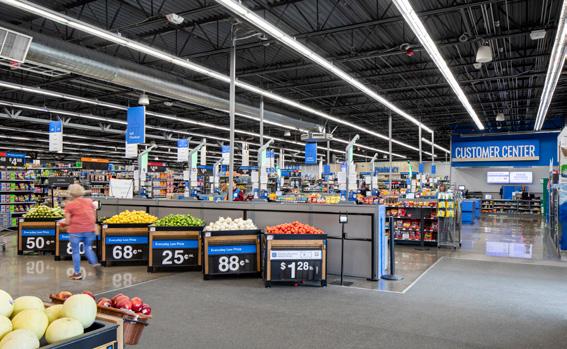
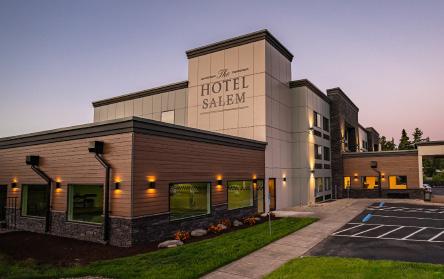

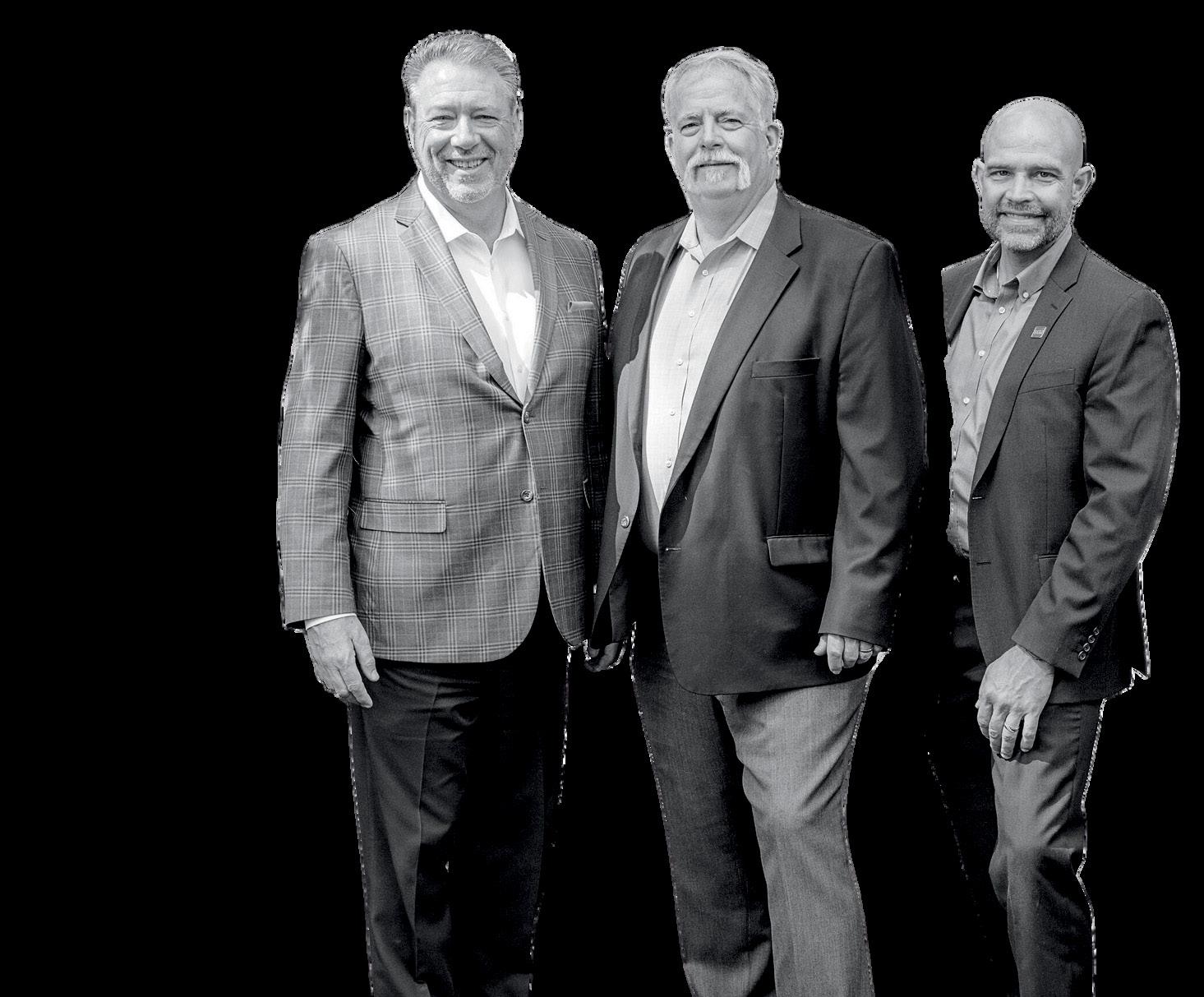
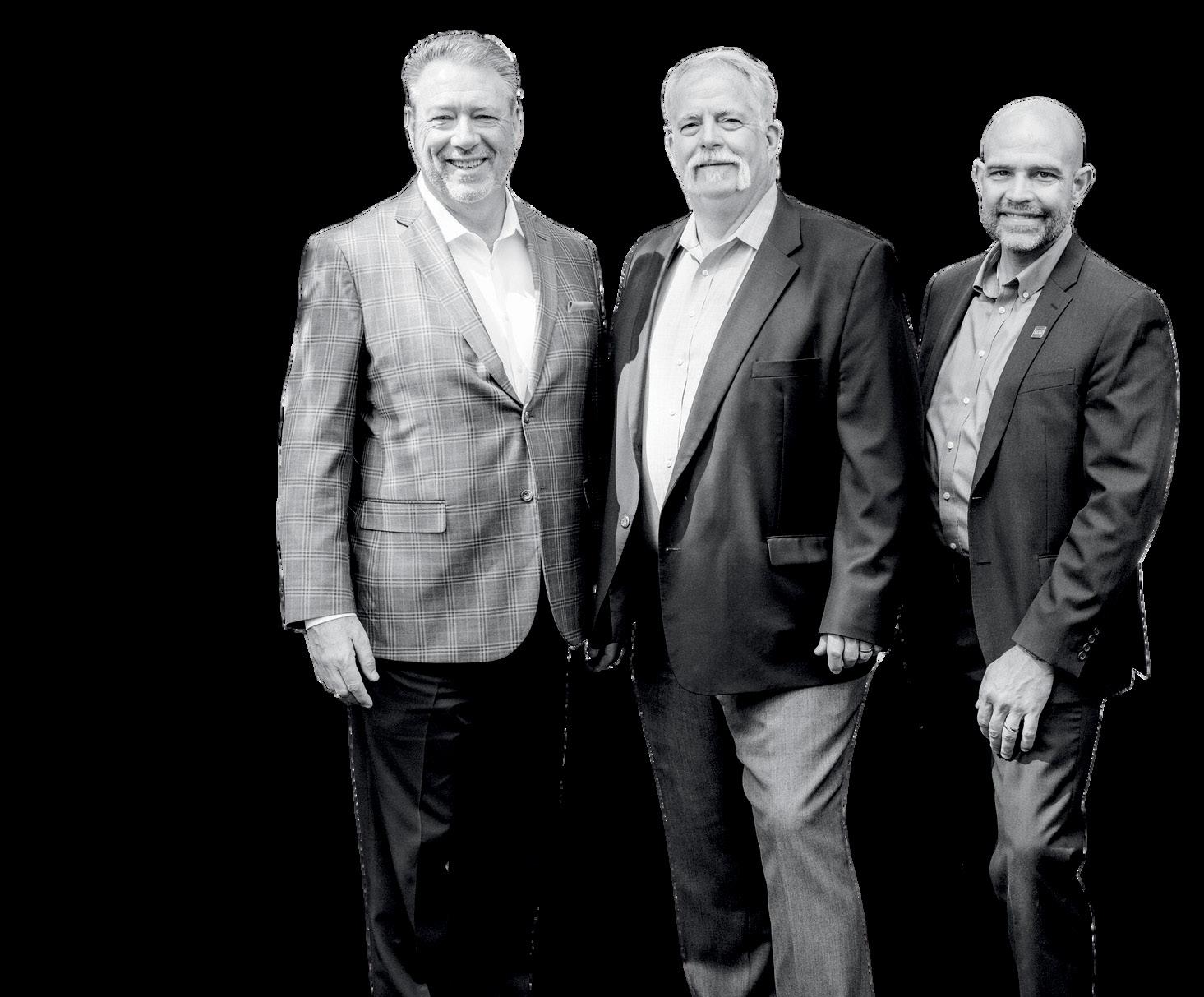
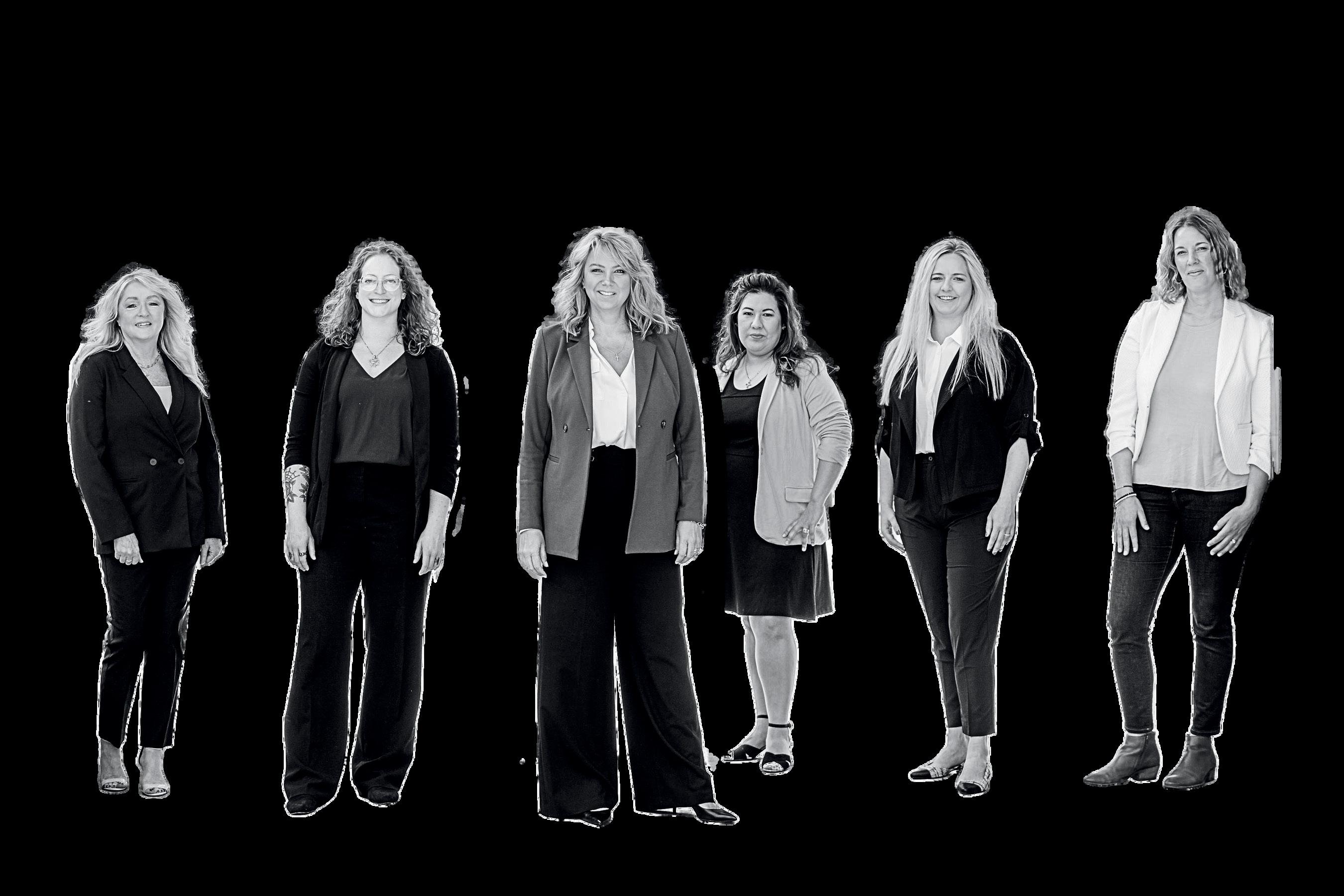
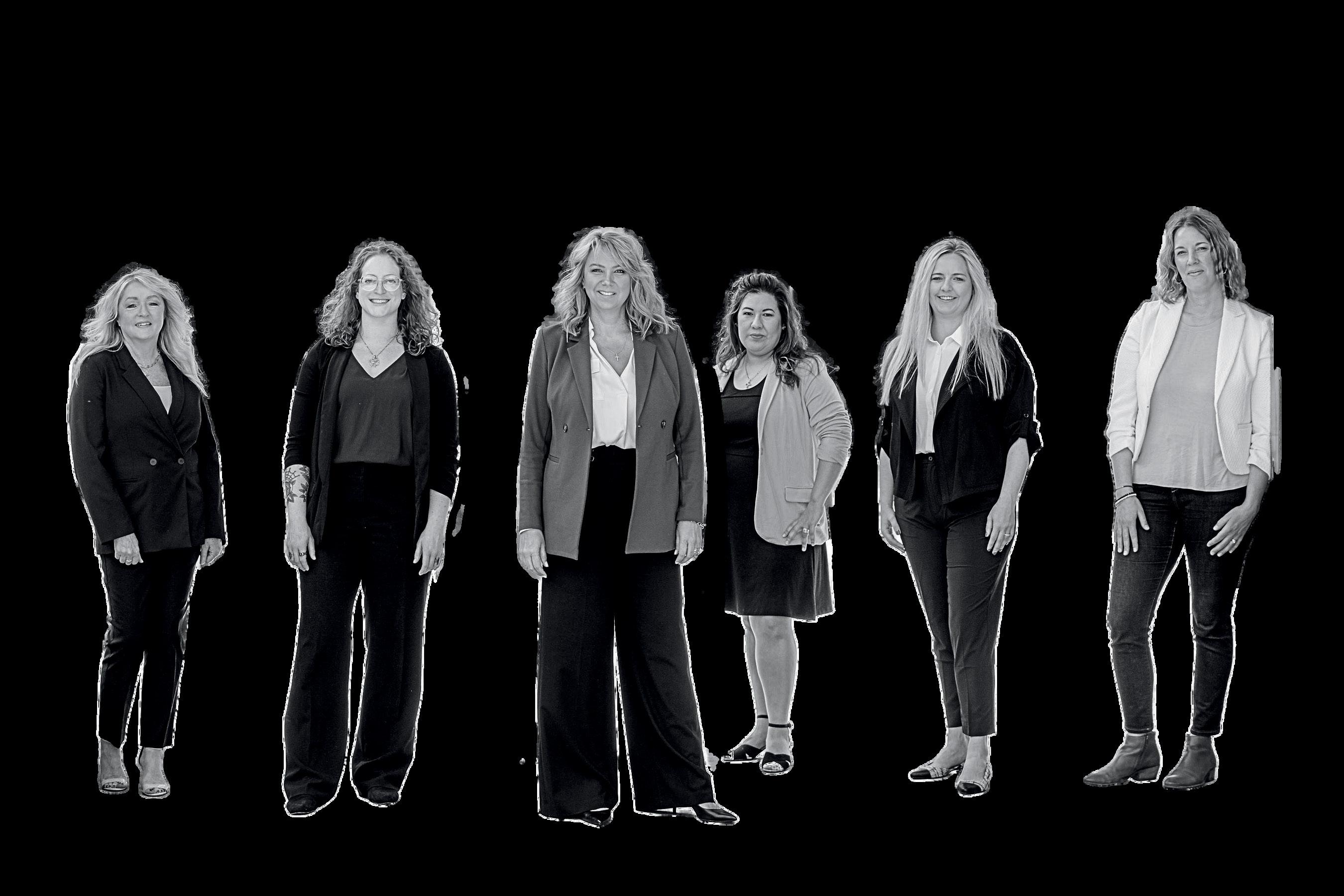
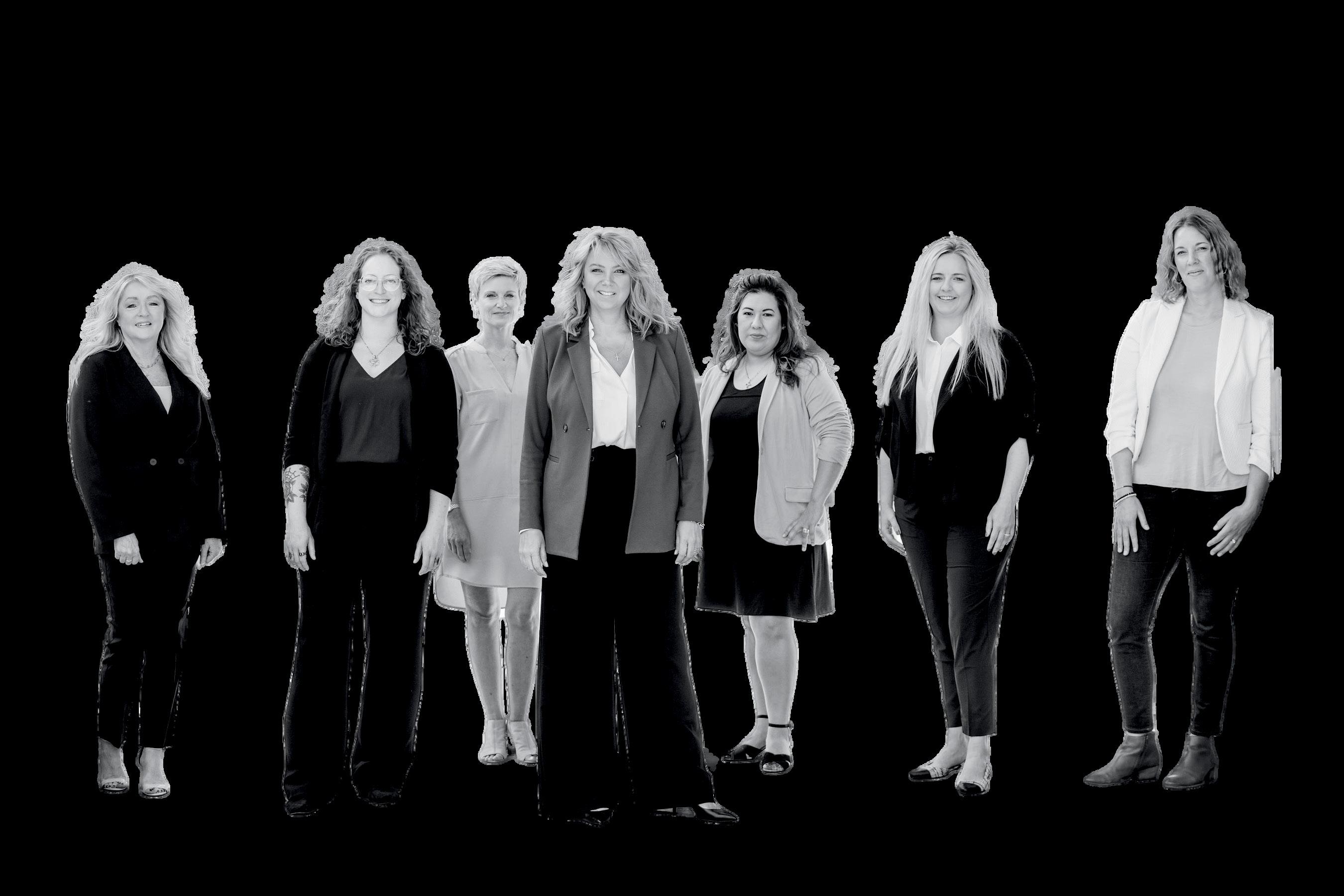


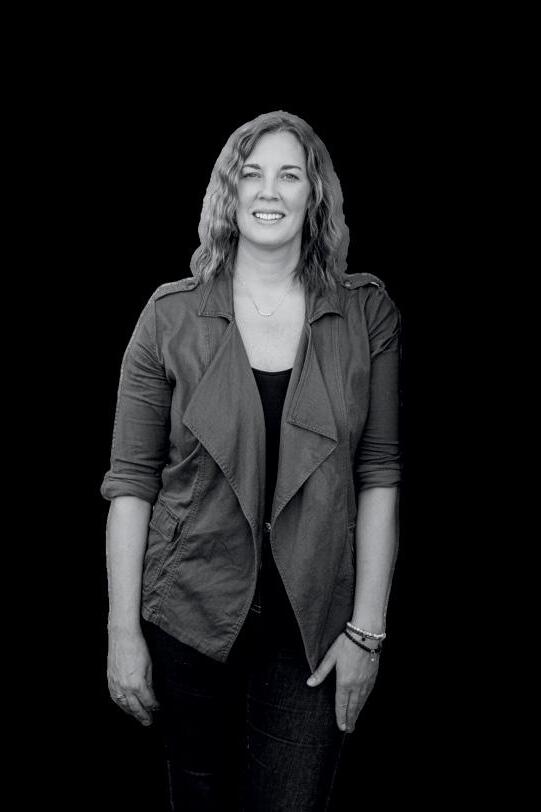

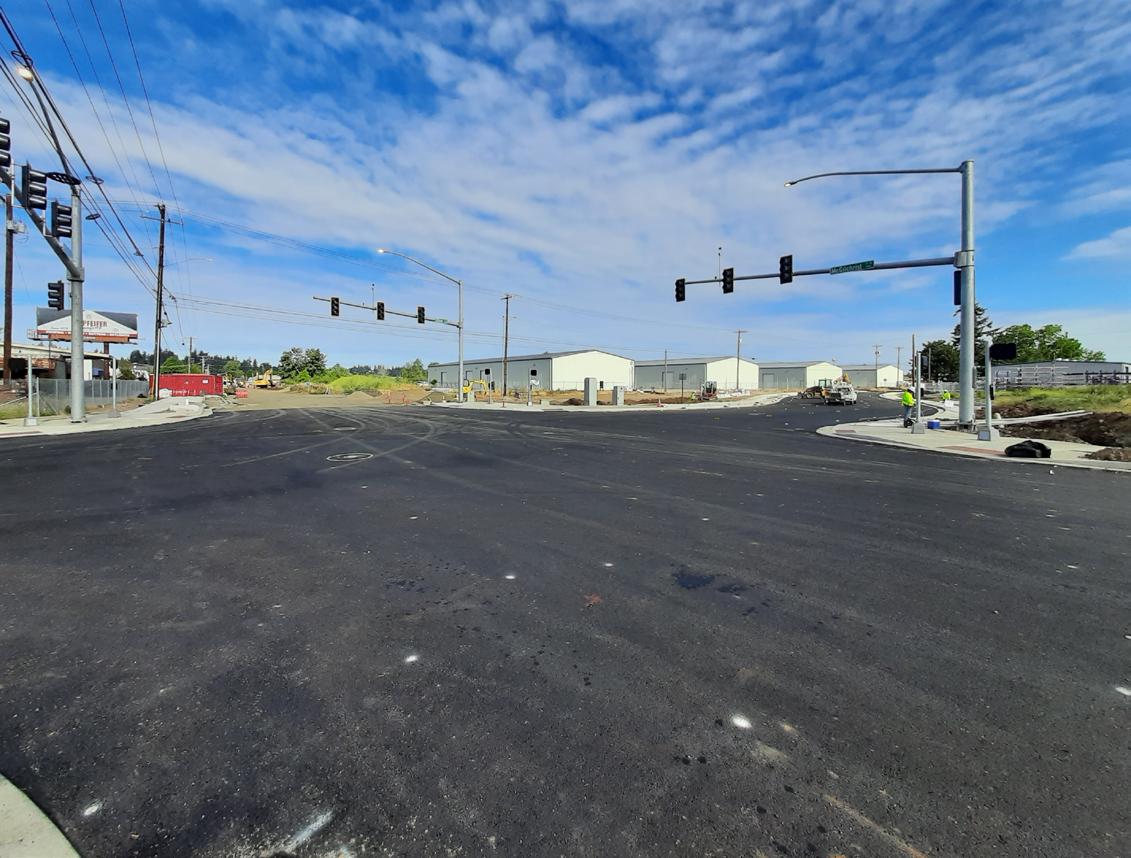

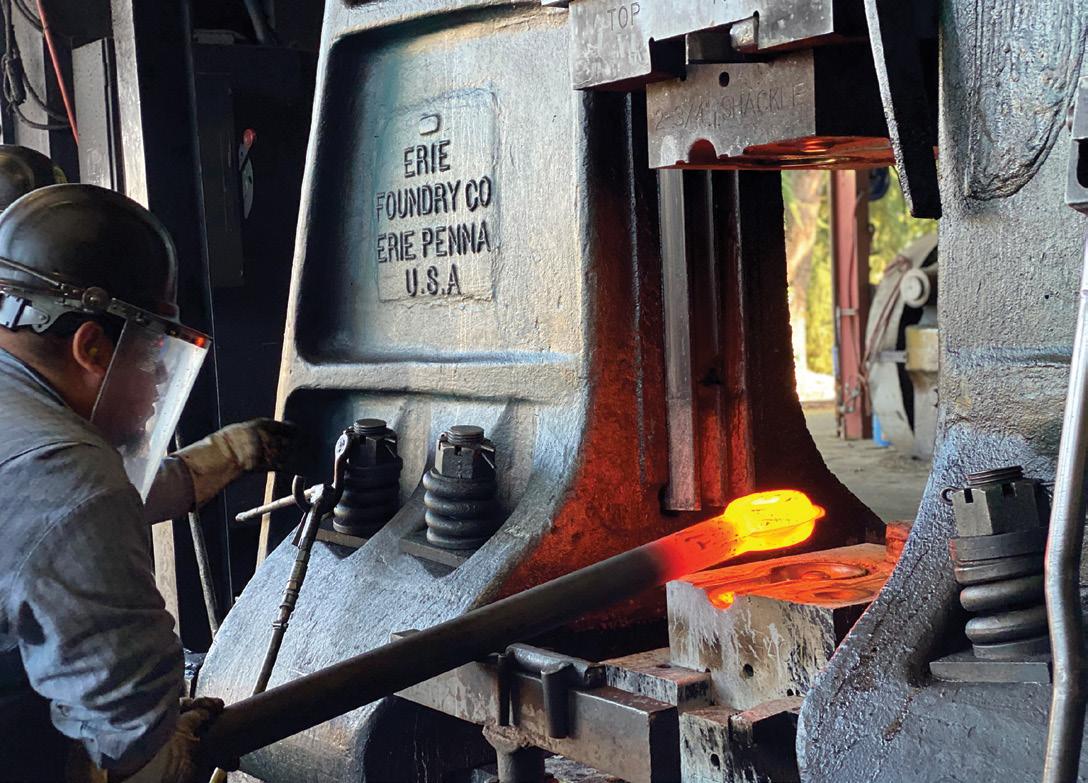
What is your long-term vision for the Mid-Willamette Valley, and how does 2025 fit into that trajectory?
My personal economic development vision for the Mid-Valley comes down to a simple statement—we grow a lot of things in the Willamette Valley, and we make cool things with what we grow. Of course, we have other exciting industries— technology, aviation, and many others—but agriculture, food, and beverage are at the heart of our economy and connect to
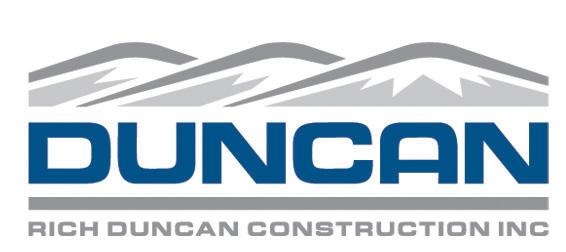

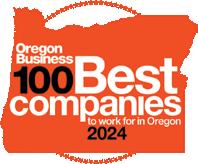


many other industries. The quality of what we grow extends to the quality of what we manufacture, whether it’s wine, soy sauce, drones, or robots.
I want to keep reminding everyone that innovation is happening in all industries. I am inspired every time I see another project from Freres Engineered Wood. We need to continue promoting the Willamette Valley as a region where traditional industries and new technologies can thrive.

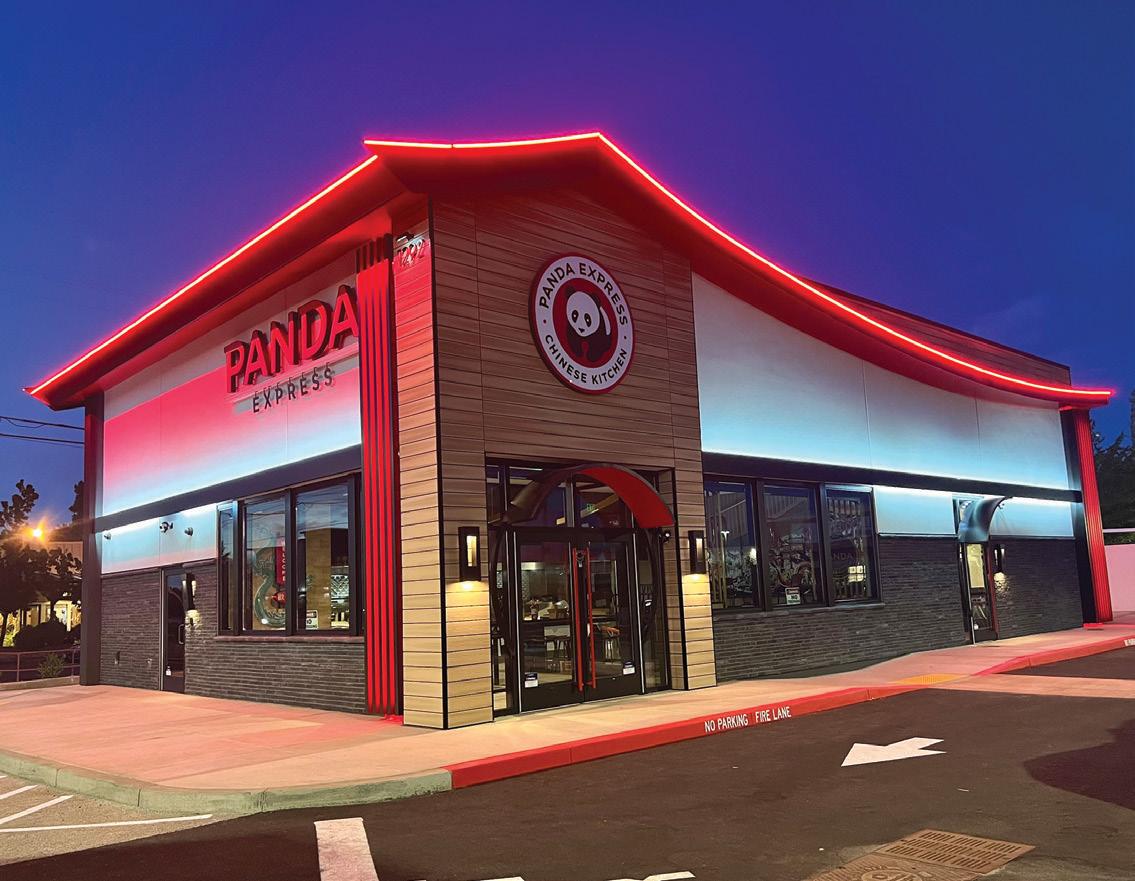





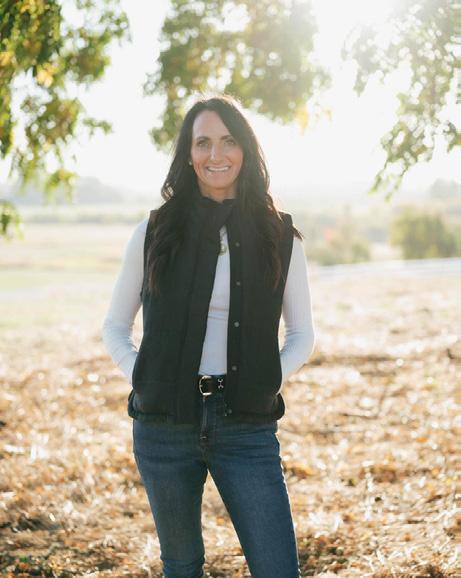

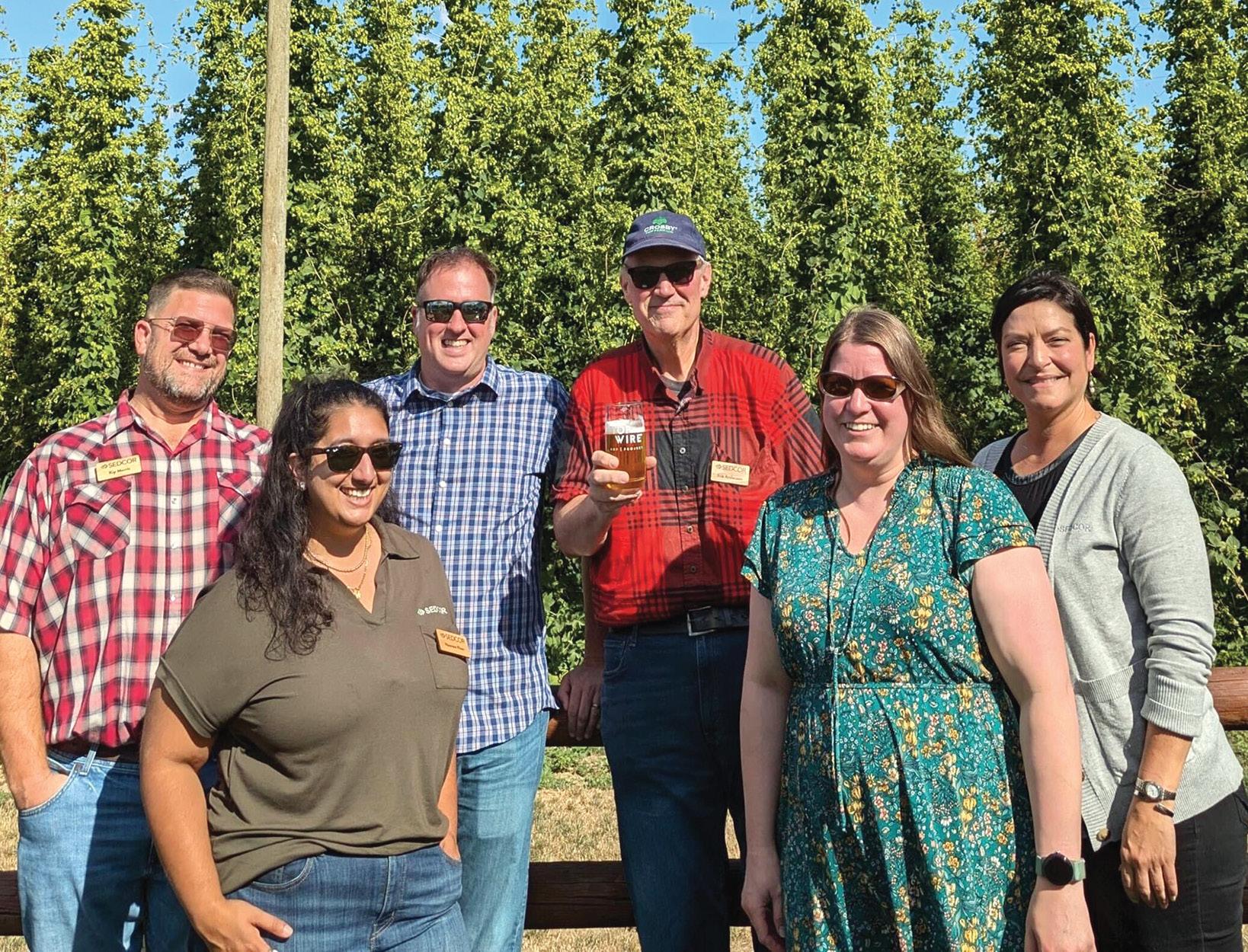
The SEDCOR team wants to take a moment to reflect on the progress we’ve made together and express our gratitude to the businesses, partners, and communities that make our work possible.
In 2024, we’ve seen businesses expand, investments take root, and industries evolve across the Mid-Willamette Valley. From supporting innovation in agriculture and manufacturing to fostering entrepreneurship and workforce development, we’ve worked alongside you to strengthen our region’s economy.
We are especially thankful for the collaboration and dedication of our members, local leaders, and partners who help drive economic success in our communities. Your commitment to growth, resilience, and innovation continues to shape the future of our region.
As we look ahead to 2025, we’re excited to build on this momentum, tackle new challenges, and create even more opportunities for businesses and industries across the Mid-Valley.

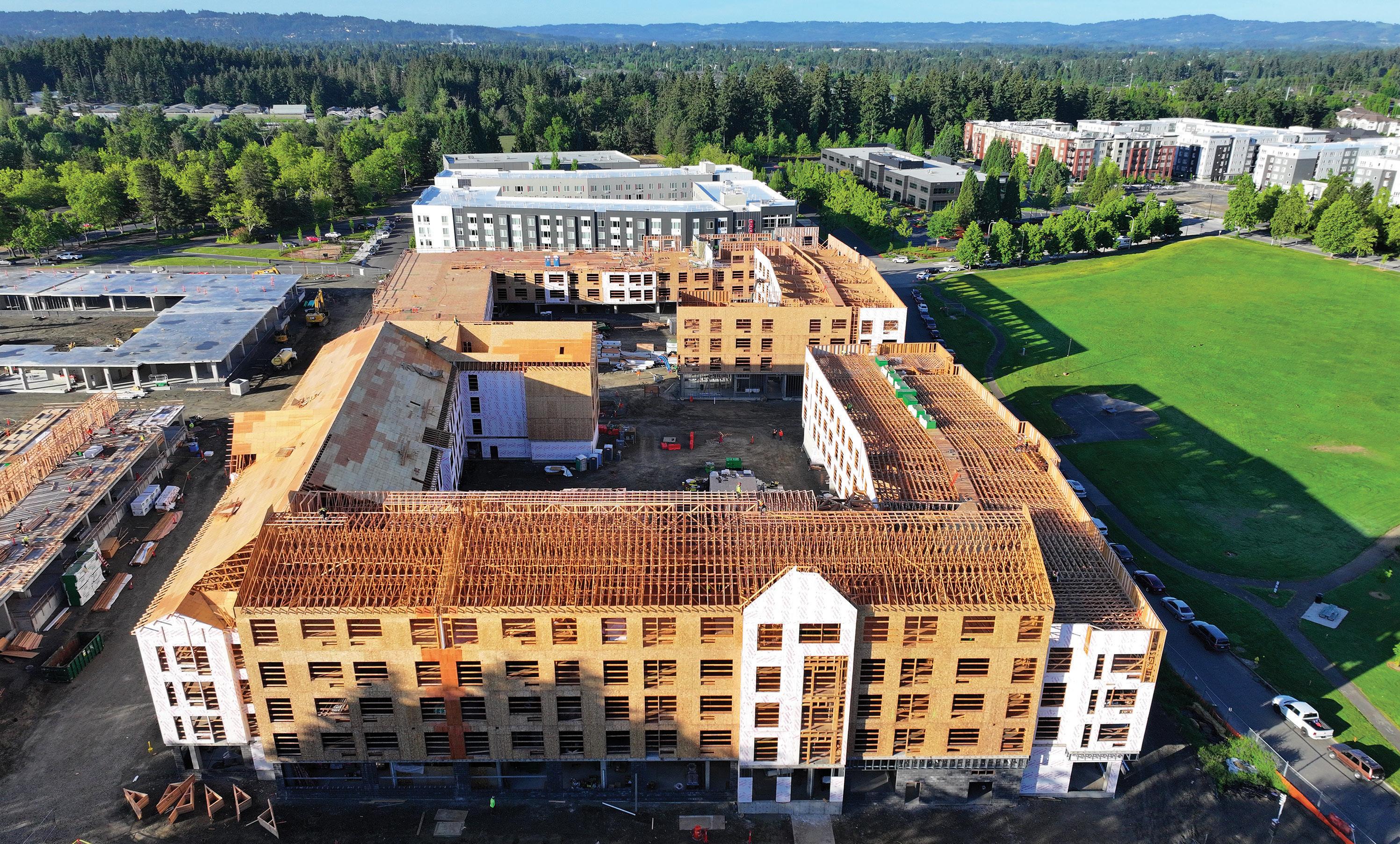
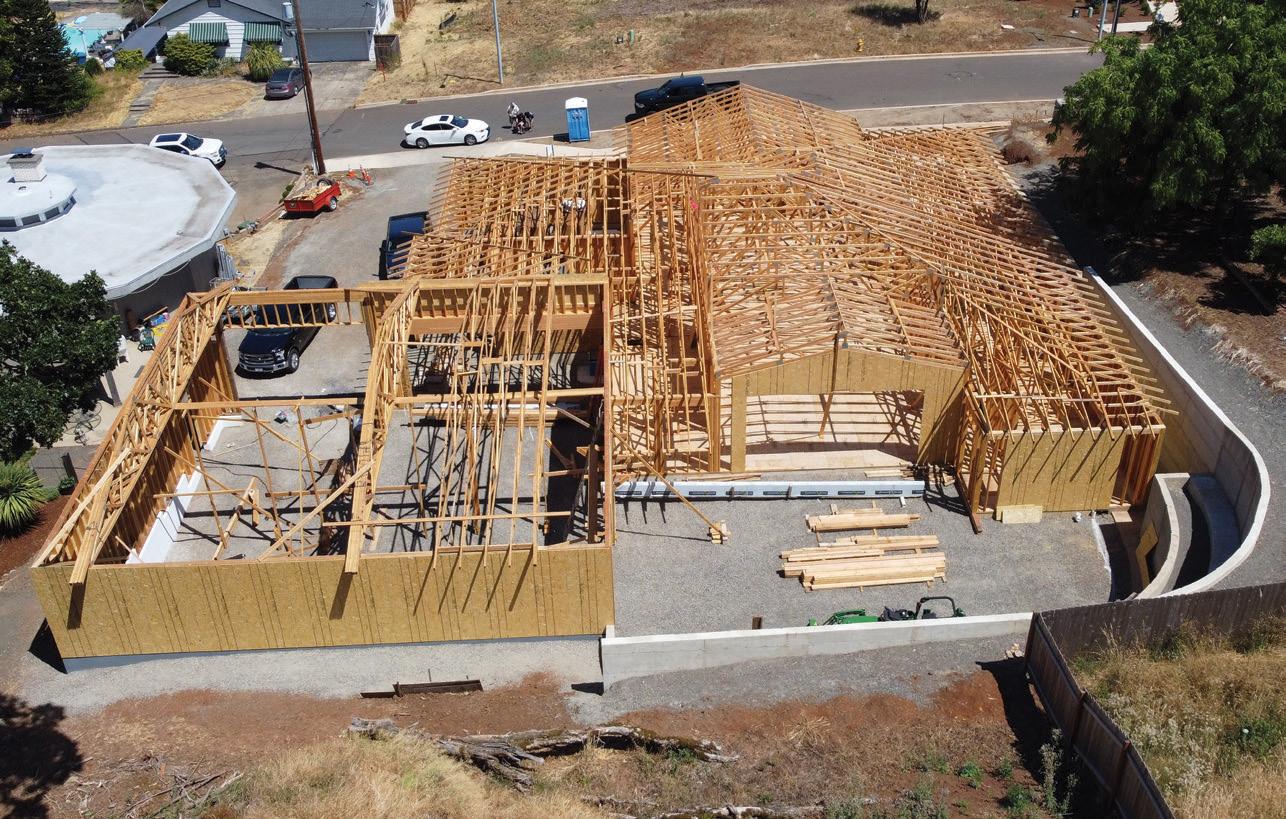


Start the year strong and take the first step toward your brighter tomorrow. Your

